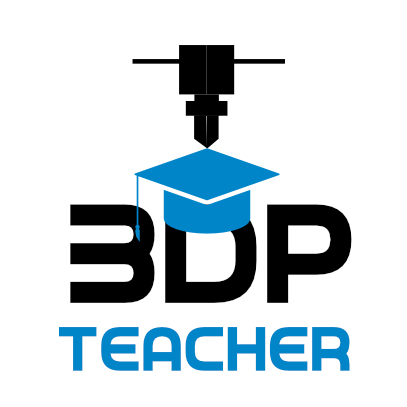
3DP TEACHER - implementation of 3D Printing in future education
Implementation period: 01.10.2019 - 30.09.2021
The Industry 4.0, and particularly technology of 3D printing (3DP) is entering schools curricula all over the world, and its potential is becoming widely recognized. Many teachers consider this innovation in the sector welcome and necessary, but they very often lack proper technical and methodological knowledge to embrace this new technology. In order to change this situation, the aim of the project is to improve the digital competences of teachers in relation to implementing of 3D printing in education.
Read More
4 EXPORT - Apprenticeship training for internationalization activities
Implementation period: 01.10.2019 – 30.09.2021
The objective is to assist SMEs in the development of apprenticeship programs, mainly interdisciplinary, aimed at facilitating internationalization through the establishment of cross-border business activities. In order to achieve its goals, the project will develop a Curriculum programme for the in-company tutors (SMEs) of internationalisation activities (MOOC - massive open online course), an interactive web platform which will include the MOOC and a Self-Directed Learning Guide to support in-company trainers in using the curriculum programme and MOOC for teaching apprentices about internationalisation activities.
Read More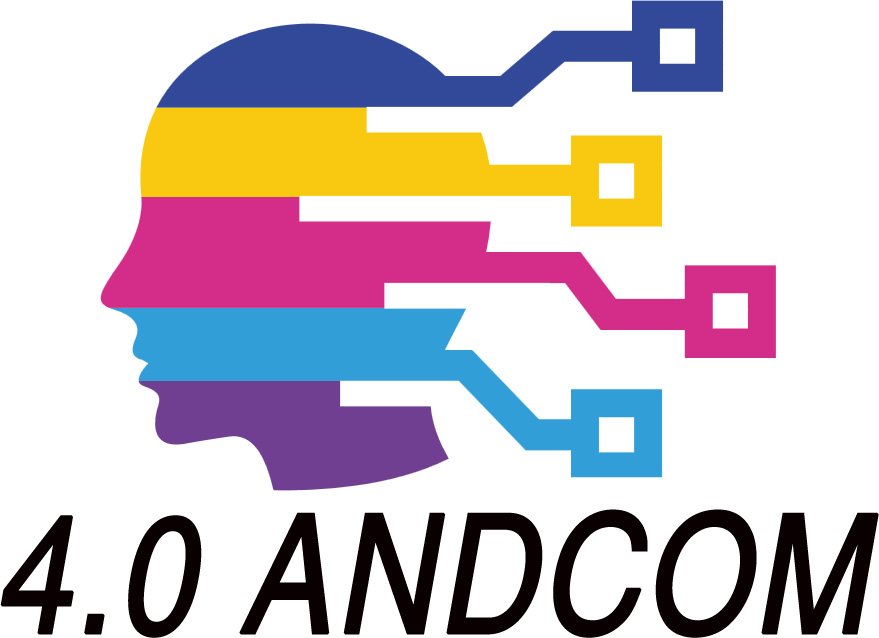
4.0 ANDCOM - 4.0 didactic approaches in duty of developing ANDragog’s COMpetences
Implementation period: 01.10.2019 - 30.09.2021
4.0 ANDCOM focuses on the role of andragogs - adult educators who plan, organize and conduct educational activities in a variety of training institutions. They are the direct target group of 4.0 ANDCOM, especially those teaching low-skilled adults, this project’s indirect target group. The 4.0 ANDCOM project aims to increase visibility, awareness and the ability to use Industry 4.0 solutions in the education of low-skilled adults. Moreover, the project aims to introduce a new approach to the education of low-skilled and low qualified adults, developing competences in andragogy for educators to extend their curricula and provide effective, as well as innovative teaching tailored to the needs of their classroom. The project will deal with digital skills, ICT competences and Industry 4.0, bringing innovation to the classroom and boosting motivation among learners.
Read More
ACTION - Empowering educators and community leaders to act on climate change (ACTION)
Implementation period: 01.09.2019 - 31.08.2022
Education is a powerful tool to prepare societies for the global challenges that climate change brings. The United Nations Climate Conference, COP24, which took place in Katowice, Poland, last December 2018, dedicated one Thematic Day, to education and the pivotal role it plays in global responses to climate change. ACTION partners truly believe that climate change education must consider the need to provide educators and community leaders and professional with learning opportunities and up-to-date facts, new and innovative training processes, cutting-edge resources and digital era tools, to better empower their learners and citizens as ‘agents of change’ and promote closer links between education and local communities.
Read More
API
Implementation period: 01.01.2013 – 31.03.2015
The project was aimed at entrepreneurs in the SME sector and large companies interested in obtaining a consultative support in the operation of their own businesses through the operation of analytical information portal.
Read More
BEVIN
Implementation period: 01.10.2015 – 30.09.2017
BEVIN project was addressed to a wide audience: public educational institutions/sectorial organisations involved in the non-formal and informal learning process and/or validation as well as educational entities and individuals who were actively implementing validation of non-formal and informal learning.
Read More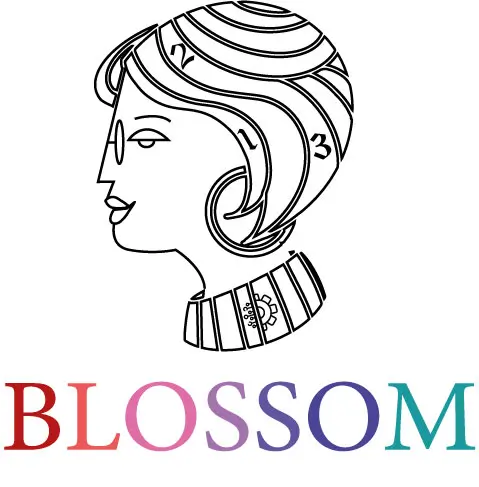
BLOSSOM – Basic competences as literacy, numeracy & digital skills focused on business development
Implementation period: 01.02.2022 - 01.02.2024
The overall objective of BLOSSOM is to improve learning opportunities of adult women with low qualifications by strengthening their basic competences as literacy, numeracy and digital skills focused on business development. BLOSSOM is for adult low-qualified women and experts, providers or policymakers in adult education.
Read More
BRAND – Boosting youth towards Responsible and sustainAble choices in fashioN inDustry
Implementation period: 01.09.2022 – 31.08.2024
European Youth Strategy 2019-2027 acknowledges the crucial need to empower young people to start taking responsibility for their actions and impact on the life of future generations.Clothing industry is indissolubly related to this goal, having a significant impact on the environment. BRAND project aims to raise the awareness of young people on the themes of fast fashion and its severe impacts on the environment and provide youth workers with all the necessary material and tools in order to raise awareness, influence and empower young people towards more eco-friendly fashion choices for a greener and more sustainable fashion future, through the development of digital innovative tools and deliverables.
Read More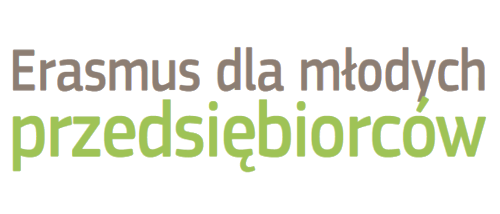
BYE-8
Implementation period: 1.02.2016 – 31.01.2018
Objective of the proposal of BYE-8 consortium was to provide the opportunity to Nascent Entrepreneurs to receive on-the-job-training from experienced entrepreneurs and to encourage the activation of Host entrepreneurs in order to realize successful relationships.
Read More
CME – CyberMentors Europe
Implementation period: 01.2013 - 11.2014
Change of attitudes towards violence affecting young people through the use of cybermentoring in six European countries.
Read More
CONVET
Implementation period: 01.2014 – 12.2015
The main objective of the project was the development and testing of an European Credit System for Vocational Education and Training (ECVET) and improvement of the mobility of workers in the the construction sector by engaging them to create innovative content and structure of a web application with built-in qualifications comparison tool based on the transferred cascade training methodology and PALS tools.
Read More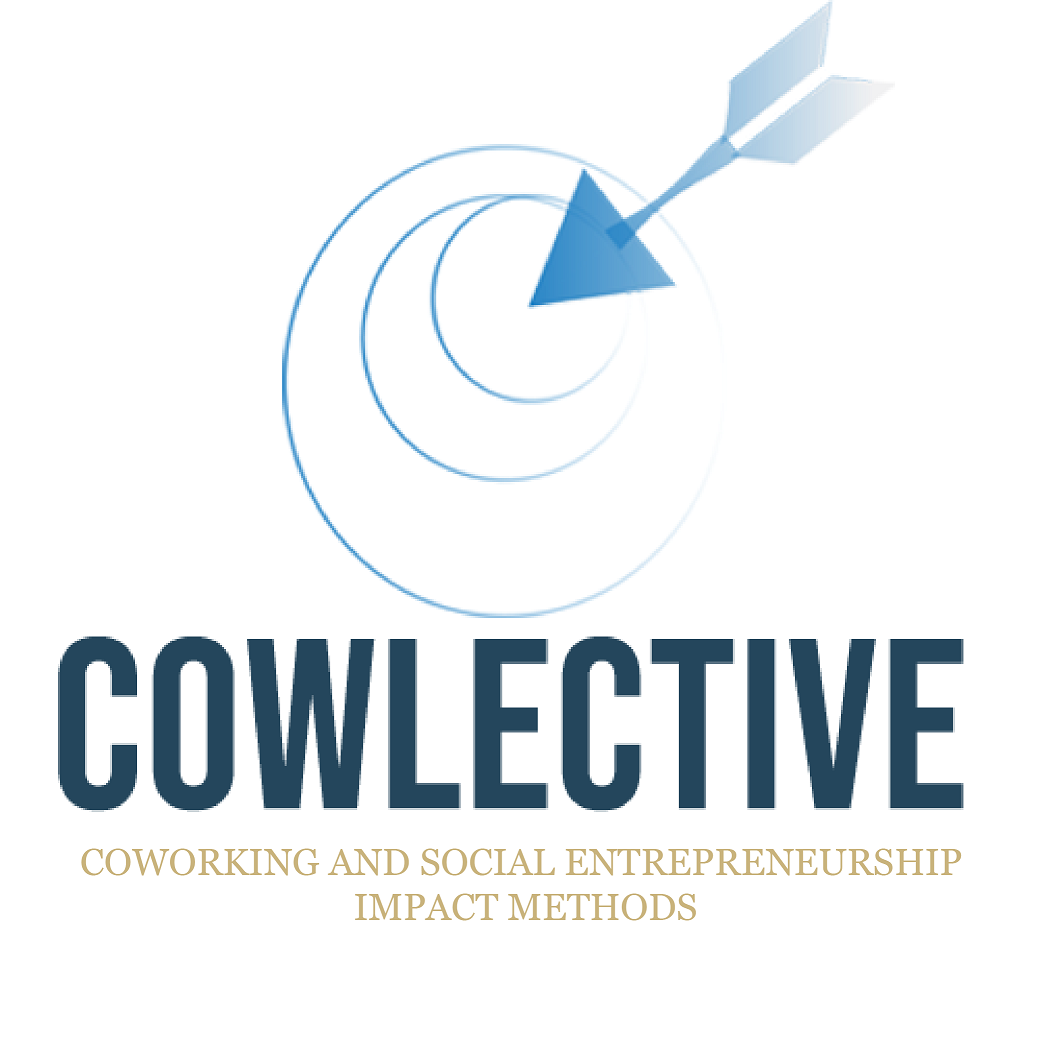
COWLECTIVE: Developing a collaborative social impact method and associated training for entrepreneurs in coworking contexts
Implementation period: 01.11.2020 – 31.10.2022
The main objective of COWLECTIVE is to address the training needs of entrepreneurs in coworking spaces in key transversal skills based on new updated research, and strengthen their business activities in terms of social and environmental impact.COWLECTIVE aims to develop core and innovative learning methods that best encourage success in business activities, answering the need for education and training thanks to an innovative proposal based on participation and ICTs.
Read More
CRS - Children Rough Sleepers
Implementation period: 01.01.2013 – 31.12.2014
To examine the incident of children running away from home as a result of domestic violence and sexual abuse and to offer them comprehensive assistance and give essential support for dealing with such children.
Read More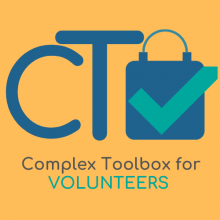
CTV - Complex Toolbox for Volunteers on preparing and running international projects
Implementation period: 01.10.2019 - 30.04.2022
The project focuses on empowerment of low-skilled adult learners, volunteers engaged in activities in voluntary organisations, which are understood as all those non-profit organisations that engage volunteers and provide voluntary services of any kind. As result of the project low-skilled adult volunteers will upgrade their competences in preparing and managing European projects, enhance their digital skills, intercultural competence and sense of initiative and entrepreneurship. Voluntary organisations will be able to strengthen their position in the region, gain new sources of funding, run more effective operations and establish new, international networks.
Read More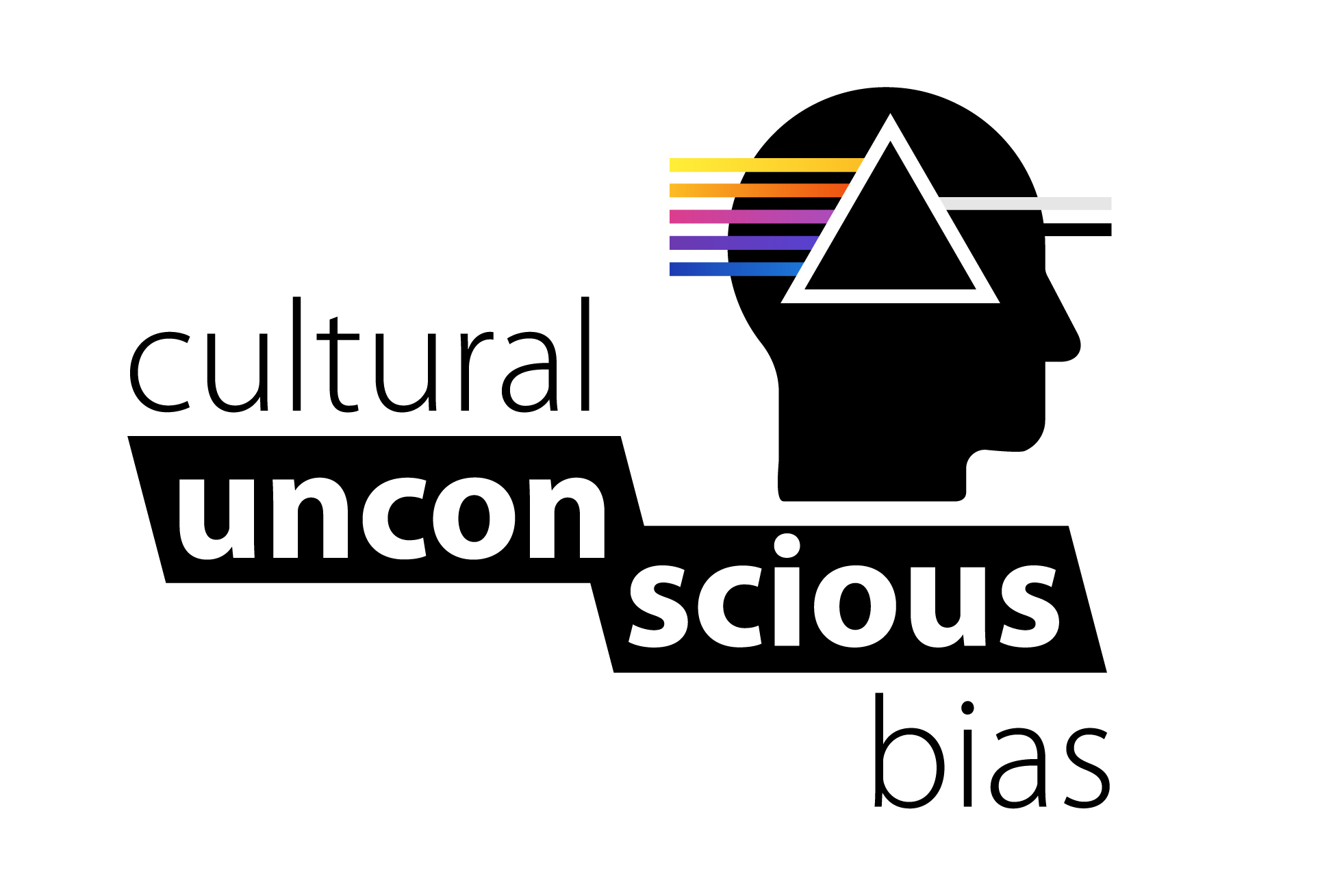
Cub@Work - Cultural Unconscious Bias in the workplace
Implementation period: 01-10-2020 - 30-09-2022
The project’s main aim is to develop competences of SMEs managers and recruitment staff in understanding, recognising, reflecting on and managing the unconscious bias and validating those competences in order to enable SMEs to recruit suitable personnel. The main objective will be achieved through developing the vocational education tool - CUB@work system. Current partnership consists of 8 partners from 6 EU countries (DE, DK, PL, IE, IT, ES), covering wide range of expertise and experience related to the scope and aims of the CUB@work project. Current partners were chosen for their commitment, experience in the field of VET and/or intercultural training in their own country, experience in work VET learners, access to them and their theoretical and technical knowledge.
Read More
DECENT
Implementation period: 01.10.2017 - 30.09.2019
The main goal of the DECENT project is to increase the effectiveness of the fight against the functional illiteracy among low qualified adults who are at risk of social exclusion in Romania, Poland, Bulgaria, Cyprus, Spain and Italy.
Read More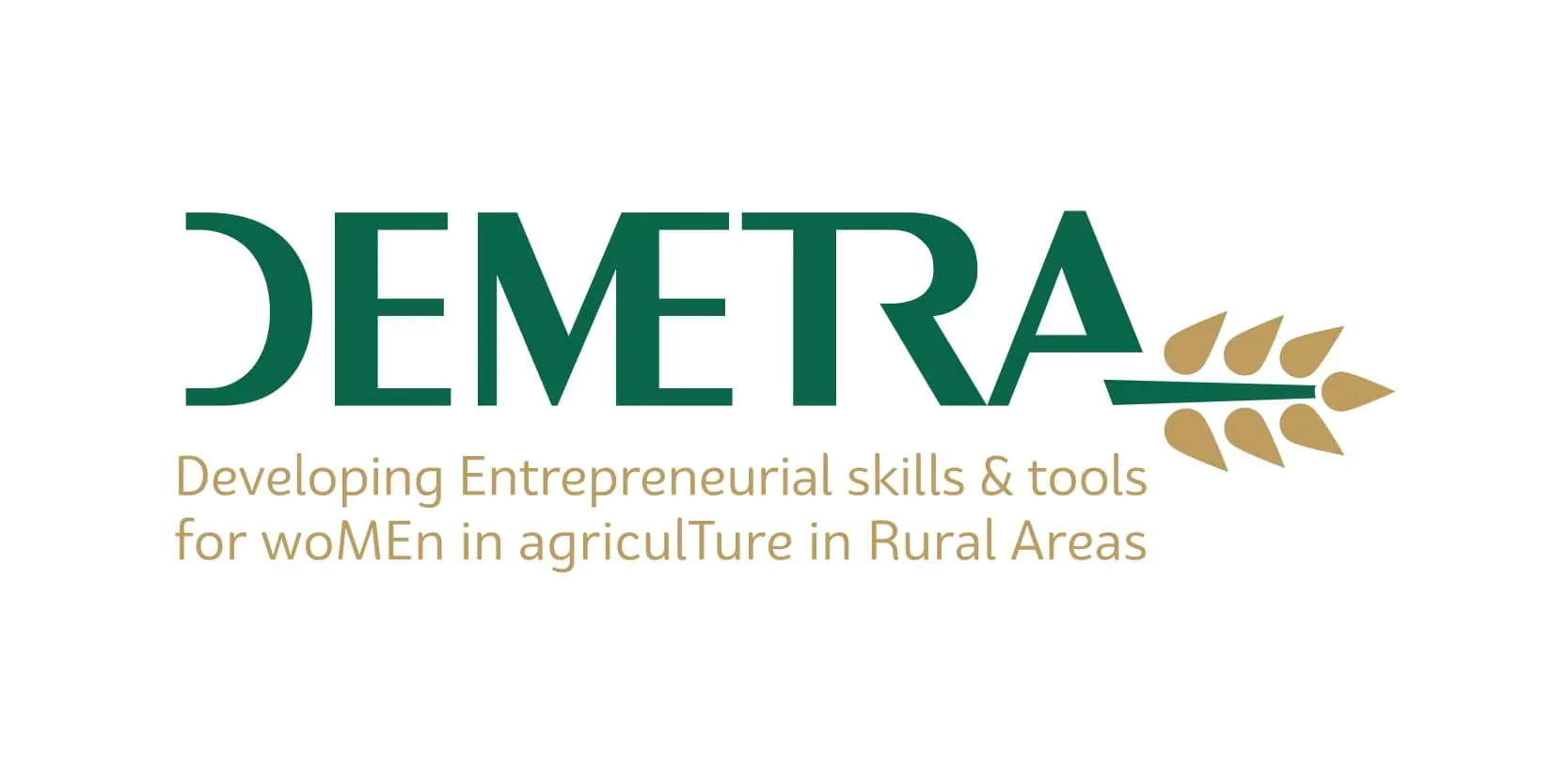
DEMETRA: Developing Entrepreneurial skills & tools for woMEn in agriculTure in Rural Areas
Implementation period: 01.11.2021 - 01.11.2023
DEMETRA, is a project dedicated to the creation of those conditions that will enable women in rural areas to be involved in the agricultural sector and showcase entrepreneurial activity in the aforementioned sector. By providing the tools for educating women on agricultural entrepreneurship, and offer them the ability to develop an entrepreneurial mindset and skills, the project aspires to become a milestone and a point of future reference for women in the field of agripreneurship. On the whole, the project addresses the need to better understand existing and needed competences of women in rural areas with regards to agricultural entrepreneurship and promote a more inclusive context for their participation in the field. At the same time, this project is a response to the need of women for education through a specifically designed innovative curriculum, platform and a mentoring scheme reflecting on women’s current agricultural entrepreneurship needs for training and also a response to the lack of resources on the topic for VET providers.
Read More
Digi4SME – Digital Competences of VET Trainers for SME
Implementation period: 01-04-2021 – 31-03-2023
The current COVID-19 crisis hit certain sectors very hard. One of these sectors is Small and Medium Sized companies around the world. The financial support provided, SMEs are in difficult situation. Now, more than ever they need well educated, skilled owners, managers and employees. The aim of the DIGI4SME project if extending digital competences of VET trainers providing training to SMEs. The pandemic has taken away even the possibility of training as many training providers are not ready to provide education online. VET education, needs to be ready for delivery of high quality inclusive digital education.
Read More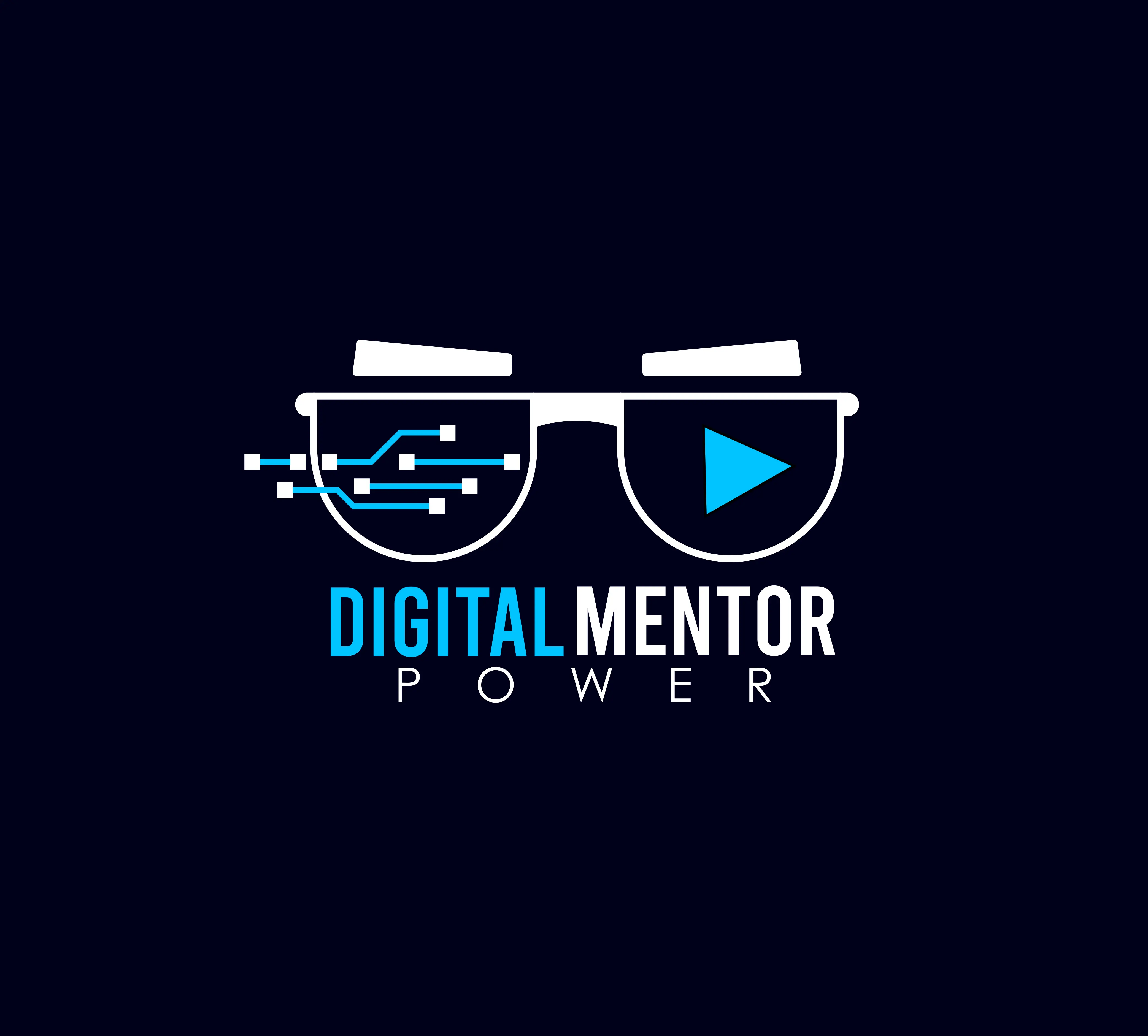
Digital Mentor Power- DMP
Implementation period: 01.03.2021 – 28.02.2023
38% of the current Teachers workforce are over 50 years and are less condifent and more fearful of using Digital tools (Eurostat, 2020). Graduate teachers want more and better training to face the social challenges and inexperience they are confronted with. Collaborative School culture is the solution! (Eurodyce,2020). Therefore, need for the digitalization of the education system is a EU-Wide fact (Index of Readiness for Digital Lifelong Learning). The Digital Mentor Power Project aims to improve the learning process in EU schools by enhancing the digital skills and competences of European Teachers through the development of the Digital Mentor Power Platform! This goal will be reached by: 1) identifying teachers who are skilled in a range of digital skills and different digital tools. We call these, Digital Mentors. 2) identifying teachers who need digital training. In return, these teachers will support their often-unexperienced colleagues with resources and advice regarding pedagogical methods. We call these, Pedagogical Experts
Read More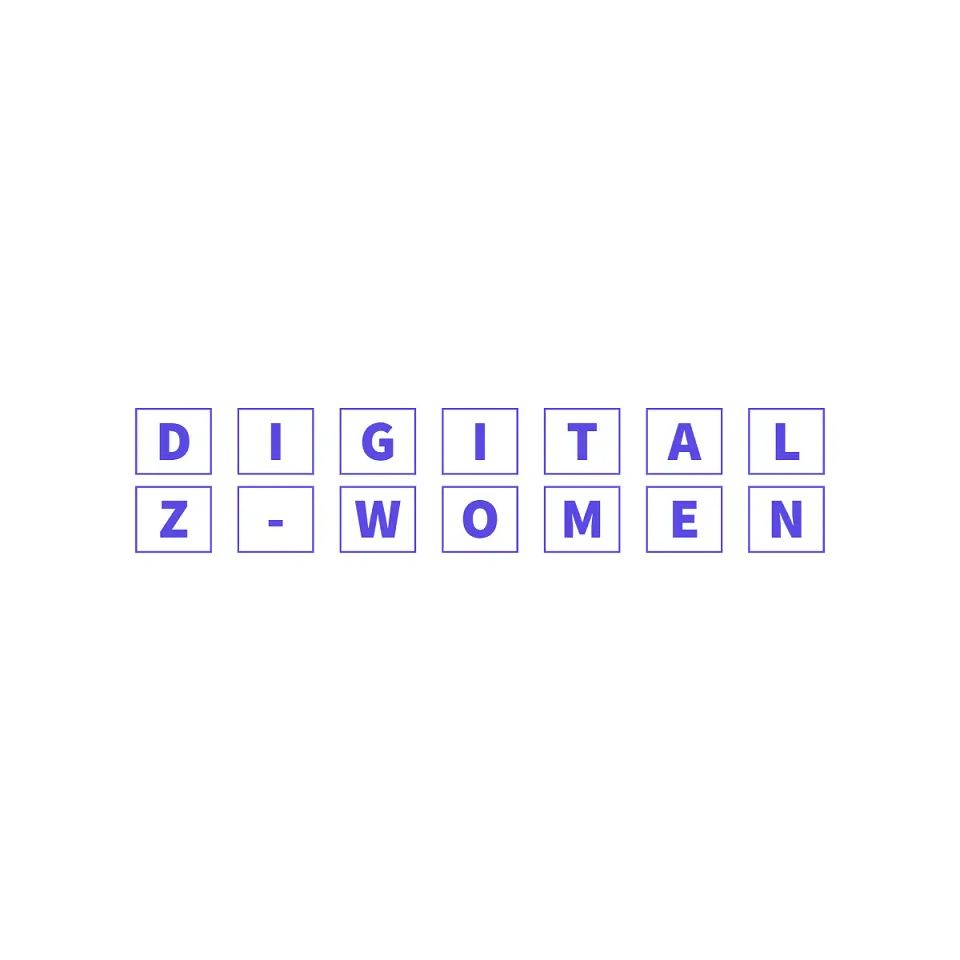
DIGITAL Z-WOMEN: Empower Gen-Z women with digital entrepreneurship skills
Implementation period: 01.01.2022 - 01.01.2024
DIGITAL Z-WOMEN is designed to empower women from Generation Z with digital entrepreneurship skills, helping them to take advantage of the opportunities raised by digital transformation and thrive in a world of work that is going digital quite fast, even more in the pandemic emergency we are dealing with.
Read More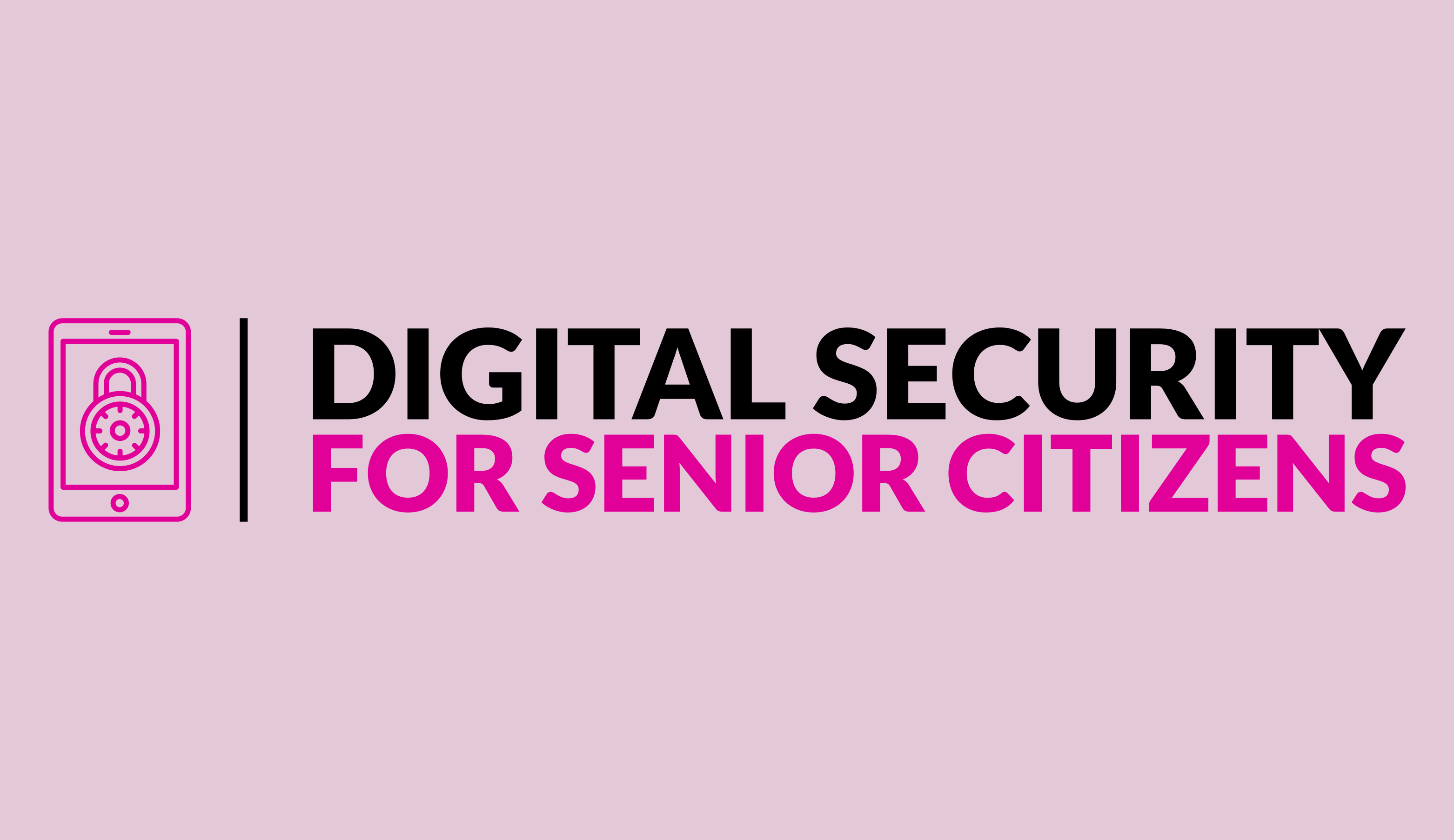
DiSC – Digital Security for Senior Citizens
Implementation period: 01.12.2020 - 30.11.2022
Cybersecurity is one of the most important and 'hot topics' within the European Commission, but the policy level focus, naturally is on Strategic planning at Pan-European level, with a strong focus on IoT, Industry, Digital infrastructure, Education and other fast moving industries and sectors which are vulnerable to cybersecurity and data breaches. This is highlighted by the initiation of a Network of National Coordination Centres, a Cybersecurity Competence Community and a European Cybersecurity Industrial, Technology and Research Competence Centre by the European Commission in 2017. By 2022, cybersecurity ratings will become as important as credit ratings for businesses and websites (Gartner Innovation Insight for Security Rating Services, 2018).
Read More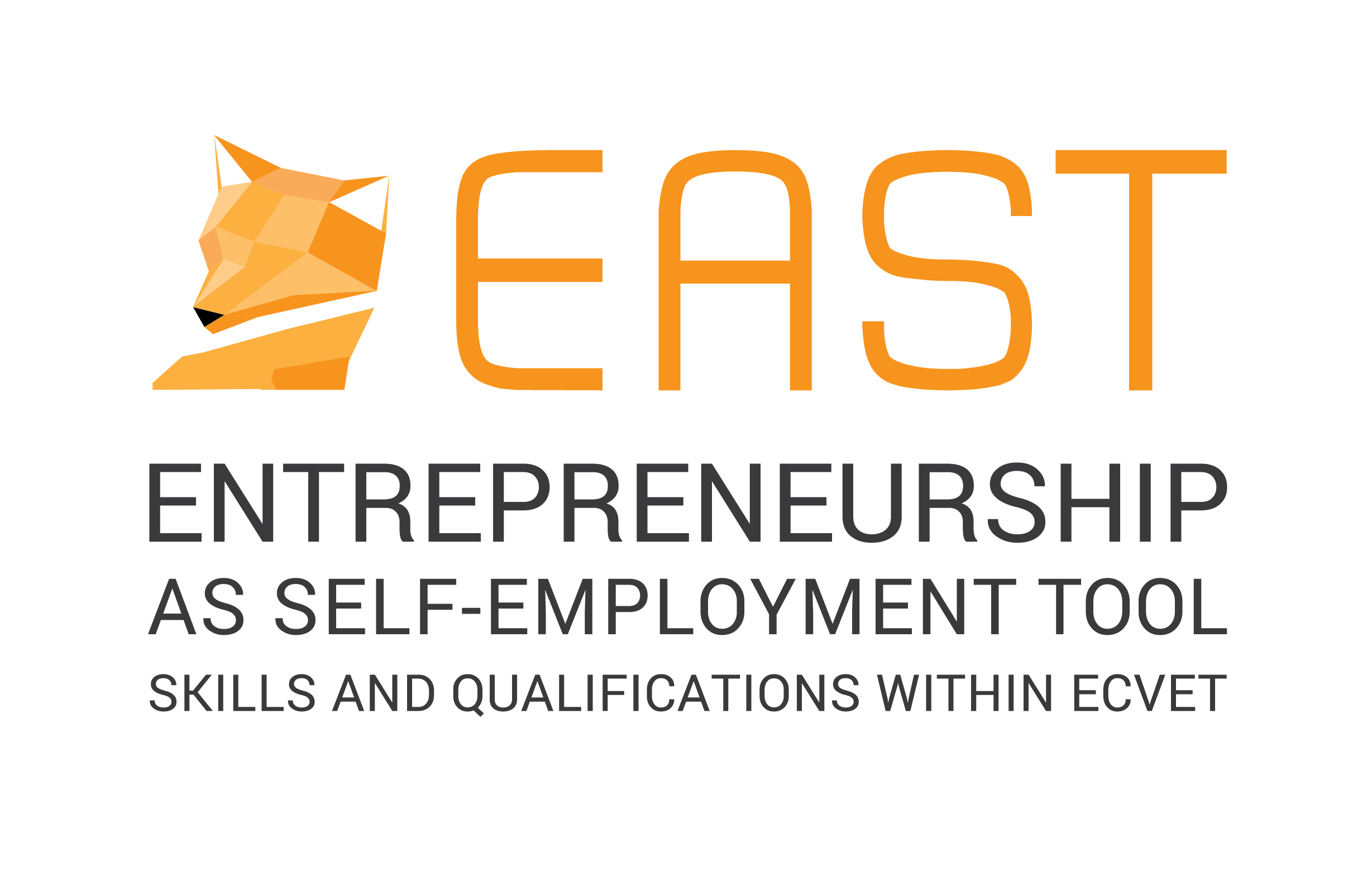
EAST - Entrepreneurship as Self-employment tool. Skills and qualifications within ECVET
Implementation period: 01.10.2019 – 30.09.2021
The main objective of EAST project is to develop a training itinerary for entrepreneurship / small businesses management following ECVET recommendations and thus applicable in different countries. The EAST qualification will describe the units and learning outcomes corresponding to the entrepreneur profile, and determine the required knowledge, skills and competences to become an entrepreneur. It will allow flexibility in the training pathway thanks to assessment solutions and a modular structure. It will be summarised in a Europass Certificate Supplement to make it easily understood over Europe.
Read More
ECILP - European Certificate for Intercultural Learning Professionals
Implementation period: 01-10-2020 - 30-09-2022
The project’s core aim is to enable recognition, transparency and comparability of qualifications and learning outcomes of IC (intercultural) service providers (i.e., IC trainers, advisors and coaches) through developing and establishing a framework of binding professional standards, regulations for the accreditation process and a self-assessment tool for IC providers. Such a framework will offer transparent, evidence-based, comprehensible and reliable guidelines for decision-making to clients, learners, IC service providers and institutions offering intercultural training qualifications. The regulations and self-assessment tool will provide information about the level of current qualification and guidance for achieving accreditation.
Read More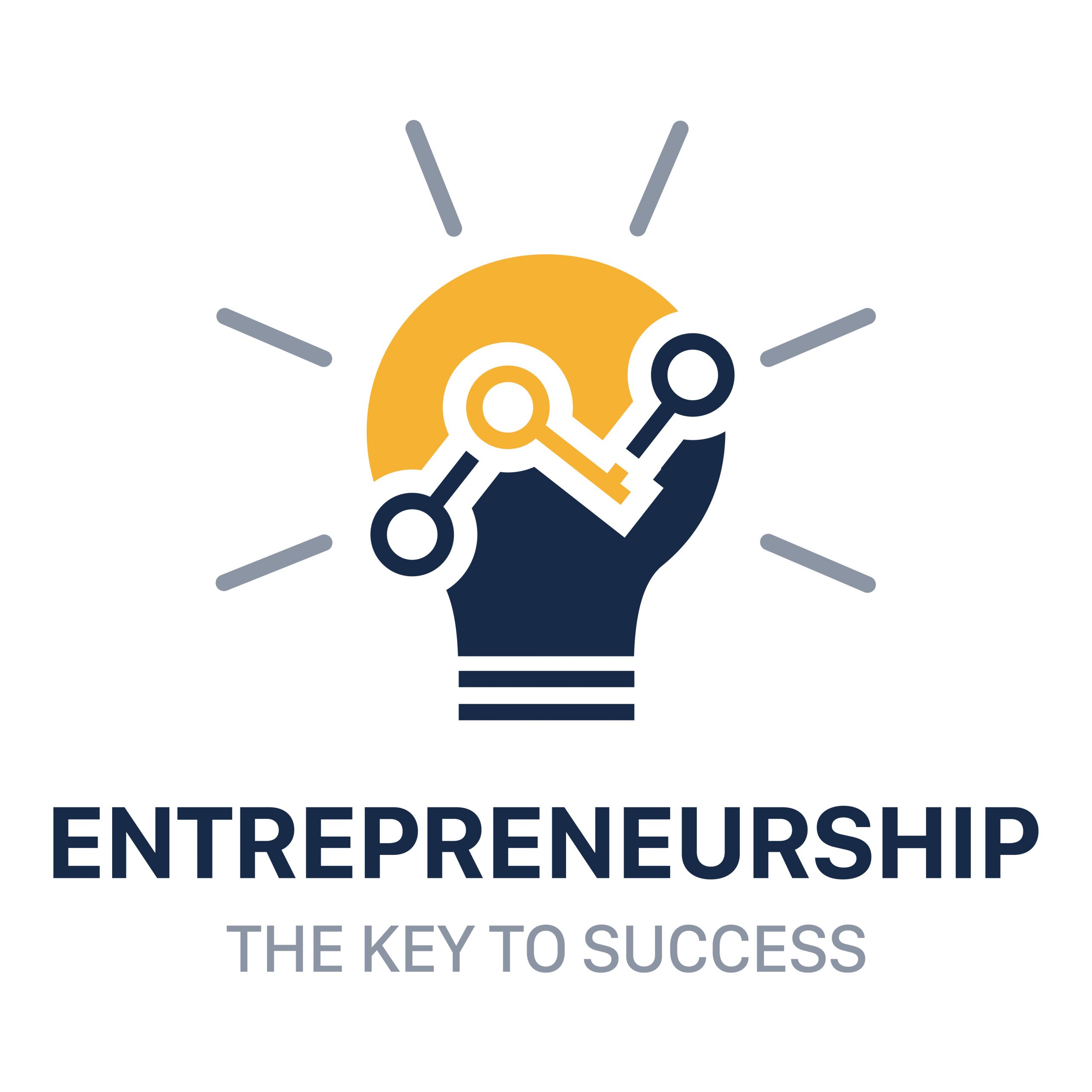
EKS - Entrepreneurship is the Key to Success
Implementation period: 01.10.2019 - 30.09.2021
The project’s aim is to develop relevant and high-quality skills and to support disadvantaged young adults (especially low-skilled NEETs in age 20-24) in acquiring entrepreneurial competences to build entrepreneurial mind-set with special focus on developing skills needed for the future entrepreneurs that will be inevitable for tomorrow’s jobs but are not considered crucial for the jobs today.
Read More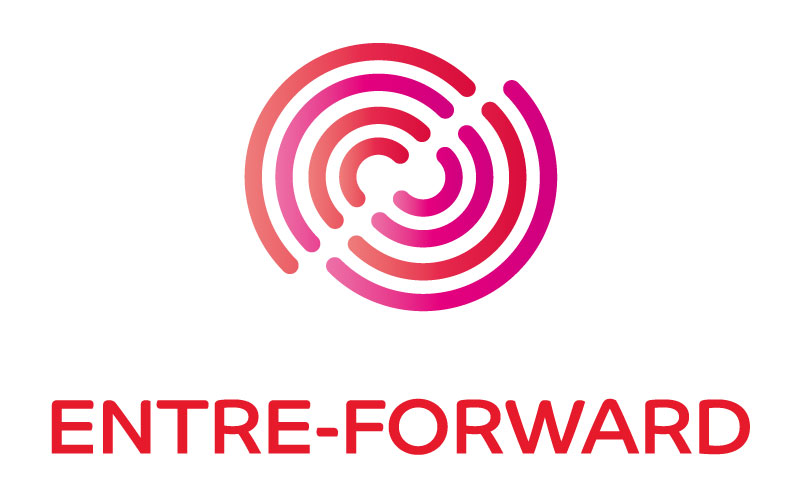
Entre-Forward: Enhancing Entrepreneurship Skills
Implementation period: 01.09.2019 - 31.08.2022
The Entre-Forward project focuses on upskilling people and showcase the importance of developing entrepreneurial skills. Also, the project aims at promoting innovative approaches to strengthen the cooperation between industry and education towards entrepreneurship and propose innovative practice-based methods, where students are involved in project work and/or in motivational activities.
Read More
Environmental Learning Illustrated
Implementation period: 01.10.2017 – 30.09.2019
The project ELI is linked with the European Union’s commitment “Healthy and Sustainable Environment for Present and Future Generations” (European Commission paper, 2014) and an international commitment to protecting natural habitats and biodiversity, but also tackling other environmental problems, including the reduction in carbon emission as reflected in the so-called 2015 Paris Agreement, with the need to develop comprehensive education programmes that address the mentioned needs.
Read More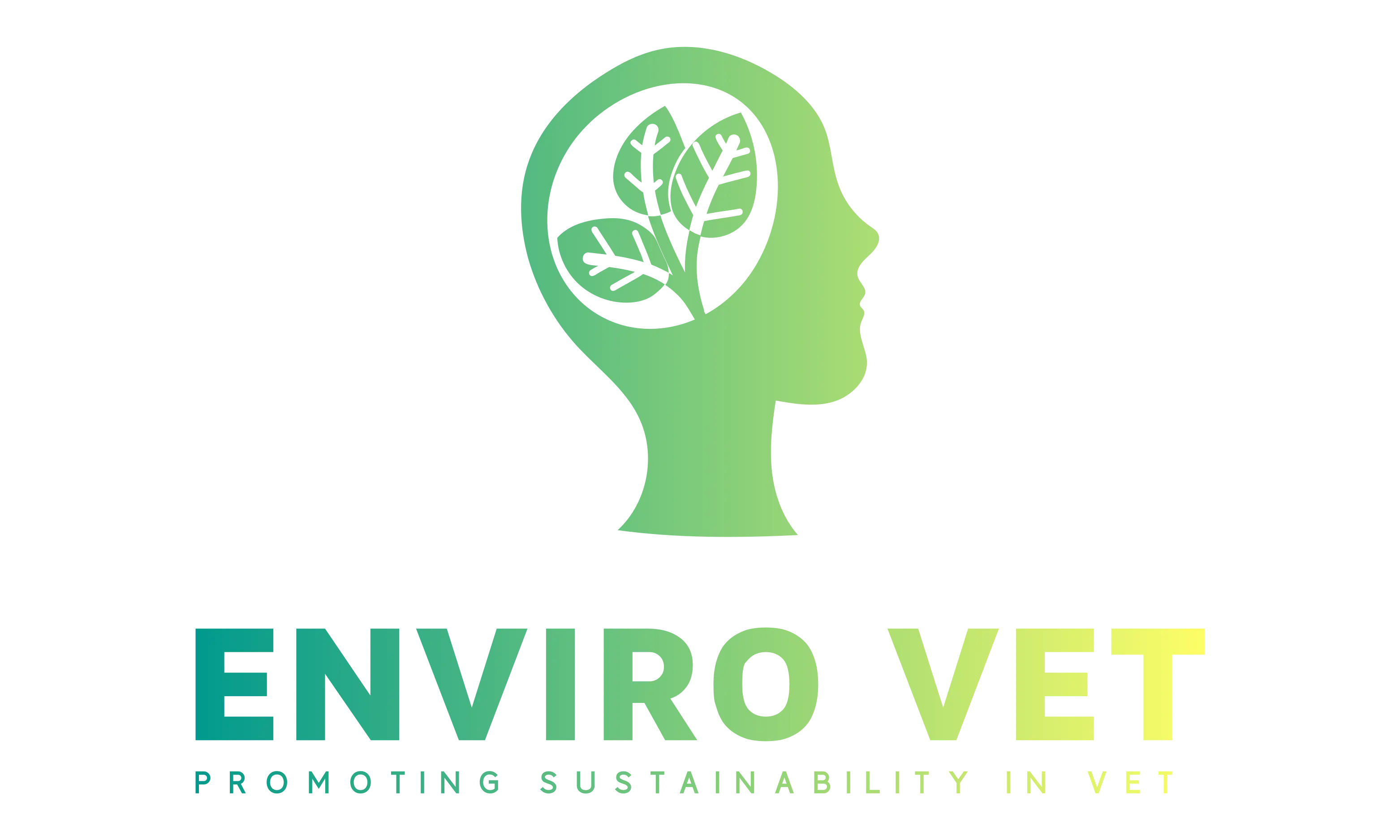
EnviroVET - Promoting and Tracking Environmental Sustainability in VET
Implementation period: 01.01.2022 - 01.01.2024
The European Commission has set the ambitious goal of achieving the climate neutrality by the year 2050 (Green Comp/2020). This aim can only be achieved if respective initiatives are started right now and ignite relevant changes in the understanding, perception and implementation of environmental-friendly attitudes are implemented throughout all the levels of the entire economy. The need of transition to a “greener” both production and consumption has been at the agenda of not only developing, but also already developed countries and economies (UNESCO/2017). The United Nations has adopted a set of 17 Sustainable Development Goals in 2015. Goal 9 defines emerging need to update infrastructure and retrofit industries to convert them to more sustainable initiatives. This can be achieved through the increased efficiency of the use of the resources and adoption of clean solutions within industrial processes by 2030.
Read More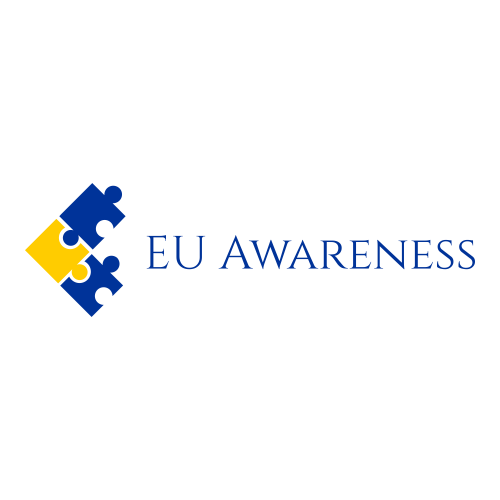
EUAwareness
Implementation period: 01.10.2018 – 31.12.2019
Euroscepticism is a complex reality, ranging from economic to cultural issues, characterised by various levels of intensity. The phenomenon is fuelled by entities and media across Europe that contribute to creating misinformation. Typical examples are “that the EU consist only of unelected bureaucrats”. The problem is apparently a lack of understanding of how the EU works and a need of critical thinking.
Read More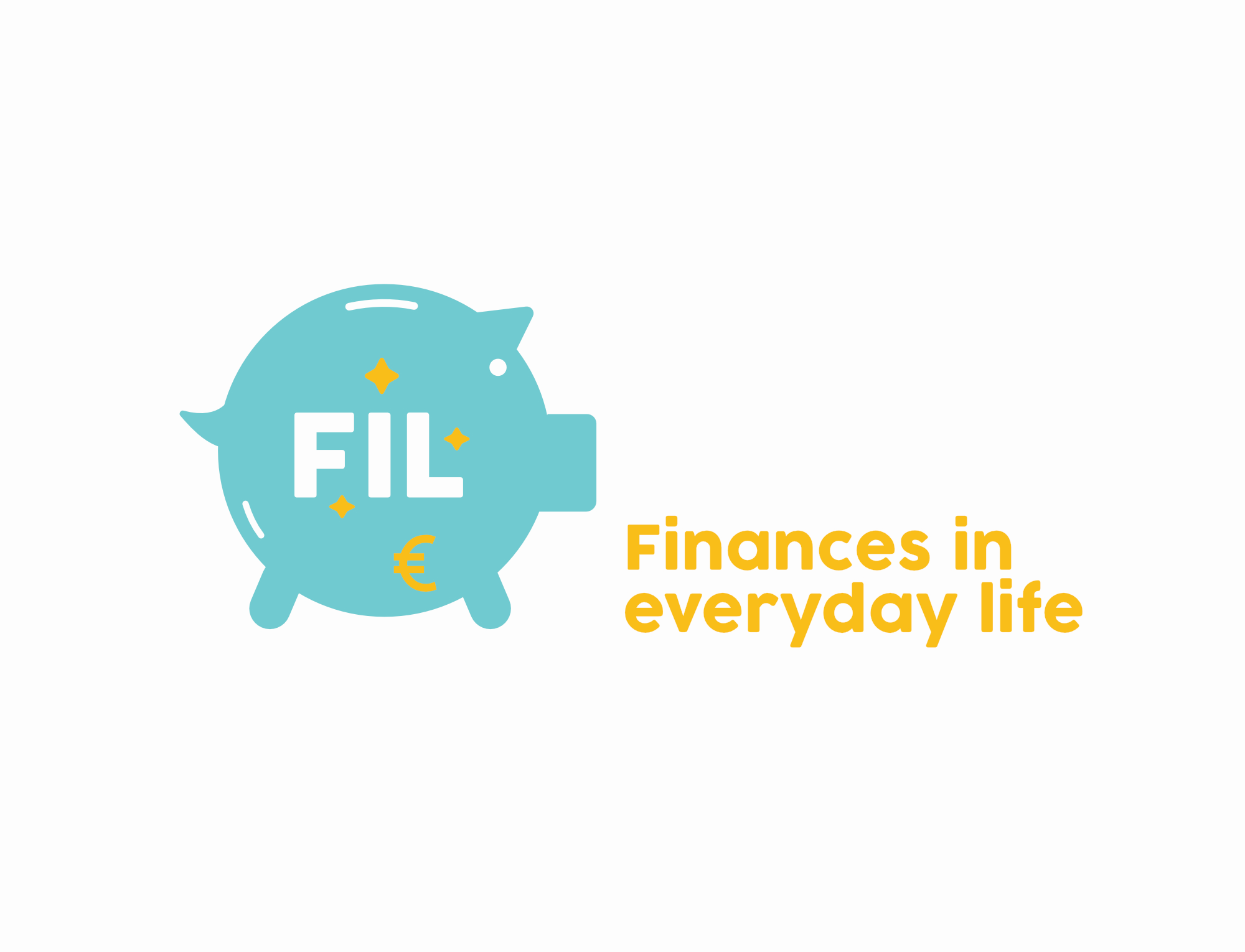
FIL - Finances In everyday Life
Implementation period: 01.10.2019 – 30.09.2021
Providing the necessary knowledge and skills for disadvantaged learners in the financial field and digital competence is essential to improve their quality of life and well-being. The FIL project is a response to the problem of a gap in financial knowledge coming from basic skills shortcomings.
Read More
FLYie - Female Legends Youth innovation and entrepreneurship
Implementation period: 01.09.2019 - 31.08.2021
The international, Erasmus+ project “FLYie- Female Legends Youth innovation and entrepreneurship” is promoting the values of gender equality in the field of innovative and social entrepreneurship through game-based activities.
Read More
Follow-us - NEETs as Social Media Managers for SMEs
Implementation period: 01.11.2021 - 01.05.2024
The projects’ main objective is to use the existing digital and personal skills of NEETs to inspire, motivate and re-integrate them with innovative training-tools, services and methods to develop their skills as Social Media Managers and connect them to SMEs who need their services. By following this win-win strategy, these vulnerable youth will find a future career while becoming positive members of society, and SMEs will be able to request and use online content for the digital and financial improvement of the organisation. This will be achieved through a holistic approach by a multi-skilled team, which through counselling, mentoring, training, and follow-up will guide them to new opportunities. This approach also involves finding a way to address the main issues NEETs are facing, which are social exclusion, disconnection from groups, and demotivation to become again part of the active society. These innovations and actions will combat unemployment of NEETs as they will directly increase their participation in education and training, and support them to find sustainable work which can also easily be carried out remotely.
Read More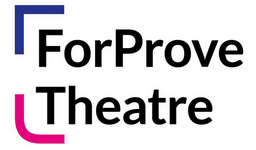
ForProve
Implementation period: 01.10.2015 - 30.09.2017
The idea of the project had been related to the announced by the European Commission statistics date relating to unemployment among young people in the EU.
Read More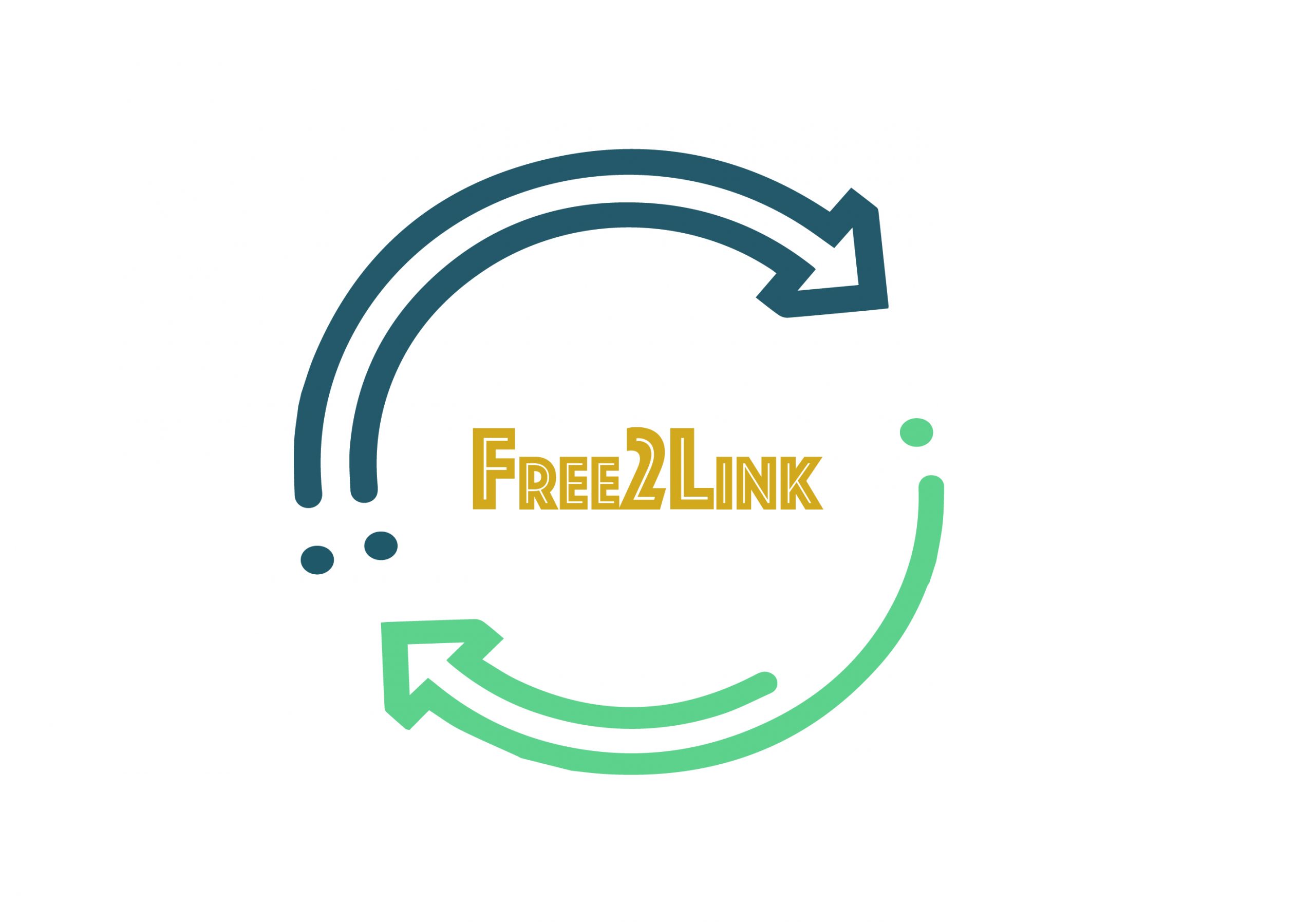
Free2Link
Implementation period: 01.11.2020 - 31.10.2022
Free2Link project aims at connecting organisations working in asylum systems, integration programmes and support to victims of trafficking across Italy, Greece and Poland to increase the ability of their frontline staff, as well as public and private networks, in the early identification of victims of e-trafficking. Despite being on the rise as one of the main methods to lure and force women and girls into trafficking in Europe, e-trafficking remains poorly understood and therefore poorly addressed in the receiving countries. It is paramount, in the rationale of the action, not only to link frontline staff, private and public bodies already operating in support of victims of trafficking, but to provide them with updated knowledge of its new manifestations and innovative tools to contrast it, with the aim of promoting dialogue, support and policy-making.
Read More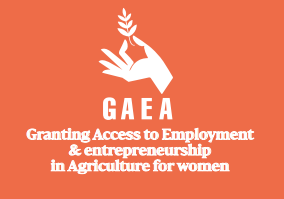
GAEA - Granting Access to Employment and Entrepreneurship in Agriculture for women
Implementation period: 29.06.2022 – 25.06.2025
GAEA is a forward-looking project, aiming to improve the quality of entrepreneurship education in the agriculture sector for young women not in employment, not in training (NEETs) living in rural areas. Aligned with the latest EU priorities, GAEA is fully encompassing the priority of sustainable development and green transition. The project is also aligned with the EU' Common Agricultural Policy. The project’s main aim is to provide a solid connection basis amongst the sector’s key stakeholders, through the introduction of a one-stop-shop (OSS) digital platform. The platform, will include a number of key training material, industry links, mentorship and coaching opportunities, and a highly innovative application which will give the opportunity to young women to assess their skills based on ESCO classification.
Read More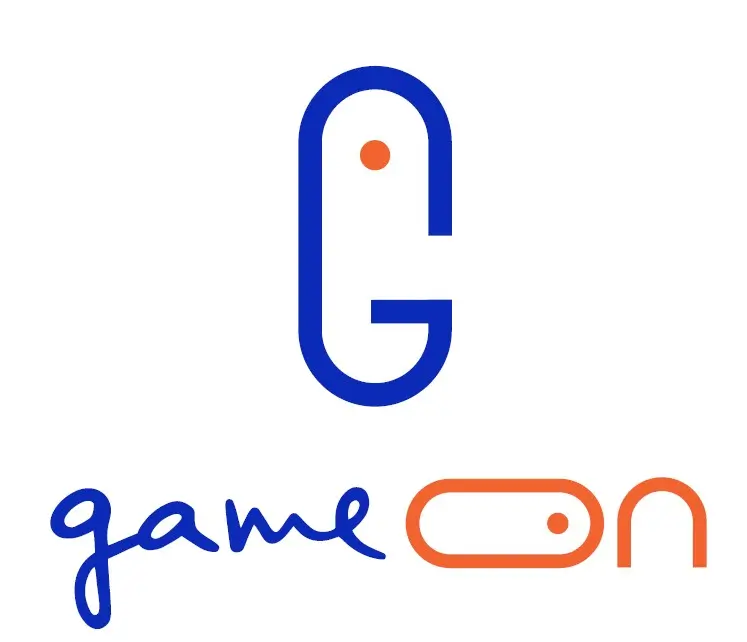
GameON - Overcome youth uNemployment through digital entrepreneurship
Implementation period: 01-01-2022 - 01-01-2024
“GameON: Overcome youth unemployment through digital entrepreneurship” aims at helping young people overcome unemployment by providing them with the necessary skills and knowledge to become entrepreneurs in the digital sector. GameON is especially addressed at the youngsters of the EU, which are one of the sectors at higher risk of exclusion due to the actual crisis. Entrepreneurship is a key tool in the fight towards unemployment, as it serves as a double weapon. On the one hand, the person becomes an entrepreneur is no longer unemployed. And on the other hand, a successful entrepreneur can even be able to hire employees, facilitating the access to employment for other citizens in need. However, many times young people do not believe entrepreneurship to be a path they can take, as they find many obstacles towards the successful starting of a business. For this reason, GameON aims at helping them overcome these issues and learn how to become entrepreneurs, especially focusing on the digital entrepreneurship as it is an area where young people have a competitive advantage, being born in a digital environment.
Read More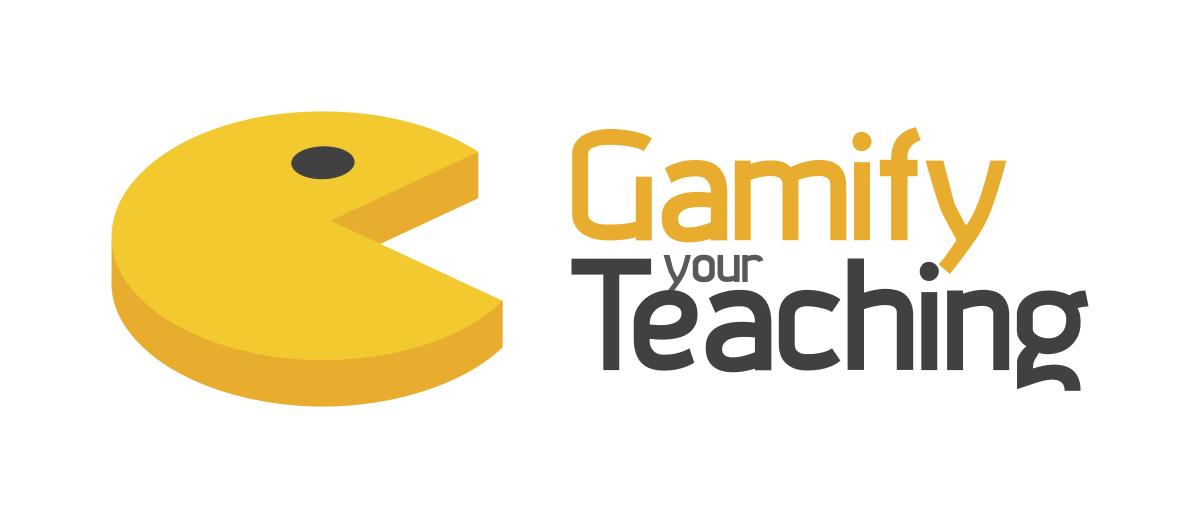
Gamify Your Teaching
Implementation period: 01.09.2015 – 01.09.2017
The project was addressed to the entrepreneurship Teachers who worked with young people and use traditional methods of teaching.
Read More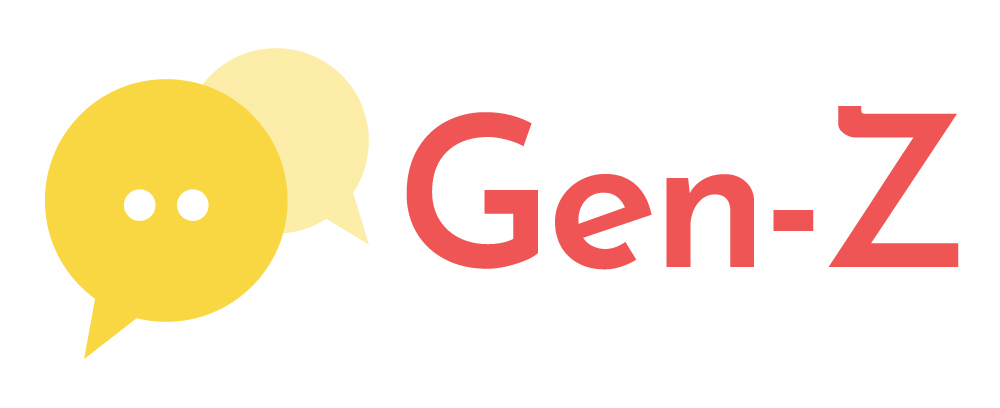
Gen-Z: Developing competences and opportunities for social media entrepreneurship
Implementation period: 01.09.2019 - 31.08.2021
Gen-Z project aims to join efforts for empowering this generation to become social media entrepreneurs and at the same time developing their key competences and employability skills. A further by-product of this project will be to enable linkages where Gen-Z beneficiaries will be able to support other businesses with their own capacity to use social media to improve their businesses. A key aspect to achieve this is to ensure that we also equip VET professionals so that they have the confidence and acquire the necessary know-how to teach social media business to VET learners Gen-Z.
Read More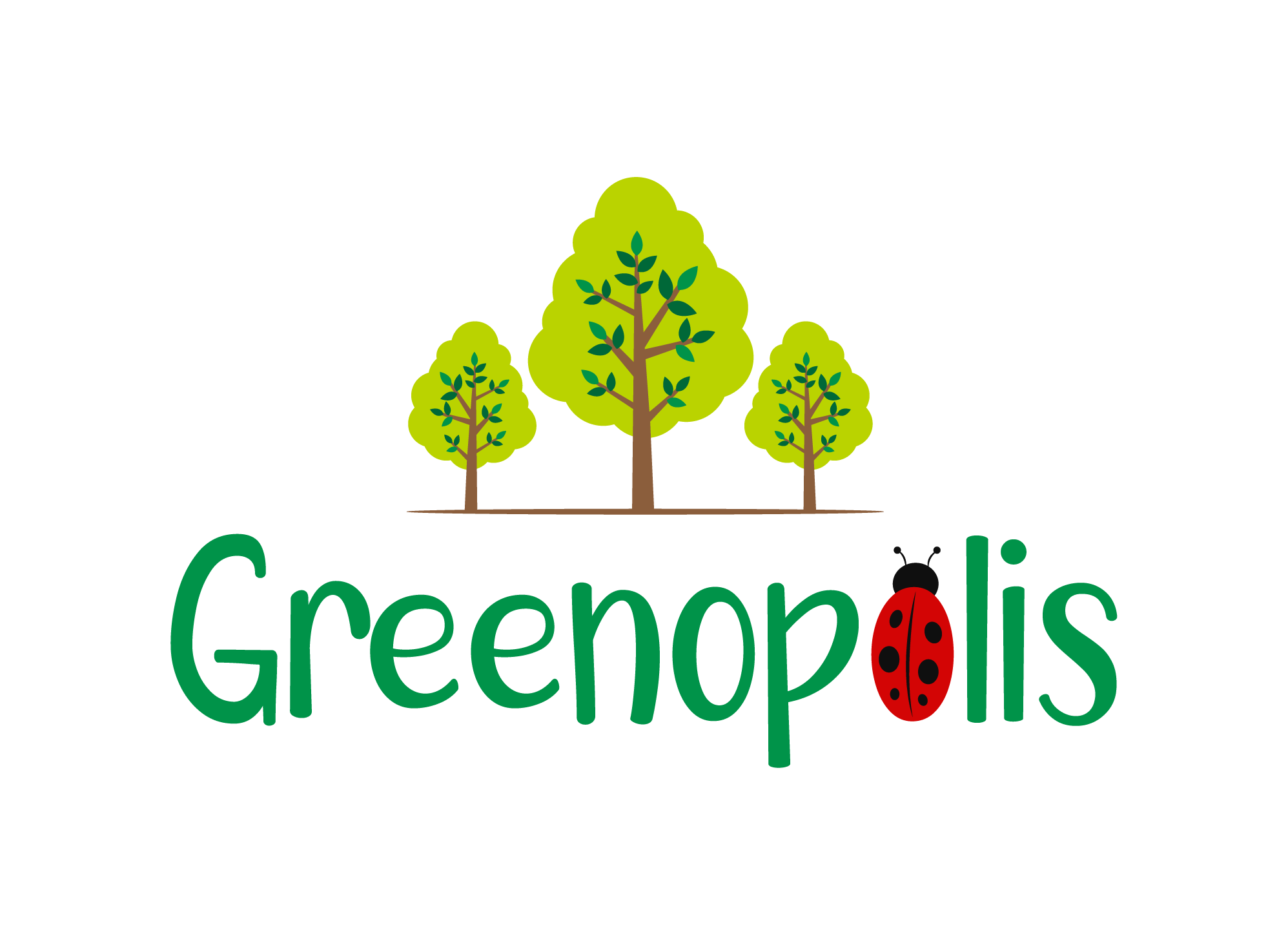
Greenopolis – Interactive eBook on Sustainable Development (Greenopolis)
Implementation period: 01.12.2019 - 30.11.2021
As climate change, overpopulation, and inequalities begin to take their toll on our planet and on global human development, sustainability has become increasingly important for a prosperous future. For the past years, Sustainable Development has been in the EU’s political Agenda. In 2001, the EU established a Sustainable Development Strategy and more recently was a major contributor to the UN’s 2030 Agenda for Sustainable Development. One cannot talk about Sustainable Development without highlighting the role of education. Education is central to the efforts to develop and promote sustainable solutions for the development needs of both people and the planet (UN, 2013). The Education for Sustainable Development (ESD) should be understood as an integral part of quality education and lifelong learning. All educational institutions ranging from preschool to tertiary education and including both non-formal and informal education should consider it their responsibility to address sustainable development and to foster the development of key cross-cutting competencies related to sustainability. (Issues and Trends in ESD, UN, 2018).
Read More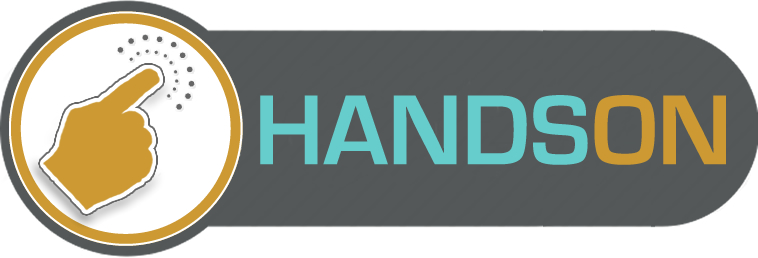
Handson - Hands-on approaches
Implementation period: 01.10.2018 – 30.09.2020
In Europe, recent estimates place the number of learners with special educational needs (SEN) at 15 million. Learners with SEN frequently leave school with few qualifications and are much more likely to become unemployed or economically inactive. The European Agency for Special Needs and Inclusive Education (2013) formulated recommendations relating to the four "patterns of successful practice" that are likely to improve VET system effectiveness and the transition to employment of learners with SEN.
Read More
I-AID: Internet Abuse Identification and personaliseD withdrawal strategies
Implementation period: 01.11.2019 - 31.10.2021
The project aims at empowering adults to deal with situations of excessive preoccupation with Internet/screen abuse (known as Internet Addictive Behaviour - IAB), equipping them with the skills and the tools to modify their behaviour. It draws on contemporary research findings and considers that Internet/screen overuse is not a “childhood or adolescent disease” but also a growing risk among adults.
Read More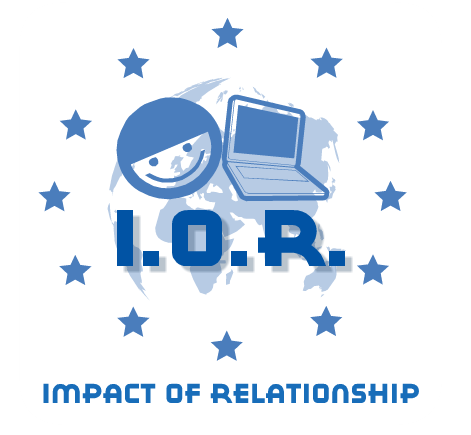
I.O.R. – Impact Of Relationship
Implementation period: 01.12.2012 – 30.09.2014
Increasing the safety of young people aged 10-17 years using social media networks by using 9 social media sites.
Read More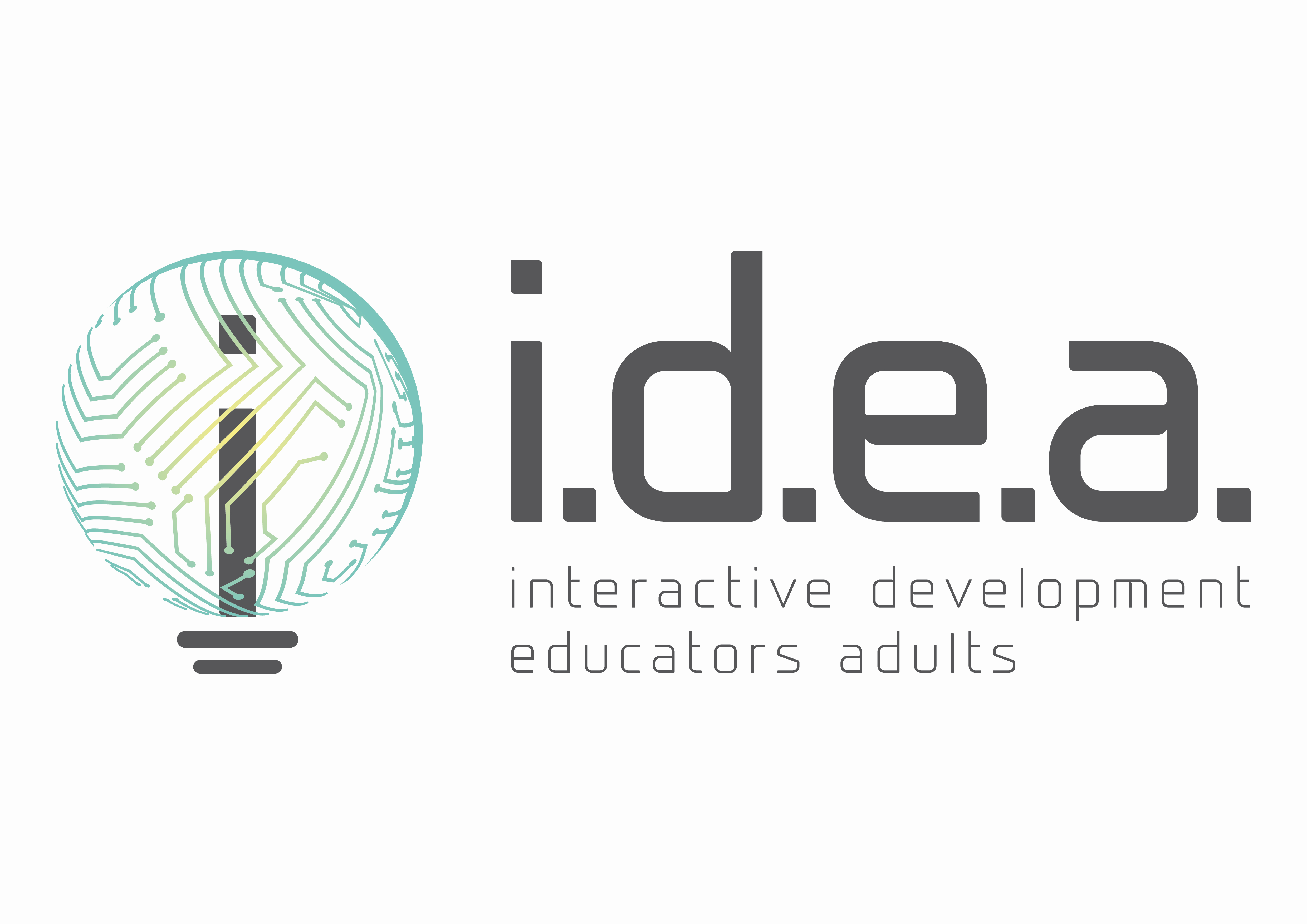
IDEA: Interactive toolset supporting Development of Educators of Adults’ skills in Boosting Entrepreneurship among NEETs
Implementation period: 01.10.2019 - 30.09.2021
The main aim of the project is to extend and develop competencies of educators of adults in the area of entrepreneurial skills (in non-formal settings) through providing them with guidance and motivation strategies and equipping with innovative solution - Interactive toolset for Educators of young adult people which will support the development of their skills needed for boosting entr. among NEETs. This toolset will allow Educators for ssessing the skills of NEETs, propose them customised learning path and provide adapted training and in effect connect young adults and real life entrepreneurs of small and micro businesses.
Read More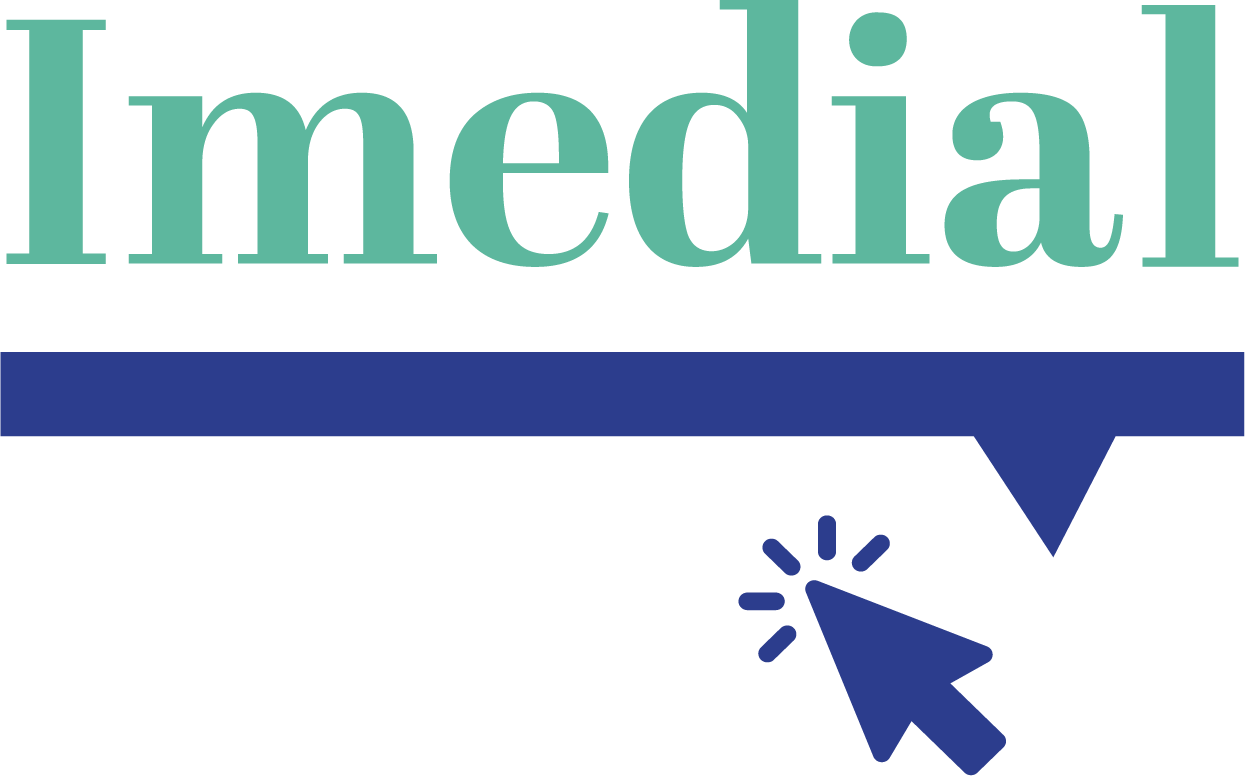
IMEDIAL - Increasing MEDIA Literacy skills of adults to fight misinformation, fake news and cyberbullying
Implementation period: 1.10.2020 – 30.09.2022
Media literacy is a “catchy” term nowadays but not much of ground-work is done to support the ability for conscious consumption of media-distributed messages among adults. This was stated during one of the gatherings of EC body, Media Literacy Expert Group. "Media literacy" is defined by MLEG as umbrella expression including all technical, cognitive, social, civic and creative capacities that allow a citizen to access the media, have critical understanding and to interact with it. All these capacities enable citizens to participate in economic, social and cultural aspects of society and play active role in democratic processes. MLEG in June 2018 summarised the research carried out among EU citizens and concluded that there is a “need for strengthening efforts in increasing media literacy at all levels”. A. Hellman, Deputy Head of MLEG, after listing a few initiatives, concluded “But this is not enough” and one recommendation was to “provide educational material to educators”. Adult educators acting on behalf of learners as part of civil society need to learn how to recognise, analyse and explain to their learners key terms and ideas for understanding disinformation with media literacy principles.
Read More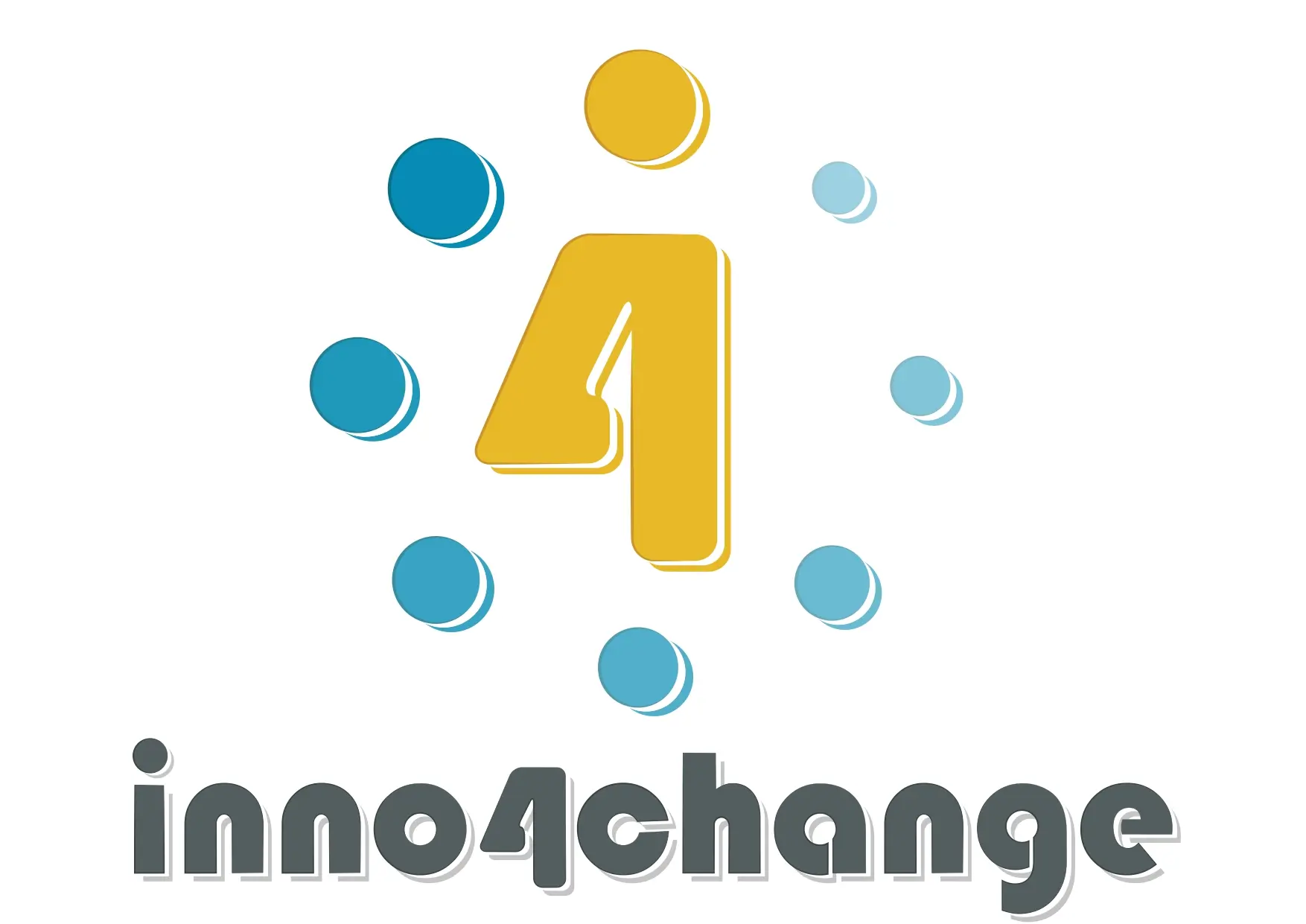
INNO4Change – Empowering innovation and entrepreneurship skills on social entrepreneurs
Implementation period: 01.12.2022 - 30.11.2024
Social innovation involves finding new solutions to societal problems. Social entrepreneurs can become true innovators if they combine societal goals with an entrepreneurial spirit, leading to positive social impact and economic growth. The Social Business Initiative has recognized the importance of providing access to education and training programs for social entrepreneurs. The INNO4CHANGE project aims to promote innovation, entrepreneurship, and business skills for future social entrepreneurs and vocational education and training providers. The project aligns with the objective of adapting vocational education to meet the needs of the labor market and addresses the importance of social enterprises in the 21st century. By developing a digital learning portal, the project facilitates the use of educational resources and digital technologies for social entrepreneurs.
Read More
InterCulturalHotel – Intercultural Professional Development in Hospitality
Implementation period: 01.12.2021 - 31.12.2023
InterCulturalHotel project is motivated to develop a new, innovative intercultural training framework for the hospitality sector that would fit the actual needs of the hospitality professionals. It prepare them for surprises that can arise in a foreign cultural situation and plant intercultural awareness into their minds. This project will also help hotel staff create intercultural connection with guests from China or Russia whose culture and social interaction differ significantly from Western cultures. The tasks of the project implemented under the Erasmus + program will include promoting the importance of intercultural competence among employees and increasing the competitiveness of the sector in Europe.
Read More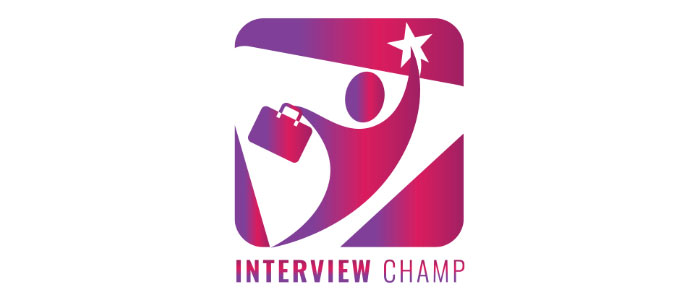
Interview Champ
Implementation period: 01-10-2018 – 31-03-2020
This project aims to help young disadvantaged job seekers to get selected and perform better during job interviews and thereby increase their chances of entering the labour market.
Read More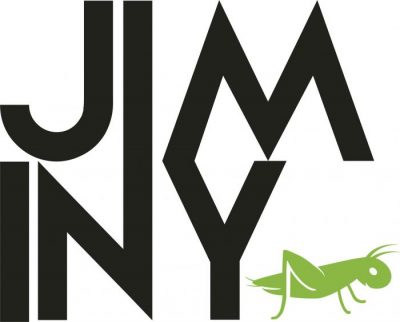
JIMINY - Journey to lncrease your techniques of eMotional lntelligence, digital awareNess and entrepreneurship lilestYle
Implementation period: 01.10.2019 - 30.09.2021
Nowadays, low level of digital competence, can leave a person at a disadvantage, not just on the labour market, but also in society at large. As such, there is a clear link between enhancing digital competence and efforts to create more inclusive and cohesive societies. Accordingly, both the adult educators and the job seekers need to develop their digital skills. A fundamental skill for any individual to perform well at the workplace and better integrate in the social and economic life of his/her community is also emotional intelligence. Self-awareness, self-management, motivation, empathy and social skills are now recognised as the factor behind personal and professional success.
Read More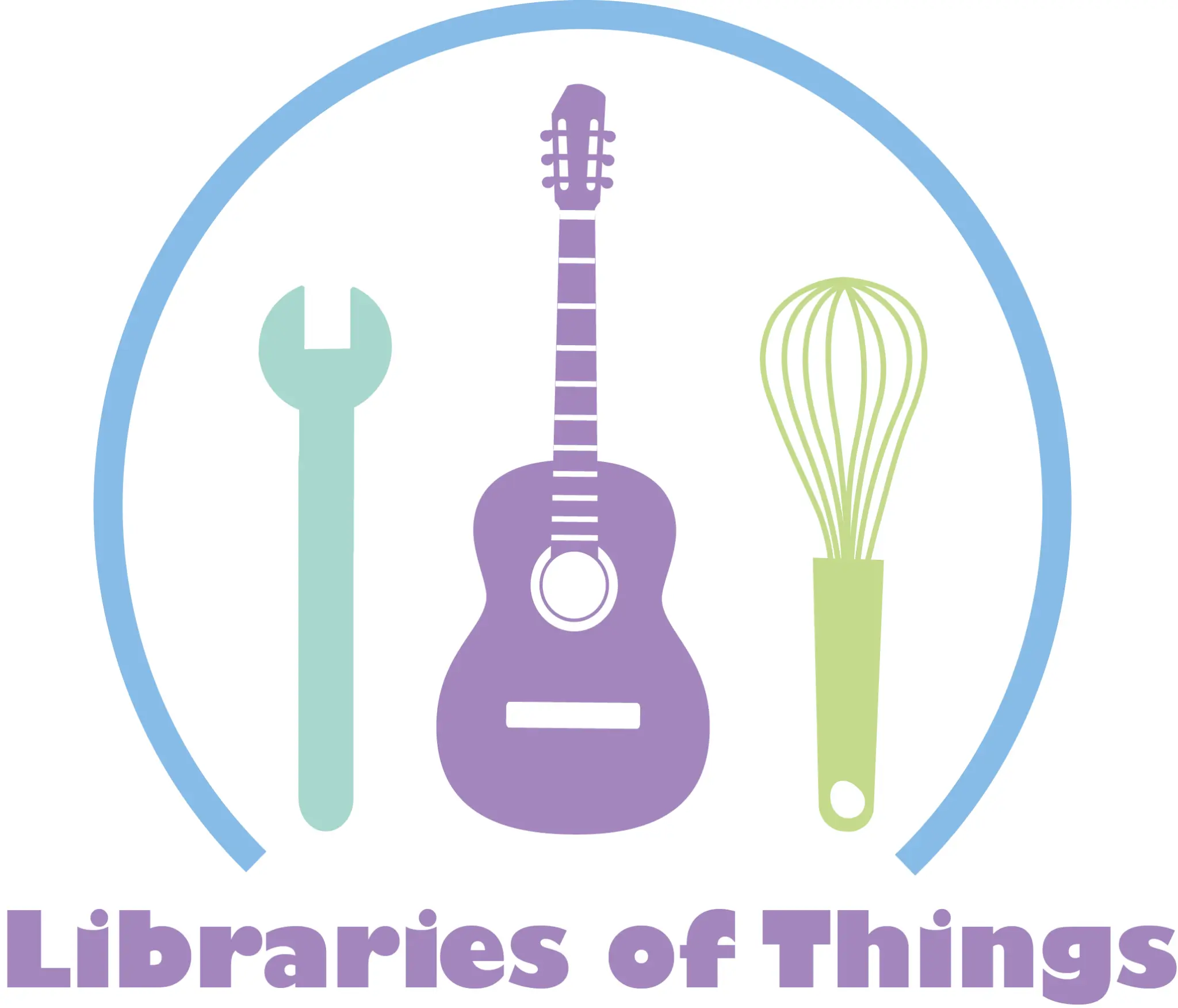
LTE - Libraries of Things Europe
Implementation period: 01.03.2021 - 28.02.2023
Project ‘Libraries of Things - LoT’, members can borrow for free, or at a low cost, from a range of items. This gives people the opportunity to participate in a circular economy and learn more about climate change. Project goals are creating an online interactive platform to catalogue information and resources from LoTs in other countries and offer advice to others in Europe to set up an LoT and to disseminate the findings of the project.
Read More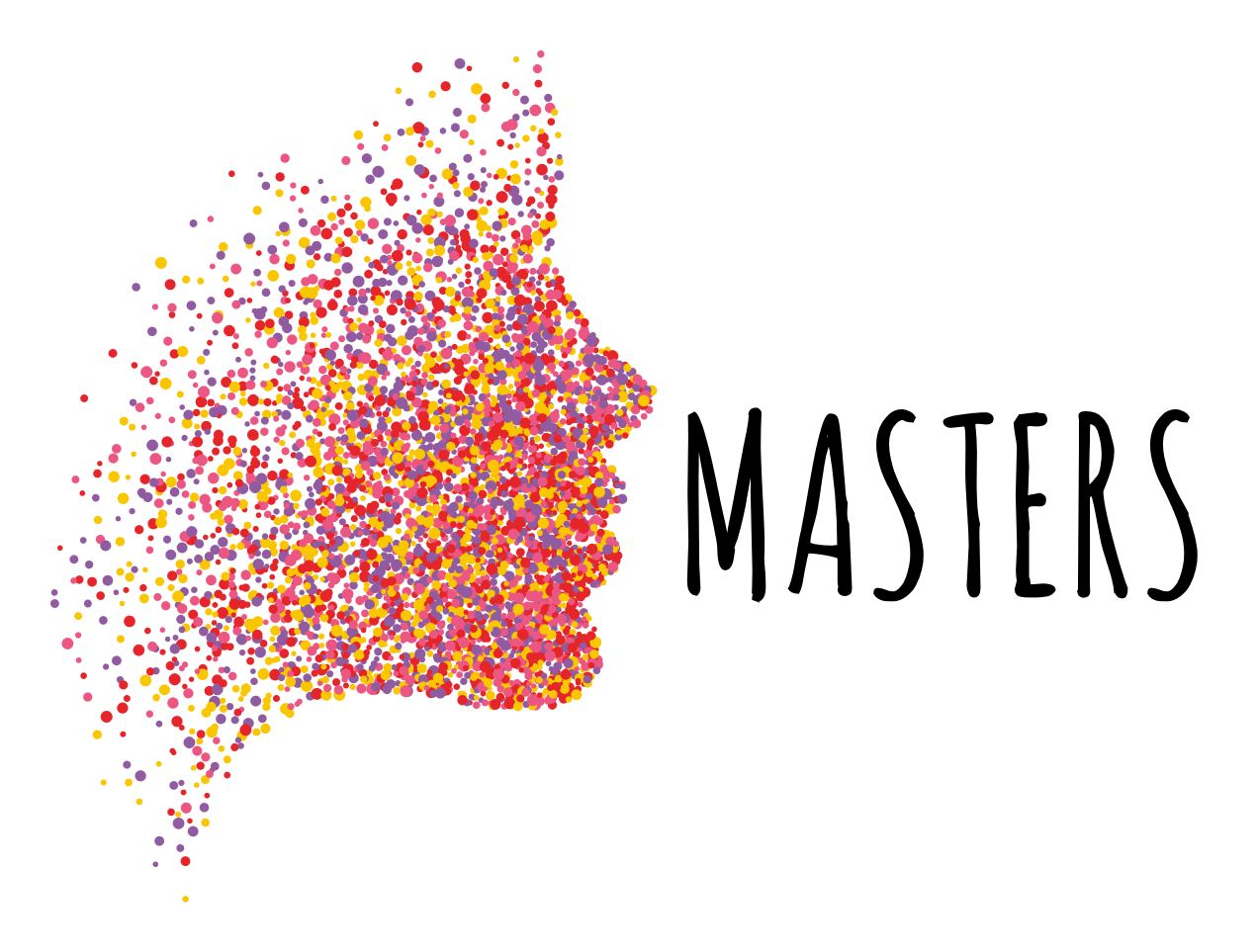
MASTERS - Make ApprenticeShip aTtractive in European SMEs
Implementation period: 01.10.2019 - 30.09.2021
MASTERS wants to promote apprenticeship in small and micro enterprises, developing and validating a set of practical and methodological tools to support the professional development of in-company tutors operating in SMEs, VET trainers and job counsellors, so as to allow them to implement efficient and high quality apprenticeship programs.
Read More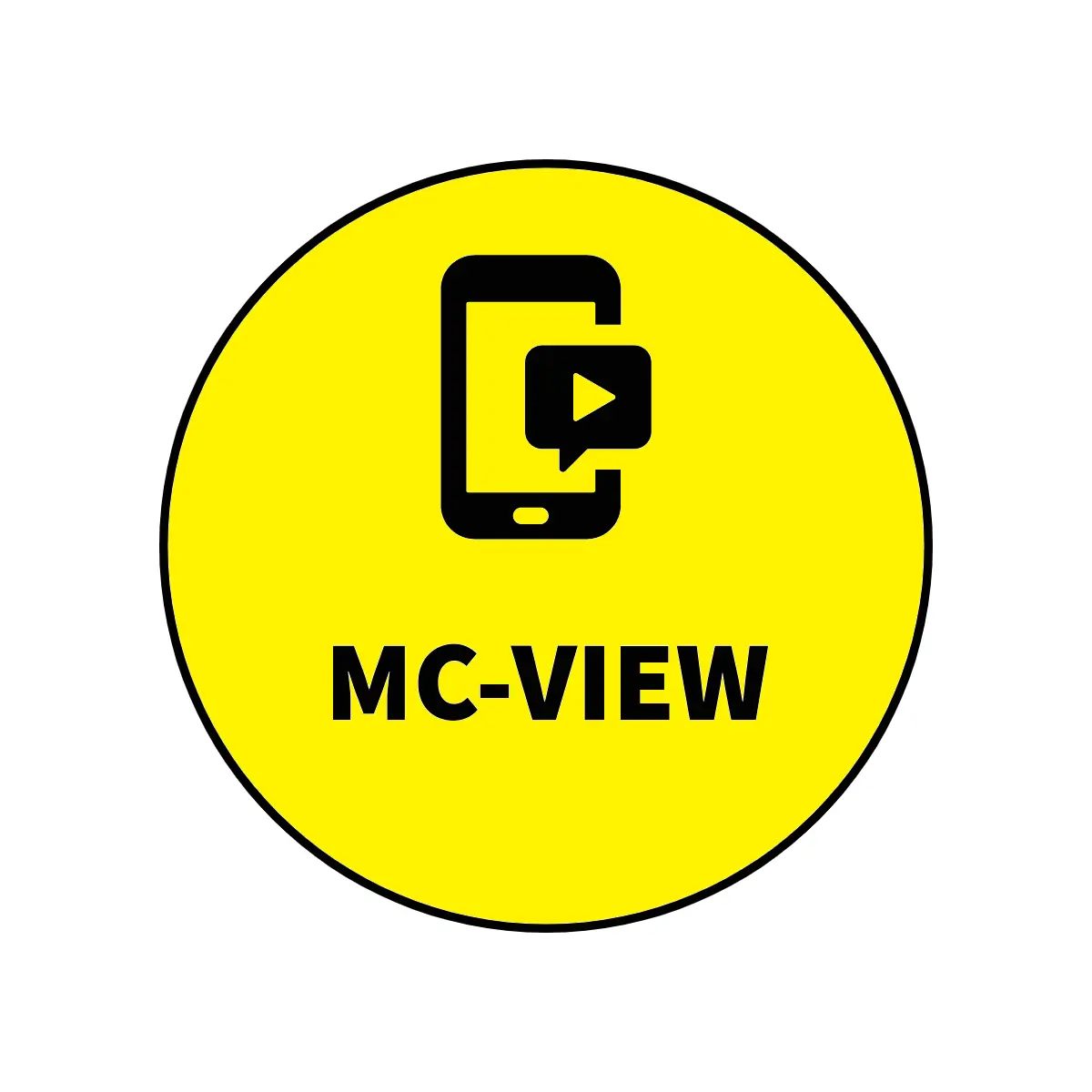
MC VIEW - Media literacy and Critical VIEWing as effective outreach to learning throughout life by people with fewer opportunities
Implementation period: 01.11.2021 – 30.11.2023
The actual and appropriate use of new technologies depends on achieving a level of competence in this area, since disinformation as false, inaccurate or misleading can cause harm to our society. There is therefore a need for specific media literacy initiatives that provide the ability to think critically and detect disinformation. This project aims to develop tools that help the target audience interpret the internal content of a programme, interpret its design, recognise external forces and factors shaping the programme, compare media representations with reality and respond to the potential impact of television form and content. What is needed here is systemic action and support for both adults and their educators. In this context, the project is also innovative for the whole partnership.
Read More
MCRE – Media literacy, critical viewing and CREative vision as effective learning approach for people with fewer opportunities
Implementation period: 01.01.2022 - 31.12.2023
The rapid development of information and communication technologies, coupled with socio-demographic changes, is putting people aged 50+ and low-skilled adults under much more pressure than ever before. To keep up with these changes, it is essential to have an adequate level of media literacy to avoid digital or financial exclusion. The goal of the MCRE project is to support adult education, increasing their media literacy and critical thinking. The project also aims to support adults in analyzing information, which will make them more resistant to fake news and misinformation.
Read More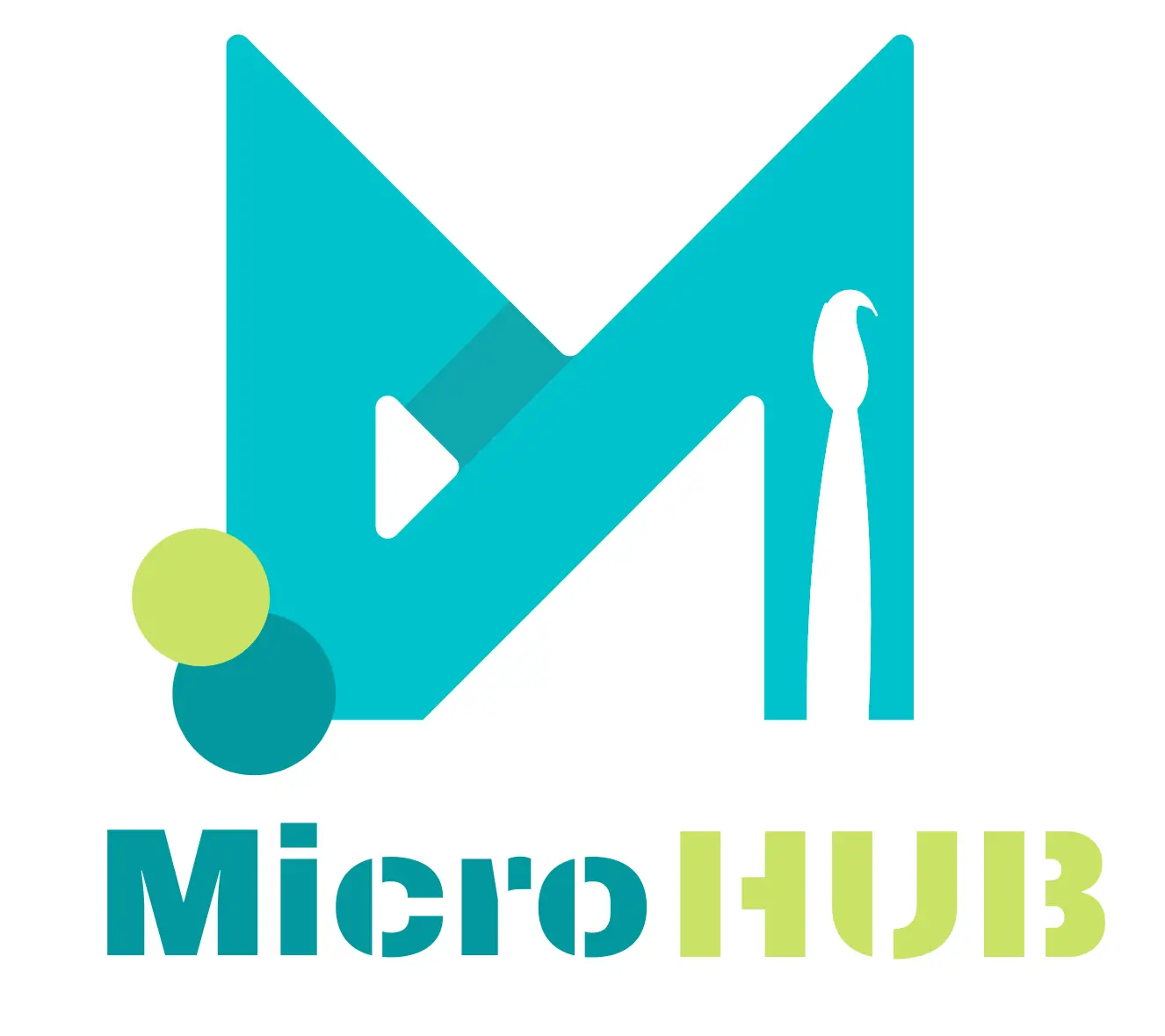
MicroHUB – Promoting creativity microbusiness though web tools in rural area
Implementation period: 01.11.2021 - 31.10.2023
The MICROHUB project aims at developing innovative digital training solutions to enhance the effectiveness and competitiveness of crafters and artisans’ microenterprises, especially in the context of participation to national and EU markets. This will be achieved by developing relevant training solutions and material to strengthen the capacity of existing microenterprises and craft-type of enterprises to strive in the current economic environment. At the same time, the MICROHUB project is devoted to all those individuals who wish to establish their own creativity micro and craft-type enterprise as a response to a crisis or unemployment. But what are the project deliverables?
- Competence Matrix
- Transformative Business Model
- Online Tool
- Individual Online Acceleration Procedure
- Result 1 - Competence Matrix for Digital entrepreneurship and business creative thinking for crafters in rural area
- Result 2 - The Transformative Business Model for creativity micro businesses
- Result 3 - Design of innovative multilingual online tool
- Result 4 - Individual online acceleration procedure for entrepreneurs

Mobile
Implementation period: 01.01.2013 – 31.12.2014
The project was aimed at entrepreneurs in the SME sector and large companies interested in obtaining a consultative support in ICT through mobile devices.
Read More
NEXT - The next generation is shaping the EU's digital society
Implementation period: 01.03.2022 - 01.11.2024
Artificial intelligence (AI) is expected to play a major role in shaping global competitiveness and productivity over the next couple of decades, granting early adopters significant societal, economic, and strategic advantages. As the pace of AI innovation and development picks up—underpinned by advancements in big data and high-performance computing—the United States and China are both in the driver’s seat. Europe, meanwhile, despite having certain advantages such as a strong industrial base and leading AI research and talent, is punching far below its weight. This state of affairs is especially due to the fragmentation of the EU’s digital market, difficulties in attracting human capital and external investment, and the lack of commercial competitiveness.
Read More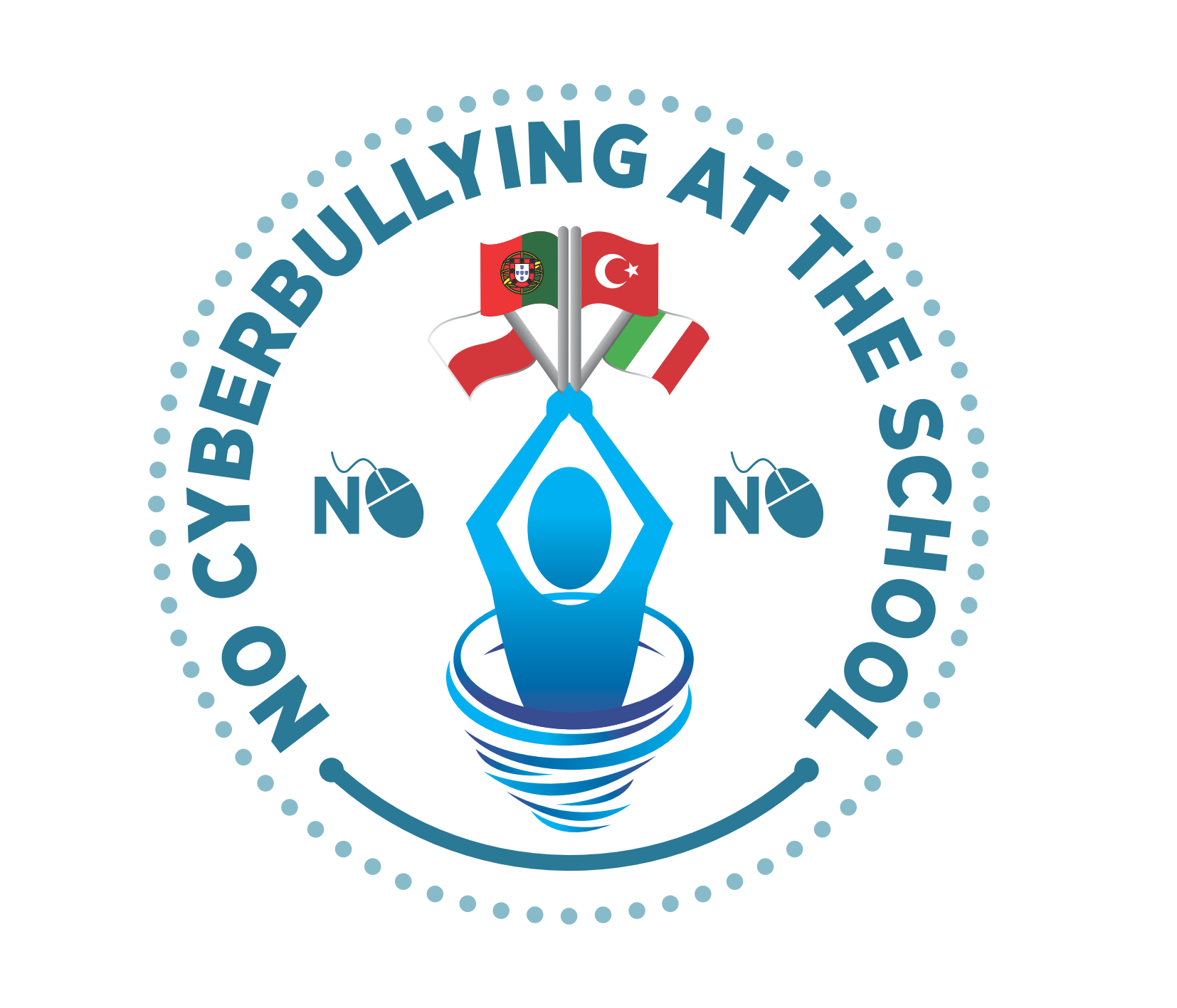
No Cyberbullying at the School!
Implementation period: 19.09.2016 – 18.09.2018
The main aim of the project was to raise awareness against cyberbullying, to learn what had been done regarding the prevention of tyranny and using it for the sake of partner schools in Partners’ countries.
Read More
OnTheMoneyTrail - Interactive Book for the Financial Education of Children
Implementation period: 01.10.2017 – 30.09.2019
The project aims to develop an innovative pedagogy for delivering key Financial Literacy competences to children (3-6 years old), based on an interactive learning eBook, that may be used in formal, non-formal and informal learning settings.
Read More
OPI - Open Innovation Competences
Implementation period: 01.11.2020 - 30.10.2022
The OPI project aims to develop and test a comprehensive methodology and tools for requalification of human resources to obtain professional competences for those future oriented positions in open innovation scope.
Read More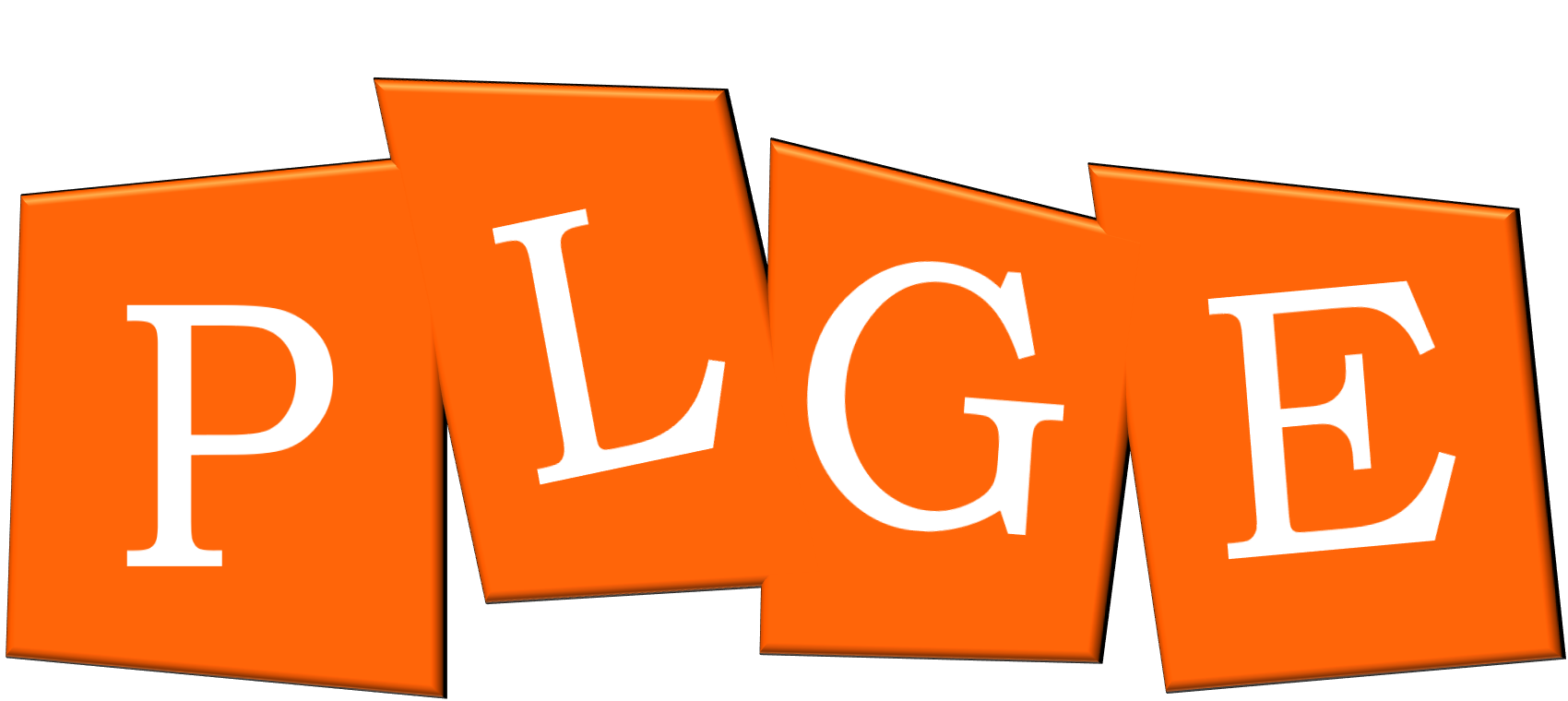
PLGE
Implementation period: 01.10.2018 - 30.09.2020
The aim of this project is to provide language teachers with a set of innovative tools in an individual platform, along with the skills and knowledge to be able to offer adult learners high quality, personalised learning opportunities in adult, group language courses.
Read MoreProject Discoverer
Implementation period: 03.01.2009 - 30.08.2009
Activation of young inhabitants of Rzeszow and Palermo through searching for intercultural heritage of these cities.
Read More
ReAge
Implementation period: 01.08.2012 – 30.08.2014
The aim of this project was to create a unique environment basing on mutual learning process among seniors and youngsters. The spreading of a cross-generation learning was the main aim of the project, and thanks to exchanging information and knowledge among target groups and popularising the elicitation of seniors, the partnership disseminated information about problems met by seniors and was trying to eliminate them.
Read More
RetroVET – Retrofitting Green Elements into existing VET provision
Implementation period: 01.01.2022 - 31.12.2023
The RetroVET project will support the fight against climate change and promote the benefits of an environmentally sustainable approach to vocational education and training through the “Green Elements”. It aims to: - Contribute to develop and promote a green culture among VET establishments - Close the green skills gap between VET centres that have successfully adopted green skills implementation practices, by facilitating the integration of amongst VET centres which have not embraced ICT practices - Develop a collaborative European Green Skills VET peer mentoring and performance improvement tool/frameworK - Capitalise on existing European vocational training networks multiplier structures and regional hubs to mainstream ICT skills change in VET centres across Europe - Promote and facilitate green skills learning through cross-curricular collaboration and remote peer-to-peer learning amongst European VET centres, practitioners and wider stakeholders
Read More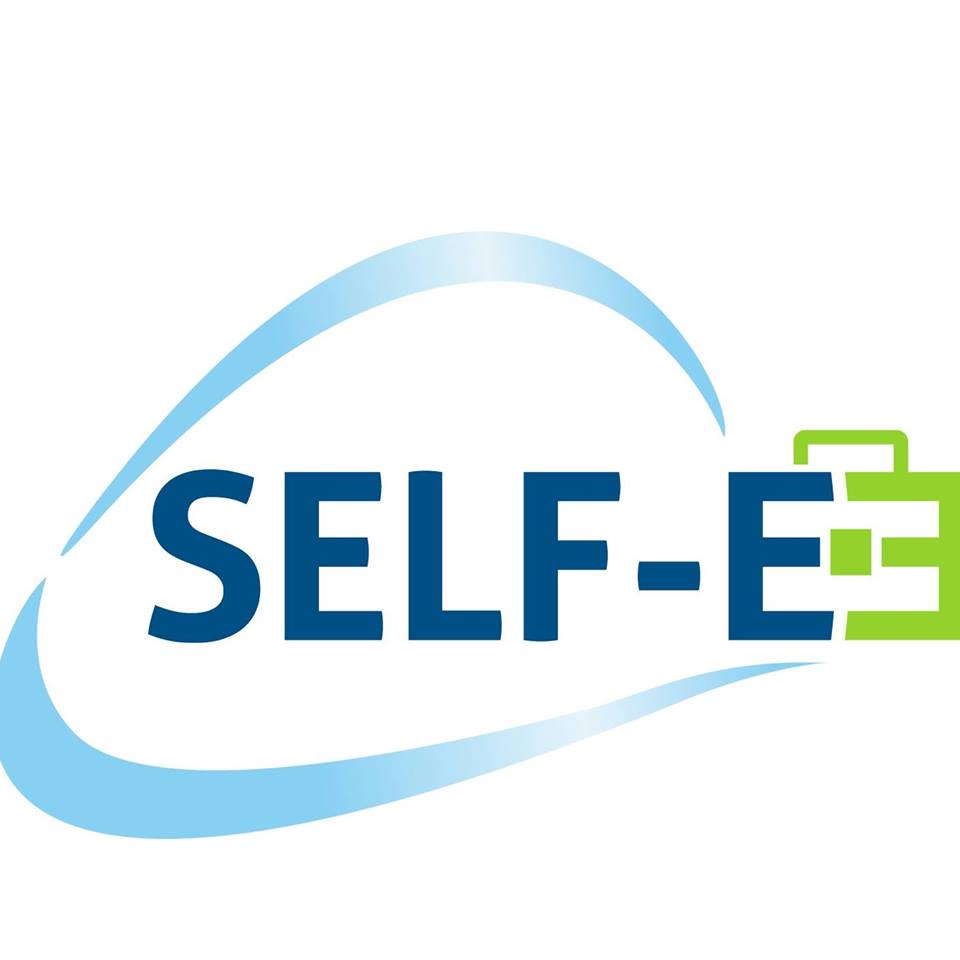
SELF-E
Implementation period: 01.02.2018 – 31.05.2020
Project concerns promotion quality youth work in Europe in order to foster inclusion and employability for young people with fewer opportunities (including NEETs). The main aim of the SELF-E project is to promote quality youth work in order to foster lifestyle self-employment of young people with fewer opportunities, including NEETs.
Read More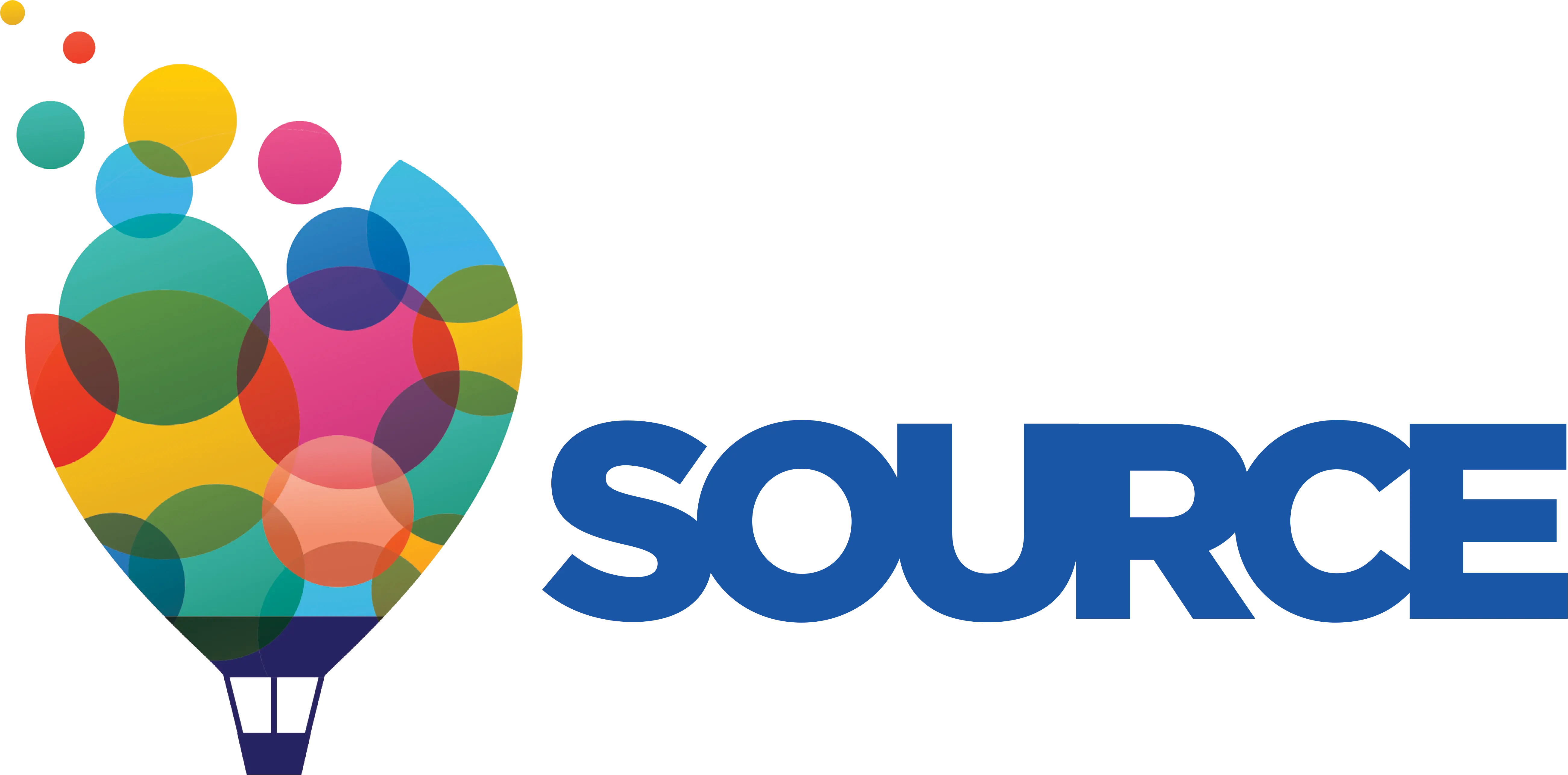
SOURCE Teaching and visual methods for online instructors
Implementation period: 01.11.2022 - 31.10.2024
The SOURCE consortium consists of partners actively involved in providing structured and semi-formal learning experiences. During the preparatory discussions, the main finding was that educators lack the digital competence and skills to move beyond the flat delivery of online learning and provide engaging and participatory learning experiences.
Read More
STAND UP: Fighting cyberbullying by identifying it in the VET classroom
Implementation period: 01.02.2022 - 01.02.2024
STAND UP is a project focused on the fight against cyberbullying in VET, especially in IVET and middle VET. Cyberbullying is usually focused and studied only in primary and compulsory secondary education. Most of the available studies and materials are focused on students under sixteen years old corresponding to compulsory education, as is the case of Save the Children or Unicef studies. However, VET students, who are usually positioned between 16-24 years old, are not normally the subject of such studies, although if we look at the percentages of the 2017 Unicef study it is clear that bullying goes up as age goes up (there were 14% of participants victims of cyberbullying under 14 years old, and 15% under 16), from which it can be derived that students between 16 and 20 years old still need tools to help them in this area. And even more importantly, teachers, trainers and workers in VET centers who are in contact with these students need tools to know how to manage cyberbullying crises. In this context, the need that STAND UP seeks to fill is the lack of training given explicitly to VET teachers, as well as content designed for VET students. Not only that, it also seeks to give a tool that provides support to teachers, who in many cases have already denounced the danger they see in cyberbullying, and how it is increasing due to the widespread use of mobile phones among adolescents and young people. At the same time, the aim is to provide a tool to help students who suffer from cyberbullying, through a mobile application that allows quick access to regional or national contact information, and that provides tools to raise awareness among students about the importance of the fight against cyberbullying.
Read More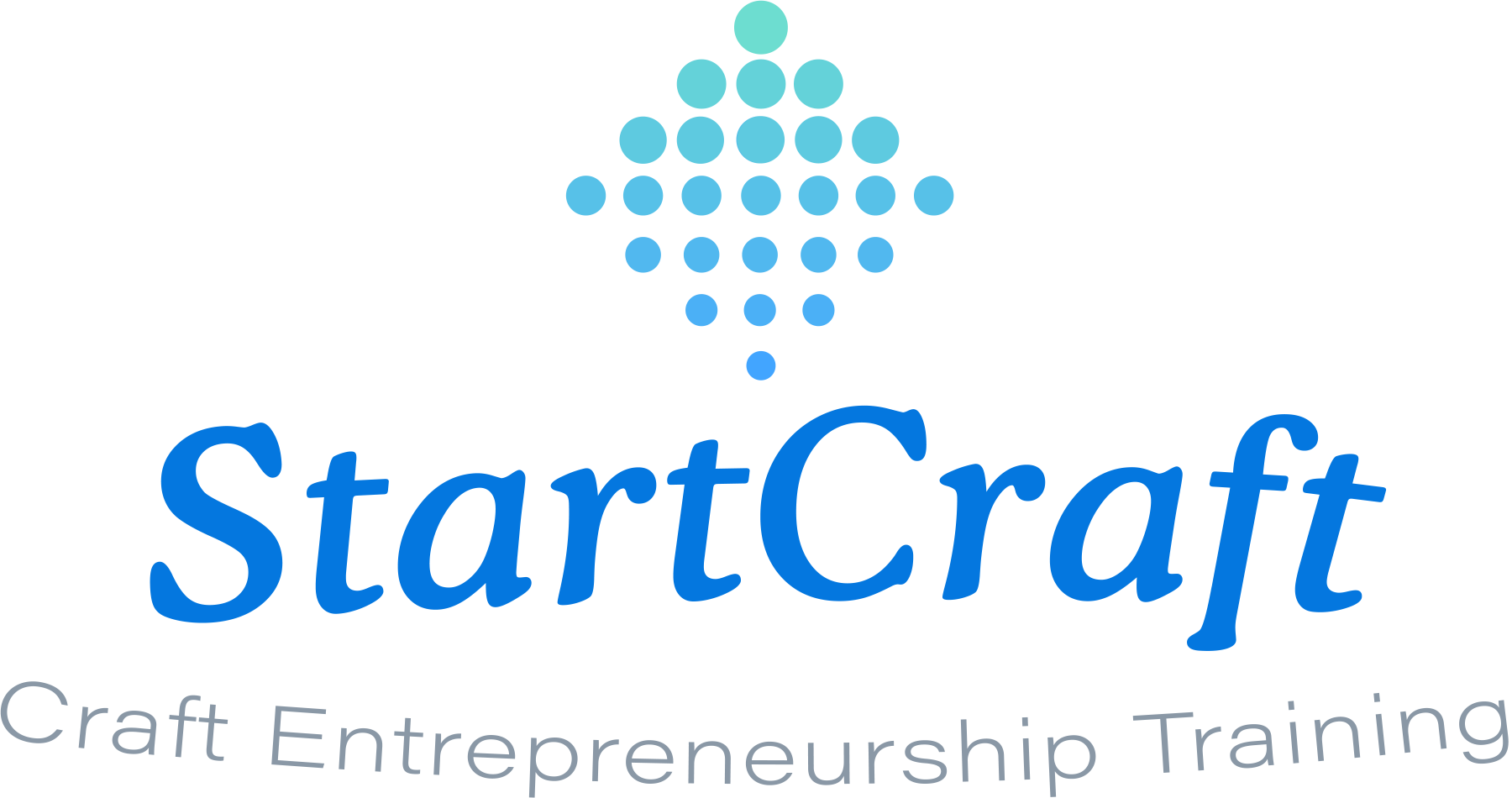
StartCraft - Training for managerial competences in VET for the small businesses of the crafts sector
Implementation period: 31.10.2020 - 30.09.2022
The craft company plays a fundamental role in people’s quality of life and dignity and, as it can have an impact on the stability and cohesion of society; it is an indispensable part of the future. However, in a highly competitive economy, a good know-how is not always enough to develop a successful business project. The main objective of StartCraft is to address the training needs of crafts entrepreneurs in key transversal skills based on new updated research, and strengthen their business activities. StartCraft is a EU partnership designed to develop core and innovative learning methods that best encourage success in business activities, answering the need for education and training thanks to an innovative proposal based on participation and ICTs.
Read More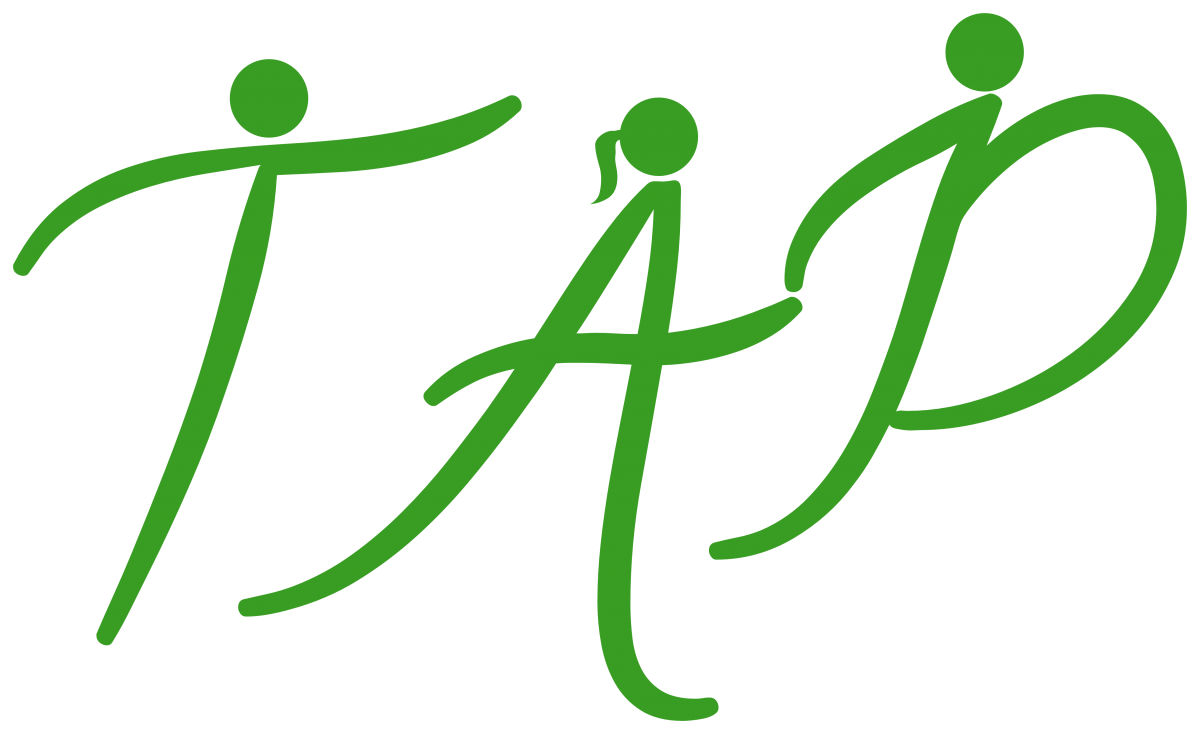
TAP – Together Against Poverty
Implementation period: 09.2014 - 08.2016
The main goal of the project is poverty prevention through development and implementation of educational tools that are suitable for both target groups of the project.
Read More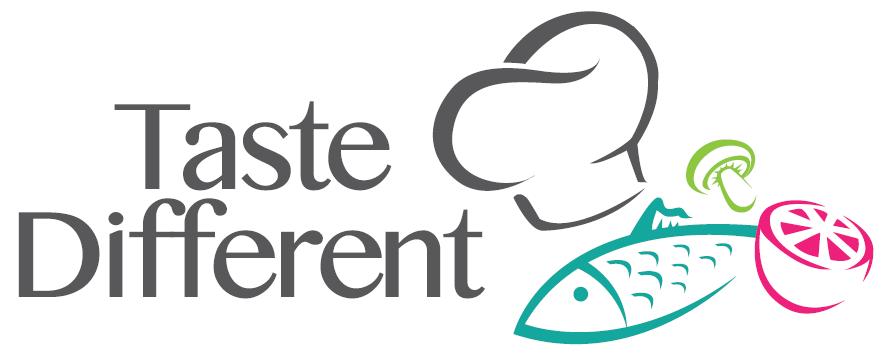
Taste Different
Implementation period: 01.08.2012 - 31.07.2014
A large number of marginalised people are found across Europe. Due to lack of education, job opportunities and to some extent language training or ICT skills, they are at risk of social exclusion. The Taste Different project sought to promote active inclusion through something as simple as food.
Read More
TEACHER 4.0 - comprehensive method of implementation of Industry 4.0 concept into didactic practice in primary and secondary schools
Implementation period: 01.10.2019 - 30.09.2021
Rapid digitalization and Industry 4.0 processes, which we are now witnessing in many spheres of life (not only in advanced industry), has created a great challenge for educational systems and their most important representatives, teachers. The Teacher 4.0 project concentrates on Industry 4.0 didactic competence of teachers of non-IT subjects. This competence, due to development of technology, became the key competence in today's world.
Read More
TeleGrow: "Enhancing the Teleworking Digital Skills for the Middle aged employees"
Implementation period: 01.03.2021 – 28.02.2023
Before COVID-19, teleworking was adopted by very few countries and in very few sectors and thus a great number of employees lacked experience in remote working. Employees in the age group of 50+ seem to be a particularly vulnerable group to the overall situation as they are not only threatened by the virus itself but also by the rapidly changing working conditions. Older employees aged over 50+ tend to have fewer ICT and digital skills than younger employees and face more challenges in terms of acquiring new digital knowledge. We introduce the TeleGrow project - designing suitable training materials, the project will equip VET Trainers and providers with necessary knowledge and tools in order to (re)train and upskill employees aged 50+ and help them work efficiently from home. A key focus point of the TeleGrow project is to provide the appropriate methodology in order to help employees of older age adjust to the new working reality.
Read More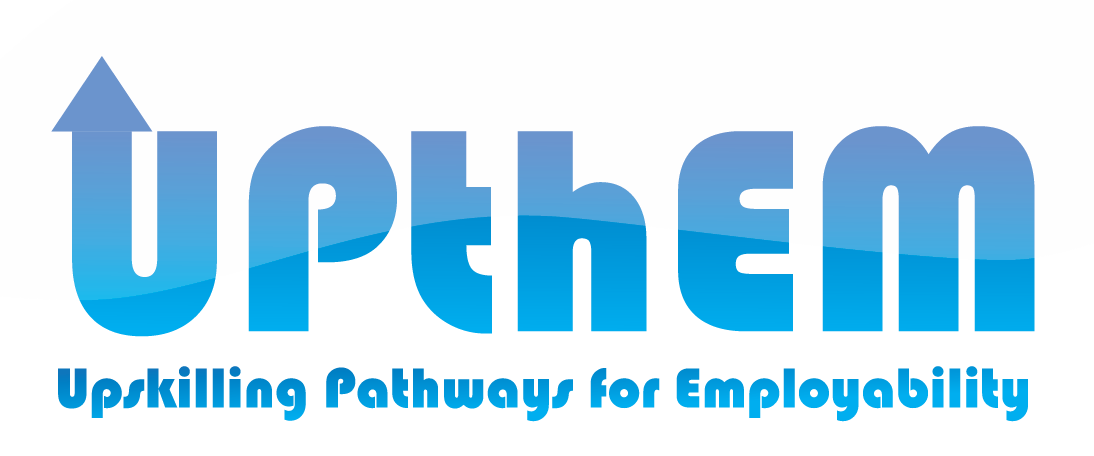
UPthEM - Upskilling Pathways for Employability
Implementation period: 01.11.2019 – 30.04.2021
The UPthEM project amis to explore the diverse national experiences in supporting disadvantaged groups to introduce an innovative UPthEM training programme to empower employability and employment prospects of disadvantaged people. The partnership would like to focus on these target groups and engage them in a successful career path either as employed or as self-employed entrepreneurs.
Read More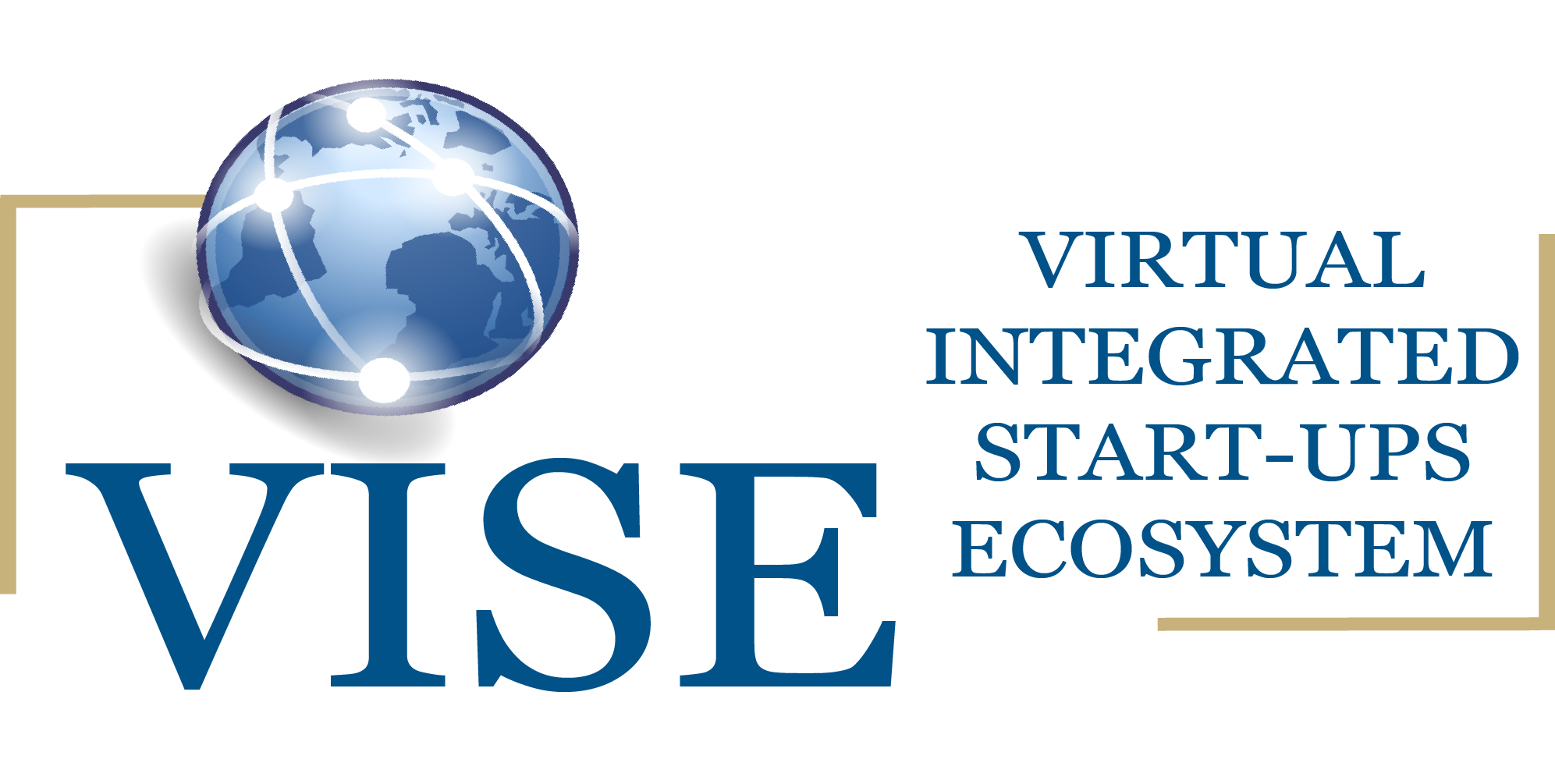
VISE - Virtual Integrated Startups Ecosystem
Implementation period: 01-10-2020 - 30-09-2022
Understanding the significance of the EntreComp framework, partnership wants to use it as a reference for achieving the aim of the VISE project, which is to strengthen entrepreneurship competences of start-uppers and wannabe entrepreneurs in the field of 3 most needed areas of entrepreneurship (according to EntreComp framework) together with taking up digital technologies to strengthen their business activities. The project will produce one main result: Virtual Integrated Start-ups Ecosystem but on the way to produce the final version of the ecosystem, smaller results will be elaborated. These are: methodology of research together with the tools (questionnaires and focus groups scenario), report from the research, set of questions, quizzes, mini-scenes for the assessment tool and the assessment tool itself, mechanism for creation of the roadmap and the roadmap, content of 6 training modules, curriculum of the course and e-learning course itself, testing plan and report.
Read More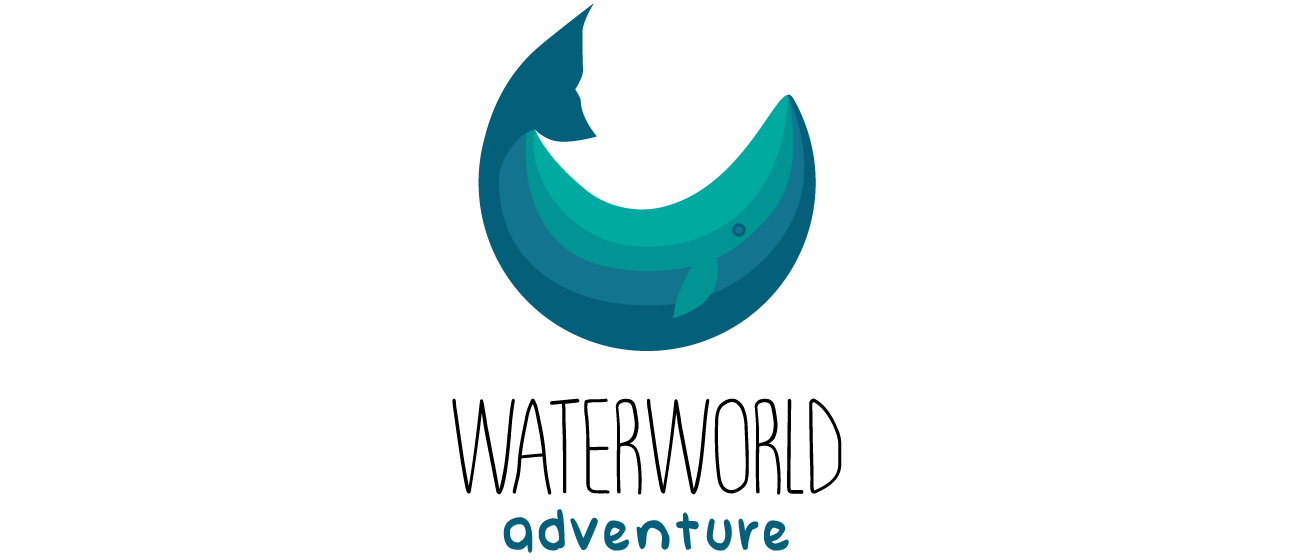
WaterWorldAdventure
Implementation period: 01.10.2016 – 30.09.2018
The main goal of this project was to create and make available online to educators, an educational interactive ebook – WaterWorldAdventure.
Read More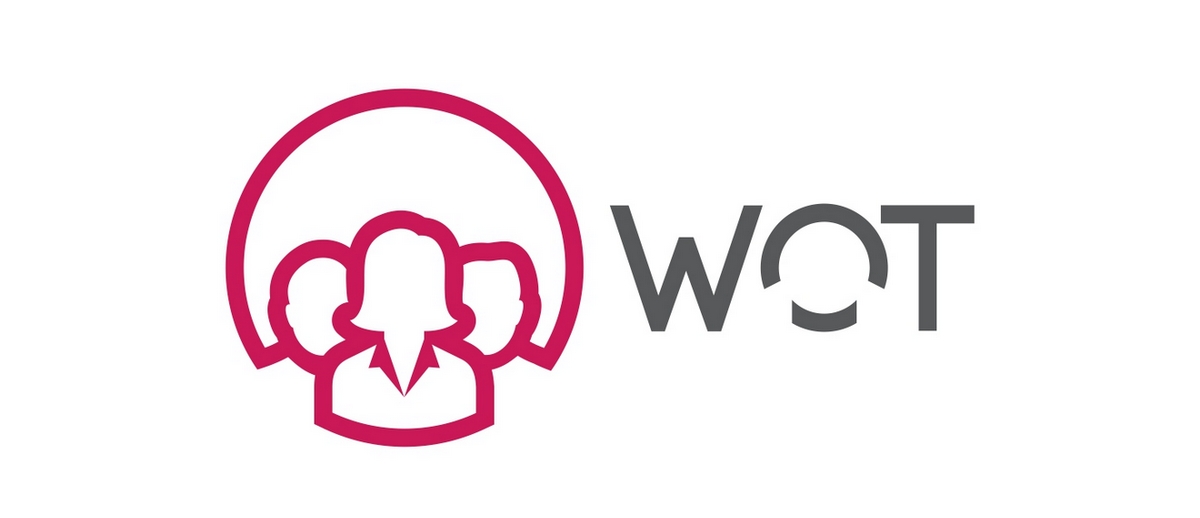
WOT
Implementation period: 01.12.2016 – 31.05.2019
Read MoreStudy of utility of income in Polish households and its impact on the households
Implementation period: 10.2013 - 12.2014
The main goal of the project is to determine how an assessment of the utility of income influences households in making the decision whether to initiate or postpone consumption.
Read More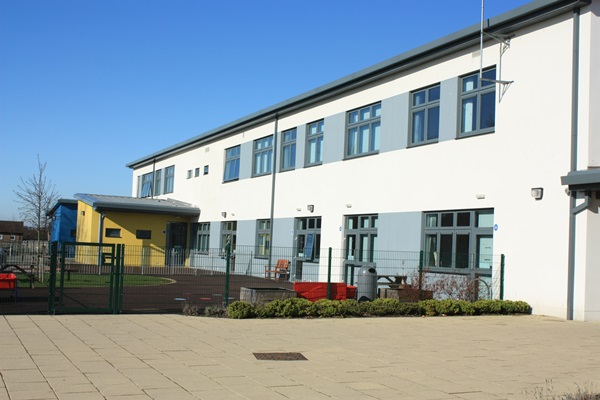
1.2 RPO
Implementation period: 01.10.2011 – 15.06.2013
Project is addressed to the entrepreneurs from the SME sector, who are interested in counselling support in the field of modern ICT implementation through active portal.
Read More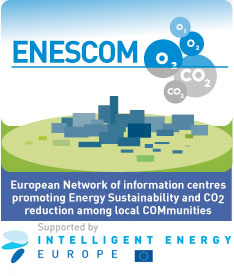
Project Energy Sustainability
Implementation period: 06.2010 – 11.2012
Increasing the role of local communities in mitigating climate change by creating a common methodology, which will contribute to capacity building for sustainable management / energy management and adoption of smart policies for local strategies for renewable energy (CO2 reduction) in the local community of European states.
Read More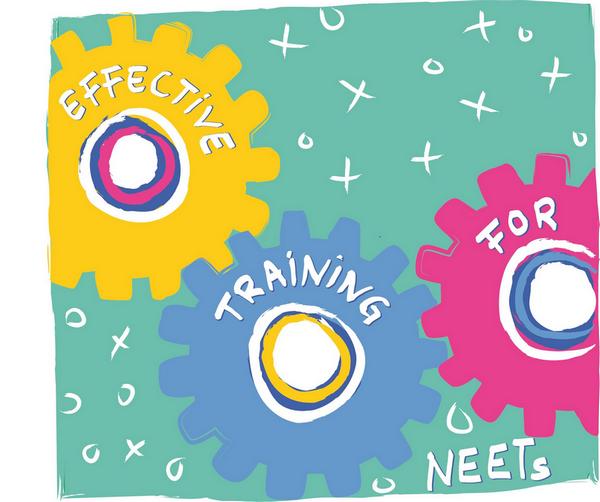
ET-NEETs - Effective Training for NEETs
Implementation period: 09.2014 – 08.2016
ET-NEETs project is a response to the lack of systemic mechanism for the exchange of good practices in support of people known as NEETs, ie outside employment, education or training.
Read MoreProject GEPP
Implementation period: 01.08.2009 – 31.07.2011
The main objective of the project was to provide training courses and support for disadvantaged groups, which will help in maintaining or obtaining employment.
Read MoreProject Podcasting
Implementation period: 01.10.2011 – 15.06.2013
Following joint research into the new approaches to learning needed to support students who, for differing reasons, cannot access lifelong learning by full-time attendance at a local training centre, Leeds City College has worked with partners from Greece, Latvia, Poland and Romania.
Read MoreGet to know your city
Implementation period: 03.01.2008 - 30.04.2008
Increase of local awareness as well as knowledge about history and heritage of the city by its young inhabitants.
Read MoreProject PsyConsult
Implementation period: 01.08.2009 – 31.07.2011
To support psychologists working as counselors, through the creation of the course for this target group, and website.
Read More
Effective mentoring
Implementation period: 10.2013 – 06.2014
The aim of the project was to enable the establishment and continuation of cooperation between the Association and planned to acquire Swiss partner in the area of institutions operating based on mentoring.
Read More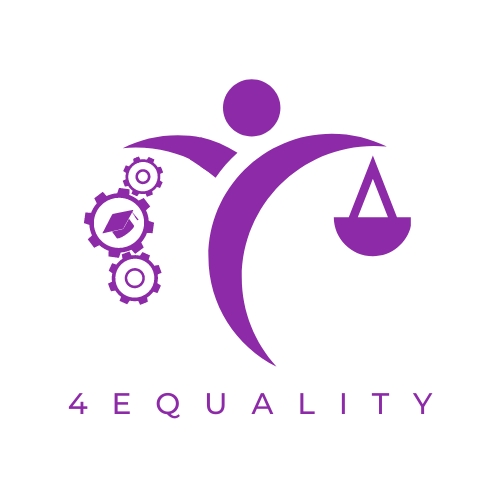
4equality – Implementing innovative tools and methodologies for employability and equal opportunities of young women facing bias in men-dominated future-oriented sectors
Implementation period: 01.01.2024 - 31.12.2025
Current youth generation is eager to take control of their lives, they are better educated than ever and are more active in political and social arena (53% engagement) (EU Youth Strategy). But, more than ever it faces inclusion challenges within the economic sector, due to uncertainties linked to technological changes, demographic trends, discrimination, social exclusion and populism. The challenge is even more severe for women. Even though more young women than men in EU graduate from universities (Women's situation in the labour market, EU, 2022), their access to job market is more limited, with 12.6% EU gender employment gap (CEDEFOP 2022). More, the access to job market declined during Covid especially for women and young people (OECD 2022). While women in general face strong barriers in job market access related to gender bias and perceived negative impact of commonly higher engagement into unpaid care responsibilities, it’s young women that are on average 2 to 3 times more likely to be unemployed than older adults (ILO 2021). While such gender inequalities are broadly recognised, and especially present in male-dominated areas, as business and STEM, women studying or training to work in those sectors aren't being prepared to deal with the job market discriminative behaviours.
Read More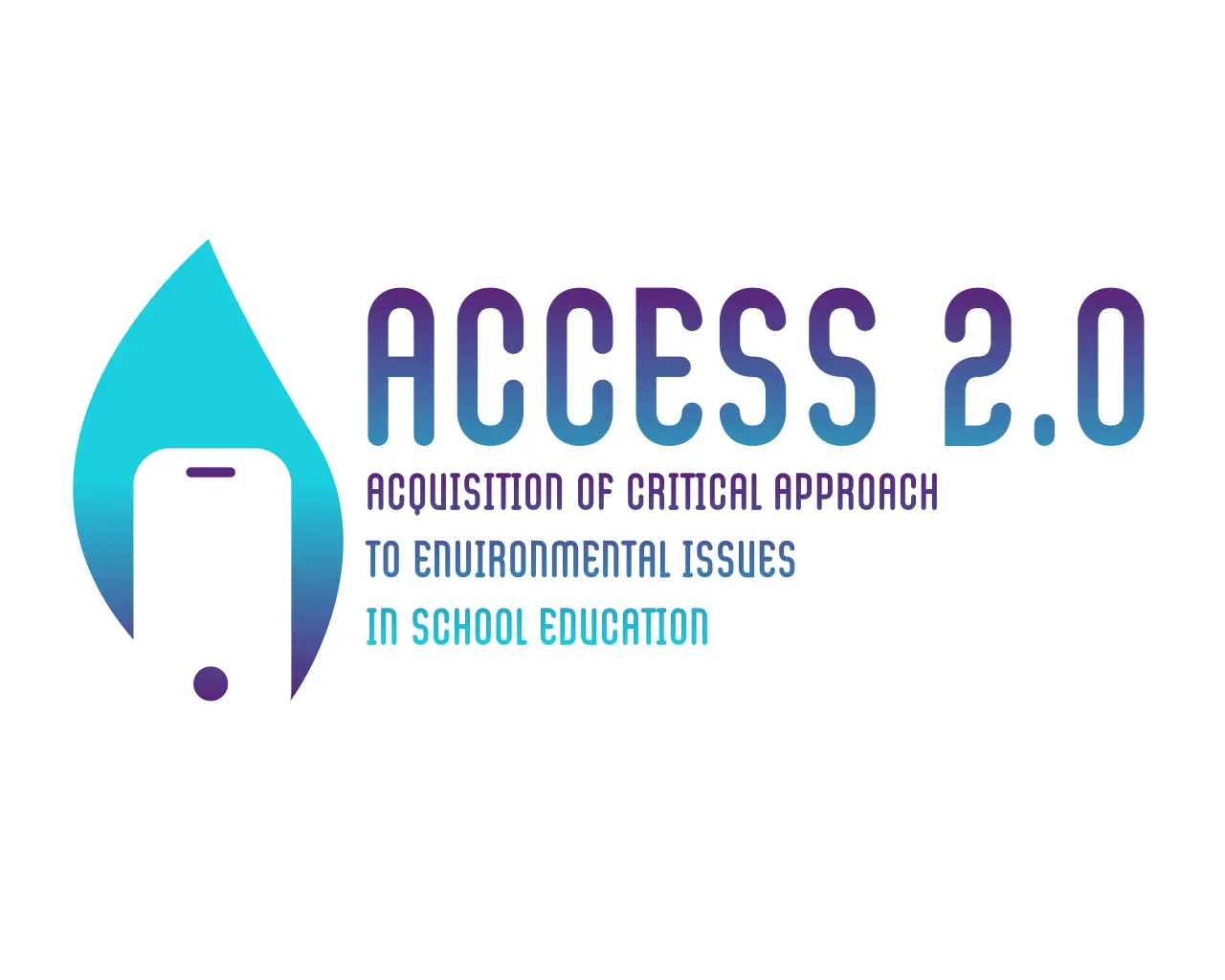
ACCESS II – Acquisition of Critical Approach to Environmental issues in School Education
Implementation period: 31.12.2023 - 30.12.2025
The main objective of the ACCESS II project is to equip secondary school teachers with innovative and effective tools to develop students' critical thinking skills about the environment. By providing engaging and comprehensive resources, the project aims to enable teachers to create a generation of informed and responsible citizens who are prepared to face the challenges of climate change.
Read More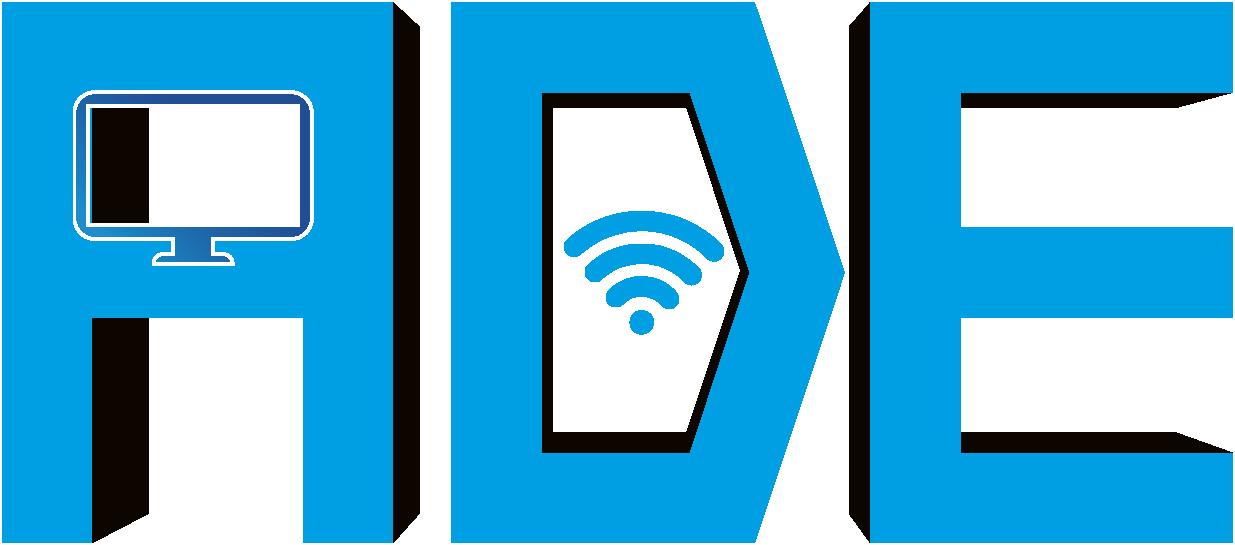
ADE - Adjust your school to the challenges of modern, Digital vocational Education
Implementation period: 01.03.2021 – 28.02.2023
The highly infectious COVID-19 disease, declared a pandemic by World Health Organization, has changed the educational panorama of the world in a very short time. In the face of global school closures, all educational systems have faced striking challenges in moving from traditional methods of learning to online/distant teaching-learning environments. Latest surveys suggest that VET learners might be at disadvantaged compared to learners from other educational tracks as more efforts are put into general school subjects, and less in typical vocational content. Hence, this project aims to contribute to maintaining the continuity of VET in the field of tourism by introducing digital VET opportunities. This will ensure that students get the most of their education and training and they are less affected by the crisis situation.
Read More
B-ECO - Start-up Eco Entrepreneurs project
Implementation period: 01.01.2022 - 01.01.2024
Entrepreneurs are an important pillar of the EU economy, and it is essential to provide them with the skills and knowledge they need to succeed. B-ECO would not only train them in important competencies and skills (based on EntreComp), and tools but also with the ability to become innovative and to stand out in the market instead of drowning on it. According to the EC: "By supporting new processes, technologies and services that make business greener, eco-innovation helps Europe optimise its growth potential while addressing our common challenges." Through the guide of experts in this area, our partners will contribute with their wide experience finding best practices, case studies, lessons learnt and future opportunities. During the project, we will deliver training and practical managerial education among training providers from partner’s countries through an innovative training focused on eco-entrepreneurship, innovation and management on eco-businesses, and a new and innovative e-learning platform oriented to create a unique space of shared knowledge and experiences between course users.
Read More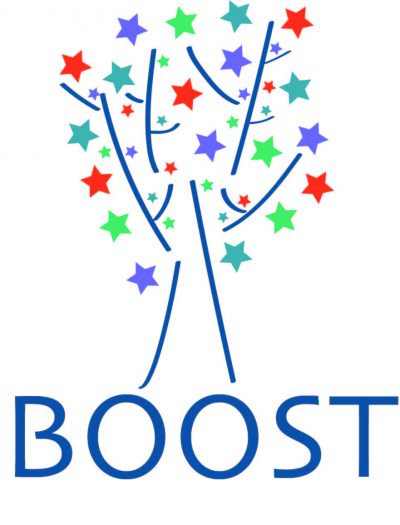
BOOST - Global competence for advancing social inclusion and career path of vulnerable women
Implementation period: 01.10.2020 - 30.09.2022
BOOST, is an Erasmus+ project, focusing on building the global competence of women from migrant and culturally diverse backgrounds, whilst working with adult educators to support their continuous professional development as coaches and mediators.
Read More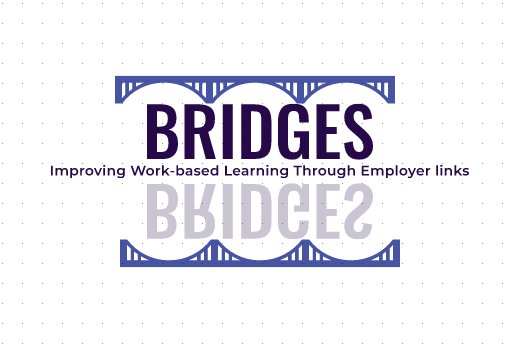
BRIDGES - Improving work-based learning through employers links
Implementation period: 01.01.2021 - 31.12.2022
BRIDGES will support and facilitate the up-skilling of VET professionals at all levels (teachers, trainers, tutors, course developers, business development team, managers) through a baseline and bespoke framework on how to effective engage employers, and high quality open and innovative blended CPD activities, digital resources and Community of practice. The starting point of this development process is the internal need analysis research made by the VET providers partners involved in BRIDGES, as well the Pan-European desk research and comparison of employment engagement practices and challenges, which will lead to the lead to the provision of the short-term outcomes and multilingual outputs (i.e. by the project’s completion) as well as longer term and sustainable outcomes (i.e. post project completion) for the countries involved as well as for VET providers across the EU.
Read More
C4C - Citizens for Climate
Implementation period:
The project (Citizens for Climate) aims at encouraging the civic and democratic participation of citizens, specifically youngsters, on local environmental issues through a wide range of tools and activities implemented in four European countries: Italy, France, Poland, and Hungary. The project’s main activities are COP simulations (and TOTs for teachers and educators), Citizien’s Science Research at the local level (with the RANAS Approach), a workshop with WANE (We Are Nature Expedition – journalistic report), implementation of a local and one transnational raising awareness campaign (Transnational Conference), drafts of policy recommendations to be presented to LA, Public Assembly at local level, final visit at the EU Parliament.
Read More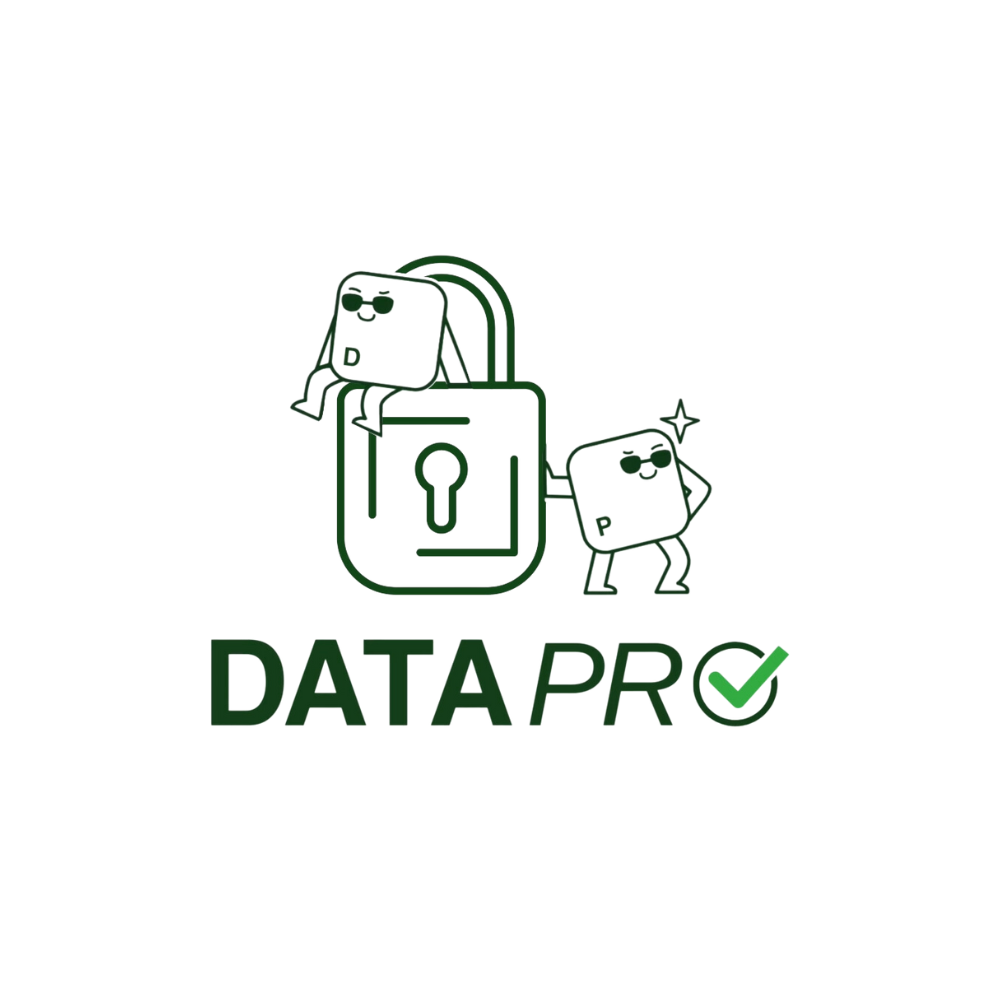
DataPro - How to protect your personal data and what’s more that of your friends?
Implementation period: 31.12.2023 - 30.08.2026
The DataPro project tackles the intricate challenges of data protection in the digital era, acknowledging its critical importance for future generations. In response to the evolving landscape of digitalization, the project aims to educate individuals on the complexities of data privacy regulations, emphasizing ethical considerations inherent in information technology. By fostering a deeper understanding of the ethical implications, DataPro equips individuals with the knowledge and skills to navigate the digital terrain responsibly.
Read More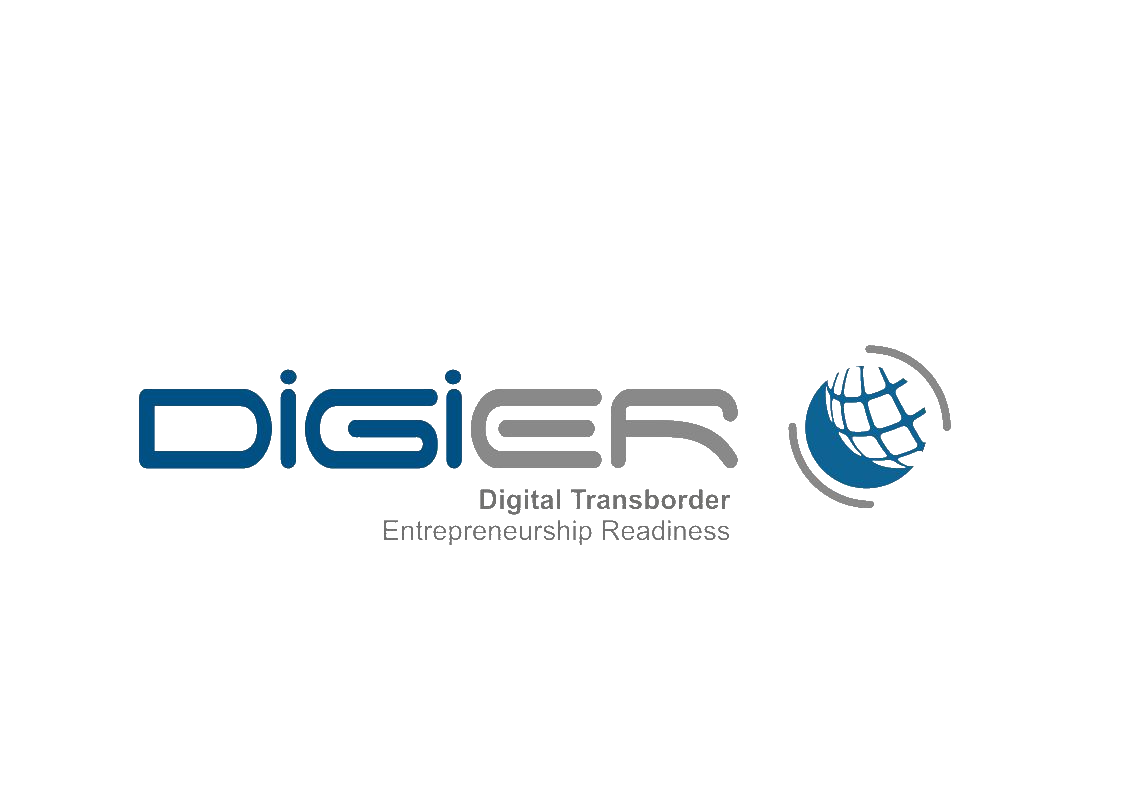
DigiER – Digital Transborders Entrepreneurship Readiness
Implementation period: 01.05.2021 - 30.04.2023
The digital revolution has transformed the way people play, access information, communicate and learn. To meet these challenges this project aims at helping VET providors to use technology in new and innovative ways to support SMEs in digital transborder entrepreneurship readiness. At the same time, we explore possibilities to find new pedagogical ways to tackle 21st century challenges, promote peer learning across education systems transnationally and catalyse the development of indispensable transversal competencies i.e. problem solving, collaboration and creativity.
Read More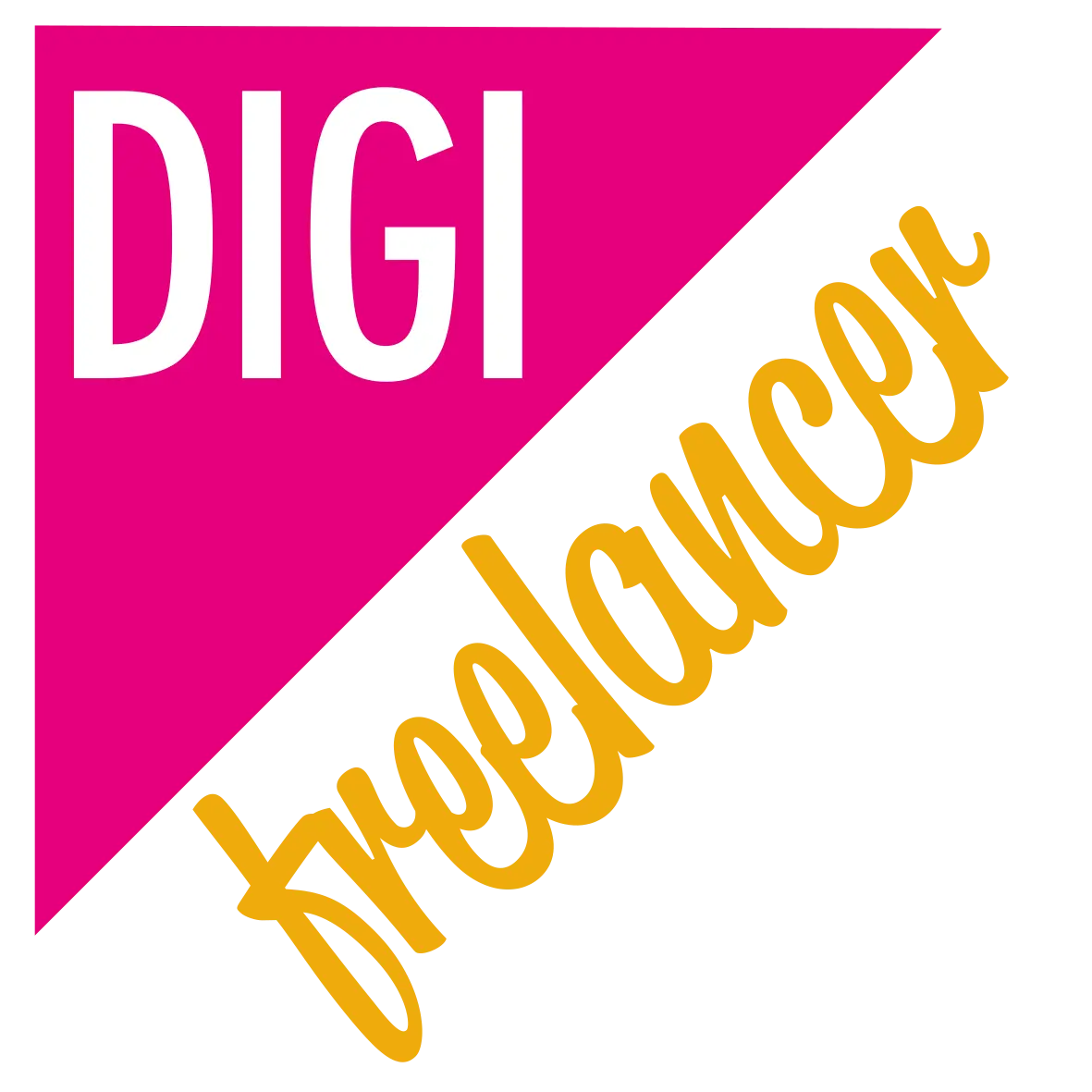
DigiFreeLancer - Digital and business skills for an incubator for freelance entrepreneurship
Implementation period: 01.11.2022 - 31.10.2024 (24 months duration)
DIGIfreelancer is a two-year EU project financed under the ERASMUS + program. The project aims to develop a model of virtual incubator, strengthening the freelancers in order to:
Read More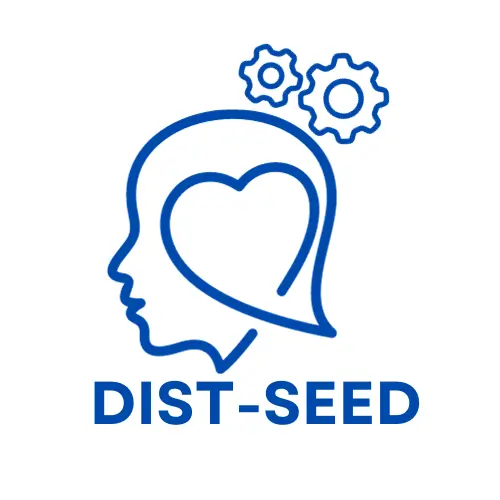
DIST-SEED - Digital Integration Storytelling Through Social-Emotional Education
Implementation period: 01.09.2023 – 31.08.2025
Emotional education, often referred to as emotional intelligence or emotional literacy, is the process of developing and nurturing the ability to recognise, understand, manage and use emotions effectively in various aspects of life. It includes learning to recognise and express emotions, empathise with others and regulate one's own emotional responses. Emotional education is essential for personal development, healthy relationships and overall wellbeing.
Read More
EASY - Employability for AutiStic Youth
Implementation period: 01.11.2023- 31.10.2025
The EASY project was designed as a response to the growing responsibility of European member states to support people with disabilities in the development of their employability. Specifically, the project is concerned with securing the employability of young autistic people. As a result, it seeks to offer capacity building for youth workers and provide them with high-quality innovative material to support autistic youth.
Read More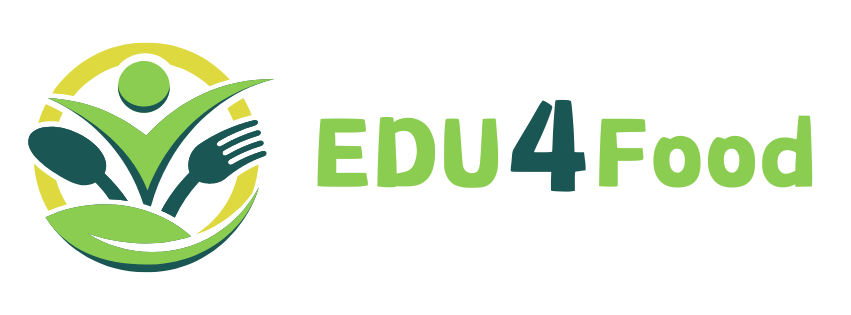
EDU4Food: Educating youth towards sustainable, healthy and equitable food systems
Implementation period: 01.03.2024 – 28.02.2026
The EDU4Food project focuses on developing competencies in sustainable food-relevant sectors and promoting deep knowledge of the main pillars of the Farm to Fork Strategy through educational modules as well as activities, methodologies, and lesson plans that align with sustainability goals. Through the deliverables produced, the project supports the testing of innovative practices that prepare young learners, youth workers, and the participating staff to embrace sustainable behaviours. This includes encouraging resource-saving practices, reducing energy consumption and waste, offsetting carbon footprints, and promoting sustainable choices in food production and consumption. The project also emphasizes behavioural changes at an individual level, targeting preferences, consumption habits, and lifestyles that align with the principles of the New European Bauhaus initiative. Additionally, the initiative aims to enhance the sustainability competencies of youth workers, reinforcing their capacity to promote environmental sustainability within their respective institutions.
Read More
ENTREADU: Promoting Entrepreneurs with Migrant Backgrounds on online gamified platforms
Implementation period: 01.12.2023 - 30.11.2025
EntreAdu, as a cornerstone initiative in alignment with the EU's strategic priorities, emphasizes bolstering investment in human capital and education. In addition to empowering educators to cultivate entrepreneurial mindsets among low-skilled migrant adults, EntreAdu also includes specialized training courses to enhance teachers' qualifications. Through this comprehensive approach, the project aims to catalyze economic empowerment and foster societal inclusion, adhering to the directives outlined by the European Council.
Read More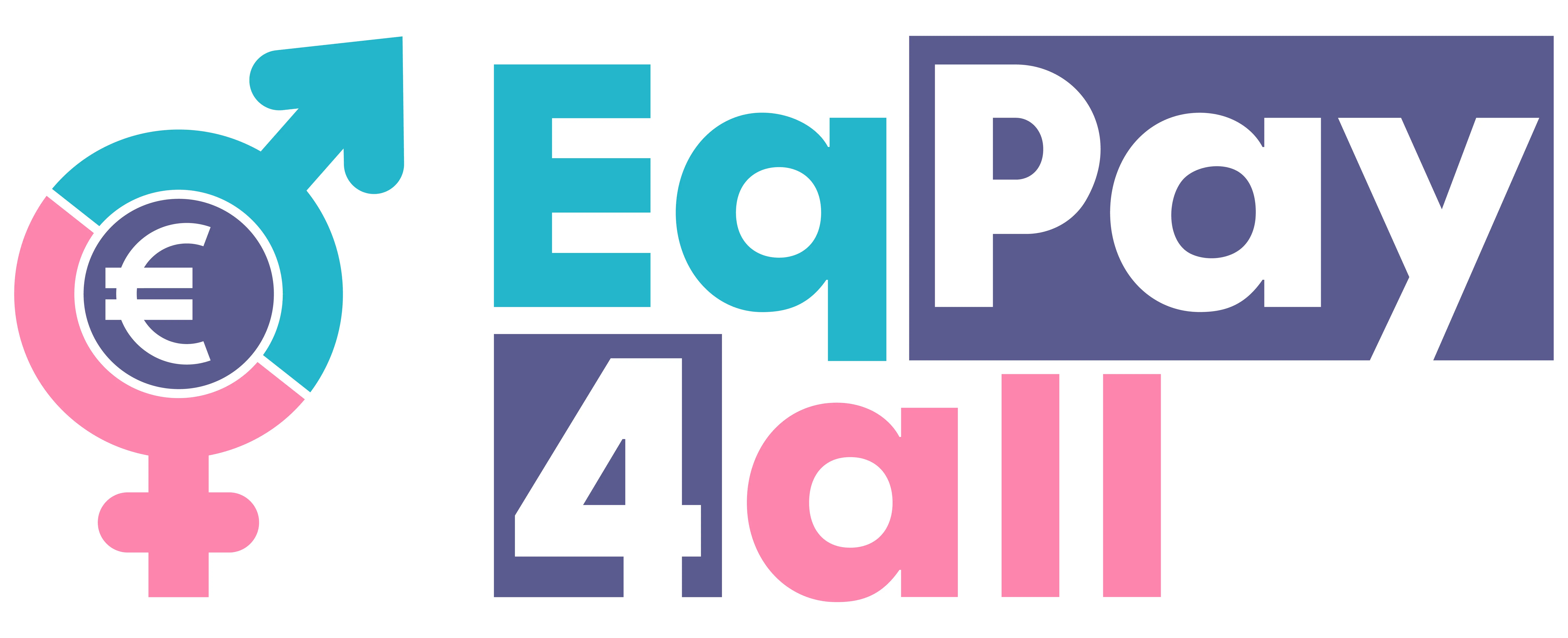
EqPay4all - Equal Pay For All
Implementation period: 01.12.2023 - 30.11.2025
EqPay4all addresses the need for transnational cooperation in order to tackle the local, national and European problem of the gender pay gap and stereotypes. EqPay4all aims to increase awareness for the gender pay gap and to foster skills to defeat stereotypes contributing to change of systemic structures in the labour market. Young and adult women are jointly empowered to realise their potential and to give them a voice to stand up for their rights in the professional field.
Read More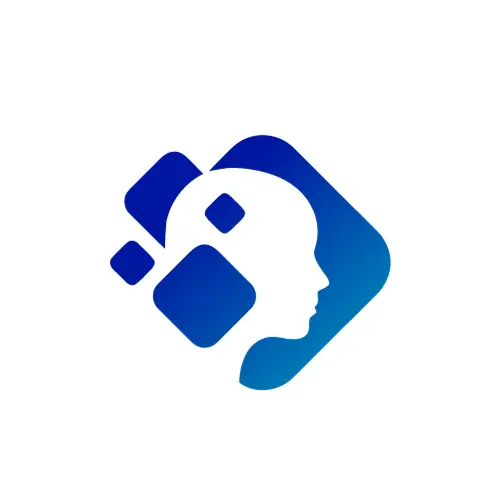
Erasmediah - Educational Reinforcement Against the Social MEDIA Hyperconnectivity
Implementation period: 03.12.2023 - 02.12.2025
The primary, direct target group of the project will be youth workers, educators, facilitators from the 7 partner organizations. Professionals need to improve their competencies and knowledge about guiding, facilitating, and teaching young people how to prevent risks and dangers related to social media and other online networking platforms’ hyperconnectivity (Instagram, TikTok, Snapchat, Omegle, Kik, Tinder, Telegram, Holla, Onlyfans, Chatspin, online video games, etc.).
Read More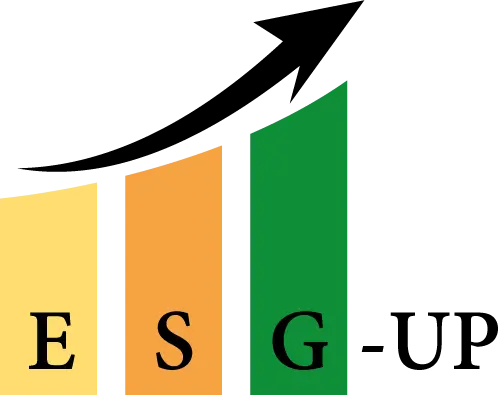
ESG-UP – Strategic partnership to up-skill European SMEs in the development of Environmental, Social and Governance strategies
Implementation period: 28.02.2022 – 27.02.2024
The main objective of ESG-UP is to address the training and knowledge gaps of SMEs in sustainability practices to become more competitive and resilient. The project focuses on sustainable business operations as a result of integrating ESG (Environmental, Social and Governance) objectives and measurements.
Read More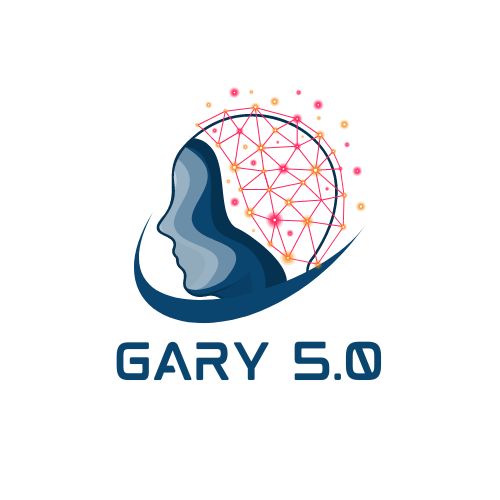
GARY 5.0 - Greater Aggregation of knowledge and Reinforcements of awareness in the field Industry 5.0 in vocational education
Implementation period: 01.12.2023 – 30.11.2025
The GARY 5.0 project is an innovative project aimed at developing entrepreneurial and innovation skills. Through diverse educational activities, mentoring, and practical group projects, we want to equip participants with the necessary knowledge and tools to create and implement their business ideas. Activities carried out as part of the project include various forms of learning, from interactive workshops and training to mentoring sessions led by experienced businesses and the public to business idea competitions that encourage creative thinking and innovation.
Read More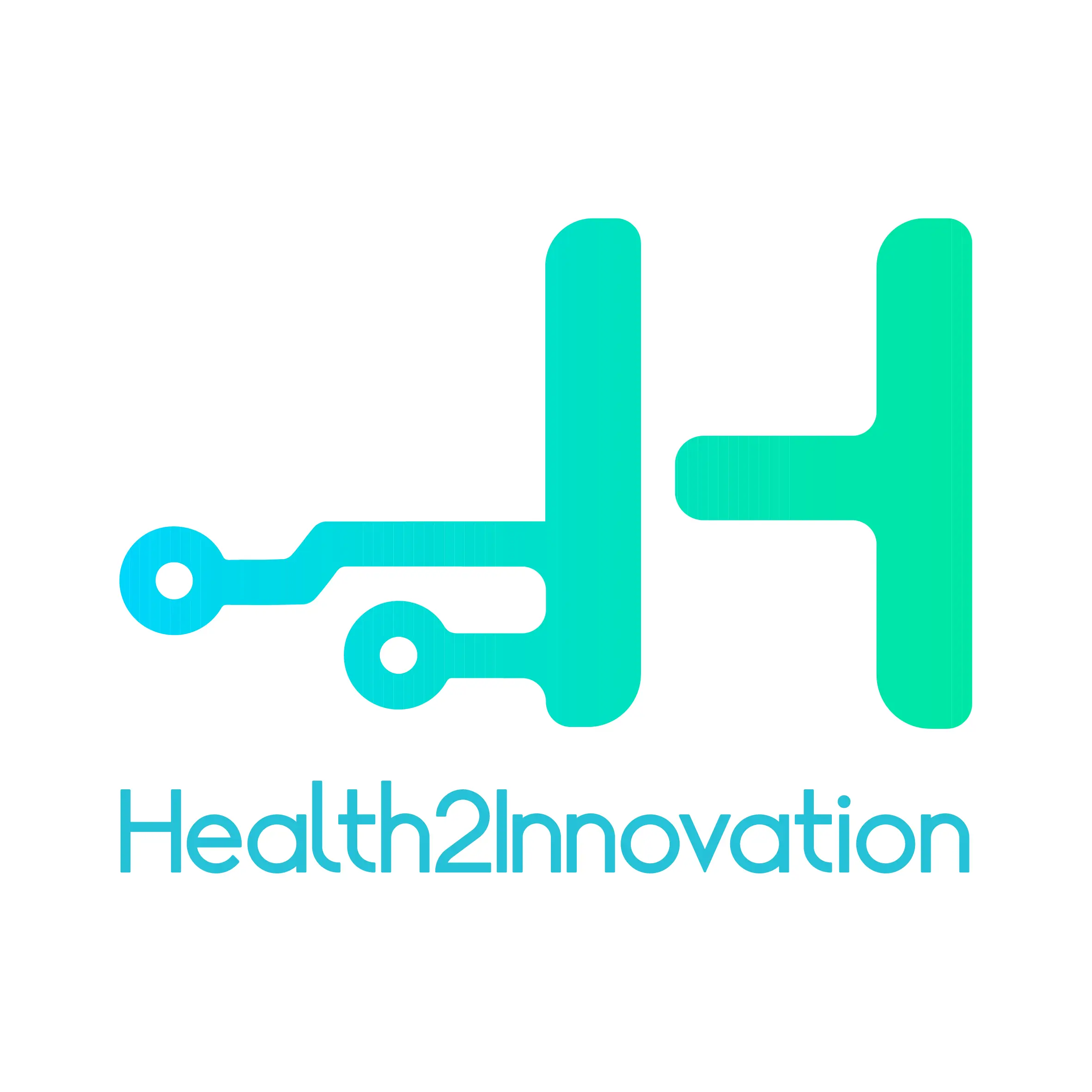
Health2Innovation – A University-Business Alliance to accelerate the digital and green transition of healthcare and innovation in the health market
Implementation period: 01.09.2023 - 31.08.2026
The COVID-19 pandemic highlighted the urgent need to accelerate the deployment and market uptake of digital health technologies. Many of these innovations were developed to combat the spread of COVID-19 and now present an opportunity to revolutionize the health sector in Europe. This sector must adapt to the latest technological advancements to become more digital and sustainable. Equipping university students and graduates with entrepreneurial, digital, and green skills is crucial for driving this transformation.
Read More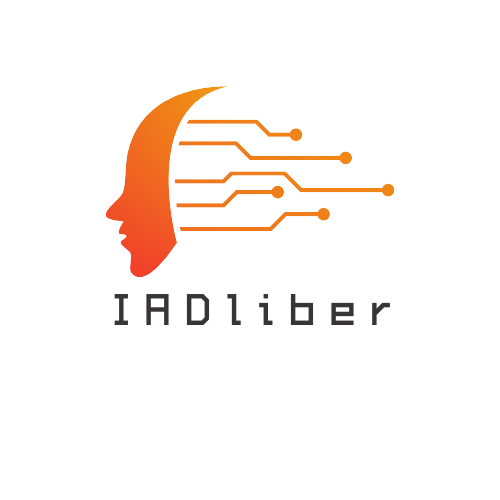
IADliber - Raising competences of adult educators as a means for adults liberation from internet addiction disorder
Implementation period: 01.12.2022 – 30.11.2024
IADliber Project aims to support adult educators especially involved with low educated adults by providing them with the necessary educational materials that can help them in their work & be an excellent tool for presenting influence to the target group through mindfulness and other methods of focus, self-awareness and reliable assessment of the situation.
Read More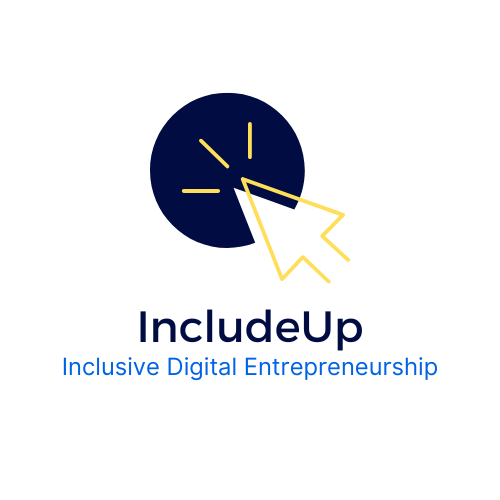
Includeup: Inclusive Digital Entrepreneurship Educators for Migrants
Implementation period: 01.02.2023 - 31.01.2025
INCLUDEUP project has been set up for adult education including partners from a cross sectoral way on the international level to find solutions for the need to support the migrants.
Read More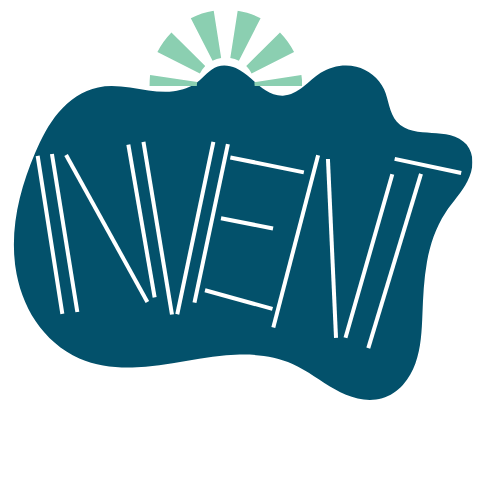
INVENT - INcubator for innoVative non-formal EducatioN Transnationally
Implementation period: 01.03.2023 - 01.03.2025
The "INcubator for innoVative non-formal EducatioN Transnationally" project aims to address the key megatrends that are transforming the labour market and their implications for job quantity, job quality, and inclusiveness, gender equality, all of them key priorities of the EU today.
Read More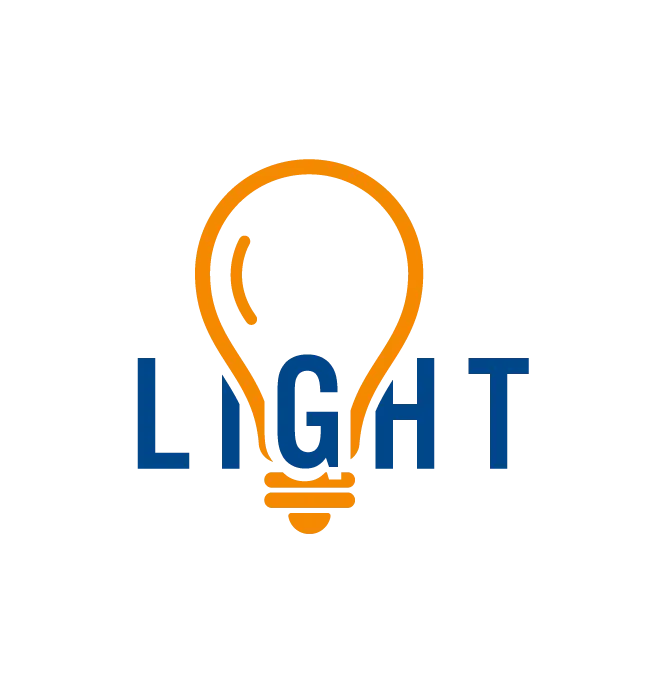
LIGHT - Youth work sheds LIGHT to unconscious bias and invisible Racism
Implementation period: 01.11.2023 - 31.10.2025
LIGHT’s goal is to bring improvements in youth work’s responses to unconscious biases and invisible racism, contributing to the fight against them and advancing EU society’s inclusiveness. The project aims to promote bias literacy, develop innovative youth work tools to shed light to the phenomena, increase youth workers’ ability to effectively work on the topic, and raise youngsters’ ability to recognize and question their bias.
Read More
MAYFIN: Supporting a multi-action financial literacy increase among young disadvantaged students
Implementation period: 01.10.2023 – 30.09.2025
The main objective of MAYFIN is to develop a set of solutions in order to close the gap on financial literacy skills among young people (between the ages 15 and 18) with different levels of socioeconomic conditions. While contributing to the reinforcement of the European identity the project combines the knowledge of financial literacy along with other identified soft skills.
Read More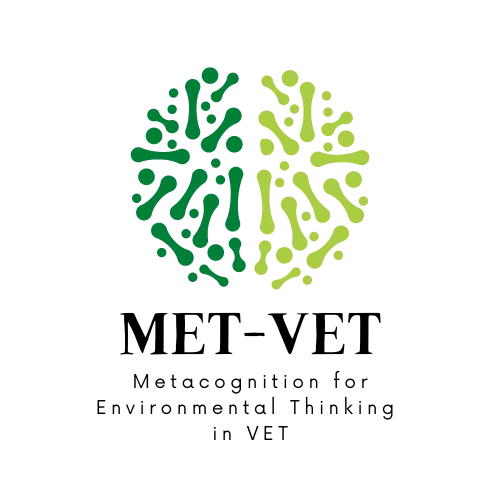
MET-VET - Metacognition for Environmental Thinking in VET
Implementation period: 01.05.2022 - 30.04.2024
MET-VET will support the greening process and wider European environmental and sustainability targets and objectives by developing an innovative set of tools which support environmental awareness through a broader metacognitive knowledge and skill among VET learners, and their educators to support the role of VET centres as hugely influential educators as Europe embarks on a digital and environmental shift. Set within this context, this project will facilitate the adoption of environmental metacognition strategies, improve the environmental metacognitive abilities and positive mindset towards lifelong learning, upskill VET practitioners with knowledge of environmental metacognitive theories to provide support and the skills to train learners to adopt metacognition and raise the profile of environmental metacognitive skills as a core part of VET provision at EU and national level.
Read More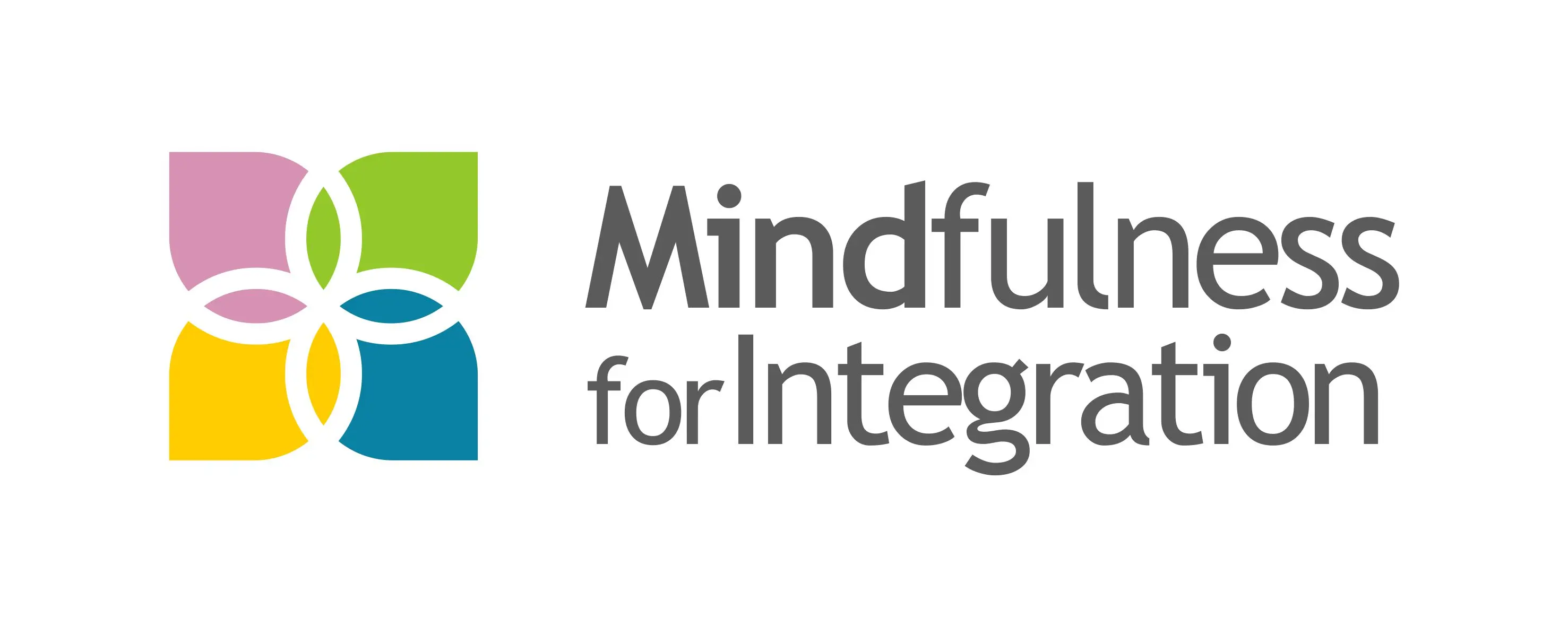
Mindfulness for Integration
Implementation period: 01.09.2023 - 31.08.2025
The main objective of the Mindfulness for Integration project is to provide the Cultural and Creative Sector professionals as well as the experts of social support to care for the wellbeing of migrants and refugees through arts and culture.
Read More
Re – breading – Re-branding bread to improve quality of production and reduce food waste
Implementation period: 01.02.2022 - 01.02.2024
The Re-breading project aims to implement the 'Farm to Fork' strategy outlined in the European Green Deal. The strategy is a fair, friendly and healthy food system to reduce food and prevent waste, support and promote sustainable food production and consumption as well as sustainable food processing and distribution. Re-Breading envisages the creation of sustainable, but also new, healthier and more nutritious options in the production and consumption of bread, emphasising the importance of understanding ingredients, careful selection of raw materials and methods. By rebranding the identity and increasing the nutritional quality of bread products, the project will also contribute to 'reversing the rise in overweight and obesity rates across the EU by 2030', which is highlighted as 'critical' in the Farm to strategy, which also states that 'if European diets are aligned with dietary recommendations, this could lead to a significant reduction in the environmental footprint of food systems. The project also aims to contribute to the reduction of food waste at both retail and consumer level by training new and future baking professionals who can have a direct impact on consumers through their productions, thereby reducing 'the estimated amount of household food waste, which is strongest among the three sectors of households, food services and retail.
Read More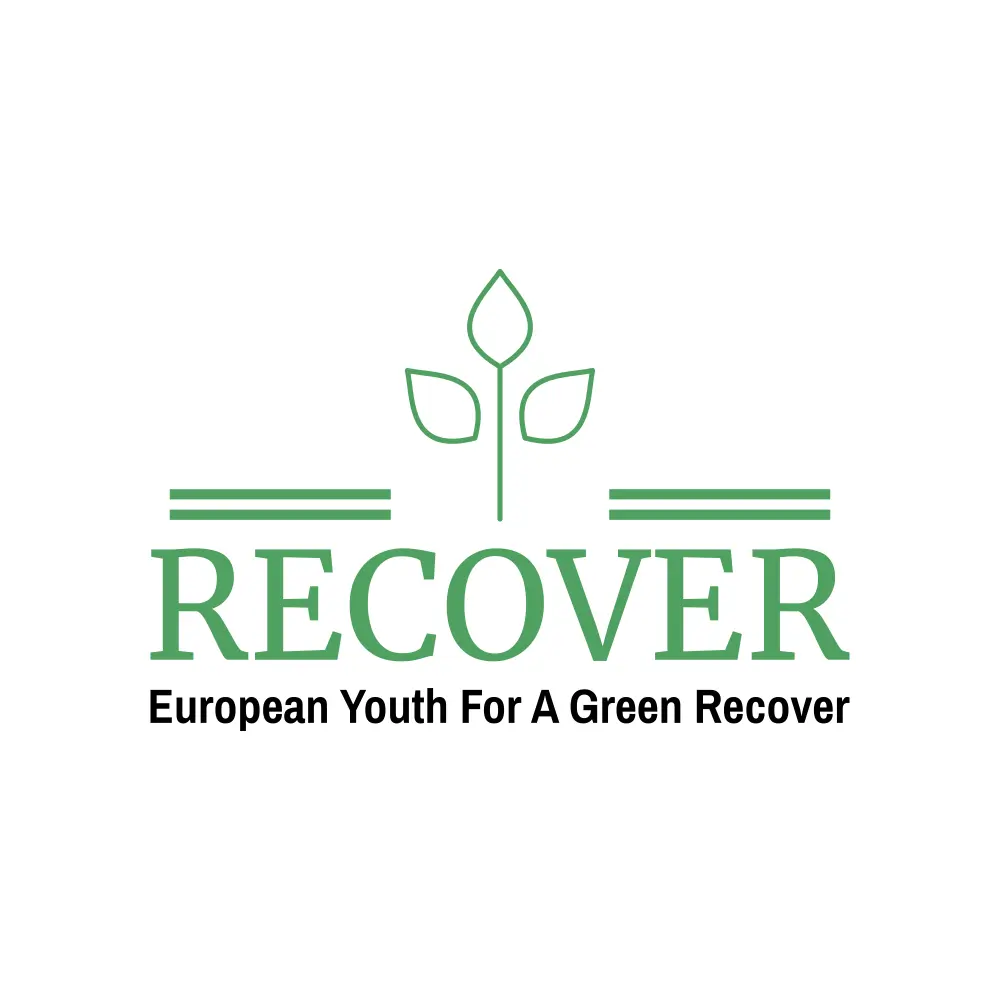
RECOVER - European Youth for a Green Recover
Implementation period: 01/12/2022 – 30/11/2024
The RECOVER: European Youth for a Green Recover is designed to address youth unemployment by promoting green entrepreneurship in line with the EU economy’s green transition efforts.
Read More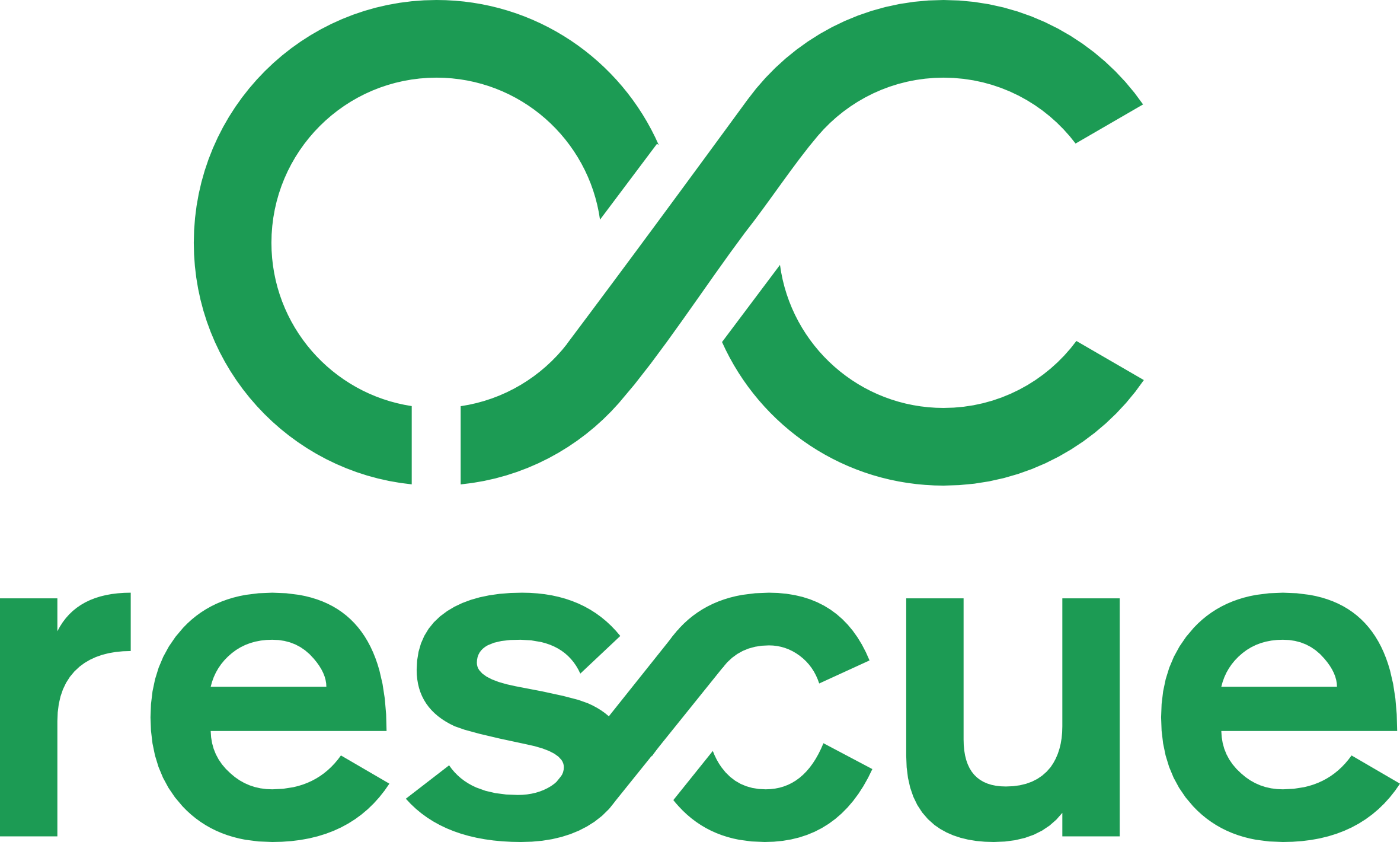
RESCUE - Raise your voice against Plastic
Implementation period: 01.12.2022 - 30.11.2024 (24 months)
The RESCUE project aims to validate youth work, informal and non-formal learning, and support quality development and innovation in youth work. The RESCUE project empowers youth workers with tools, methods and activities to strengthen young people’s sense of green initiatives (e.g., campaigns) and volunteering acting as agents of change for environmental and sustainable development.
Read More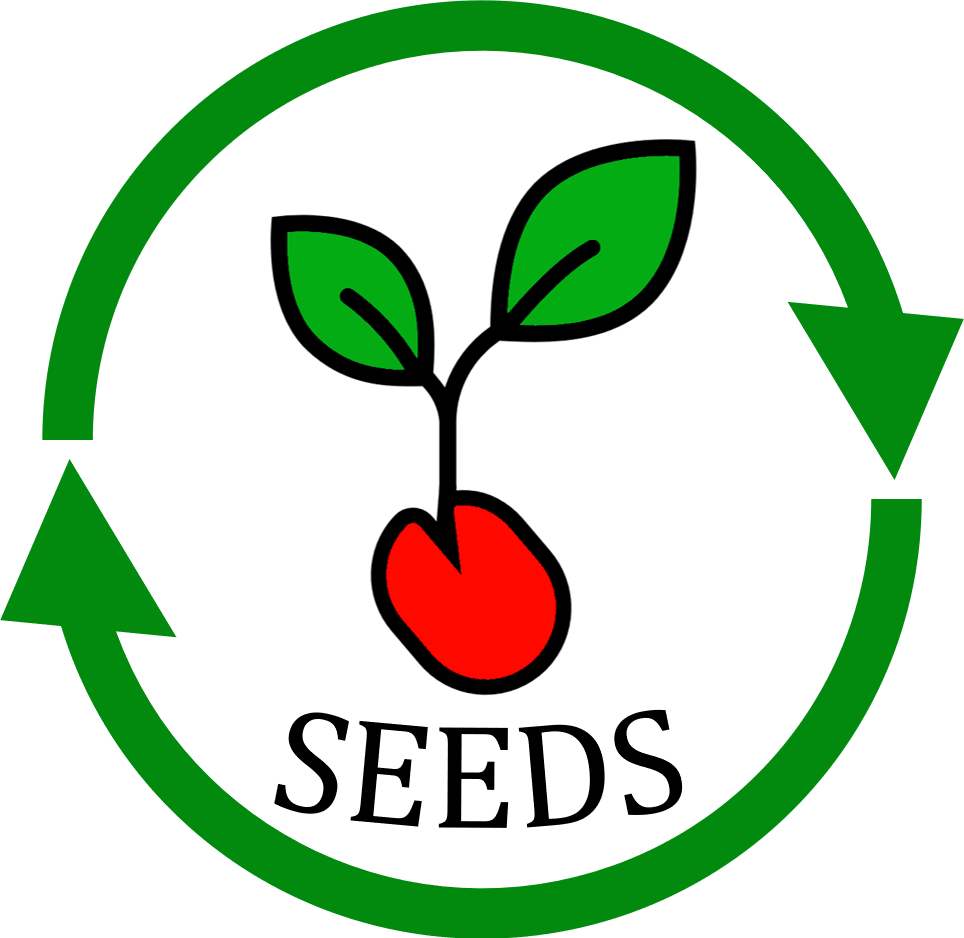
SEEDS: Substance of circular Economy concept as Efficacious Determinant for the development of Successful entrepreneurship
Implementation period: 2020-12-01 - 2022-11-30
The circular economy is an enormous challenge for developing and emerging countries, in terms of capabilities to ensure efficient treatment of waste, the responsibility over social behaviours. Moreover, what can be observed across the EU, is the struggle of municipals over waste management, which is no longer the management of municipal waste, but industrial waste.
Read More
T- Games - Games for Tolerance
Implementation period: 01/11/2020 - 30/06/2022
The main goal of the project is to equip teachers of kindergartens and primary schools with knowledge and skills in the use of game methodology. The partnership within the T-Games project plans to create new educational anti-bullying games and a database with game and resource analysis for three age groups (4-5, 6-7, 8-10 years old). Bullying is one of the few words that causes anxiety to students, parents, teachers, and school principals. If you want to reduce and mitigate the problem of bullying, you need to start prevention from an early age and help reduce bullying.
Read More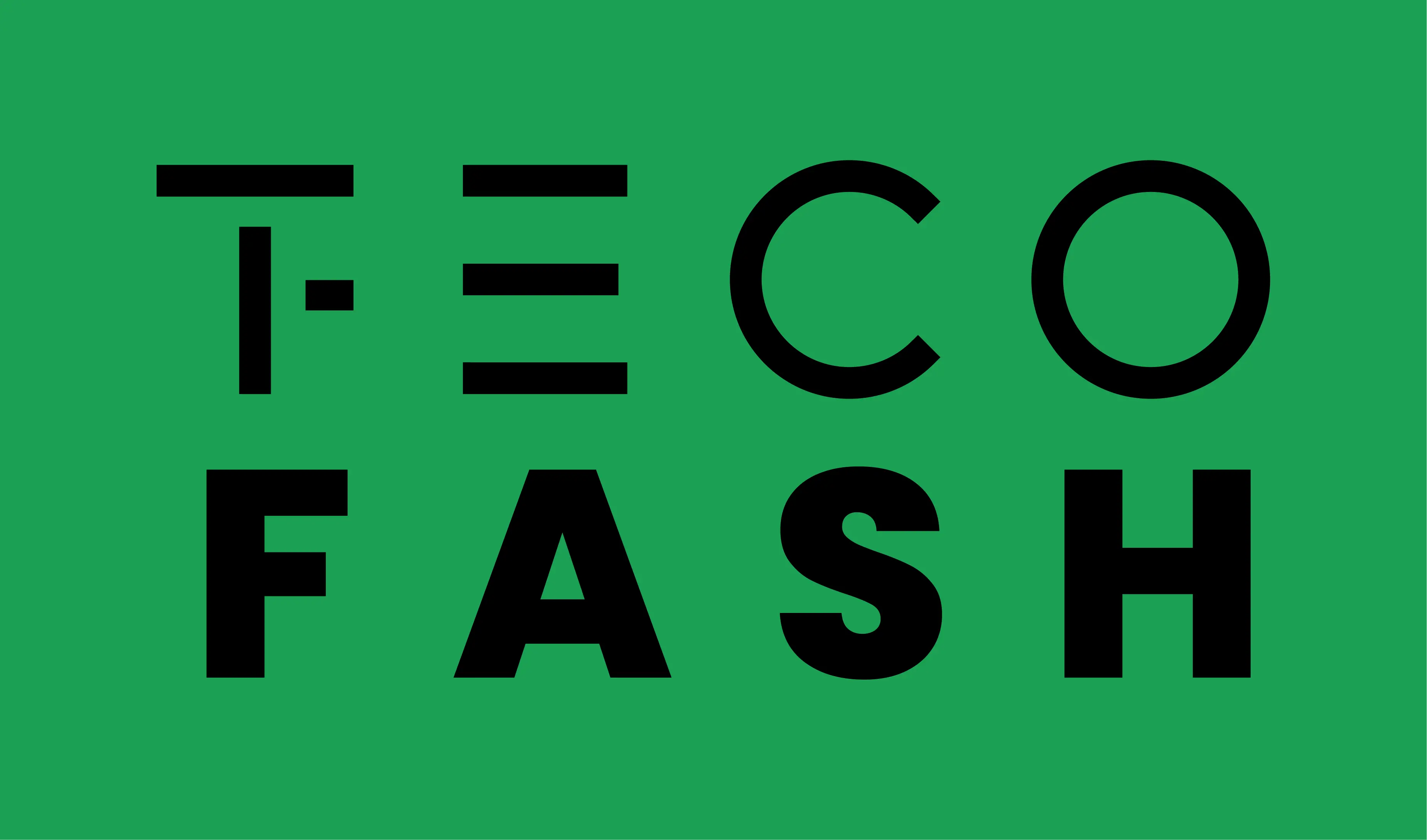
TECOFASH – Strategic Partnership Promoting Education for the Transition of the Fashion Sector Towards Digital and Sustainable Business Models
Implementation period: 01.01.2022 - 01.01.2024
The main objective of TECOFASH is to contribute to a competitive and sustainable European fashion industry. The project focuses on increasing the capacity of professionals from SMEs and start-ups to turn their business toward circular business models, as well as environmental and sustainable innovation as a result of transnational and intergenerational cooperation and training. TECOFASH training considers the triple bottom line of Elkington theory: the economic, the social and the environmental, key for sustainability.
Read More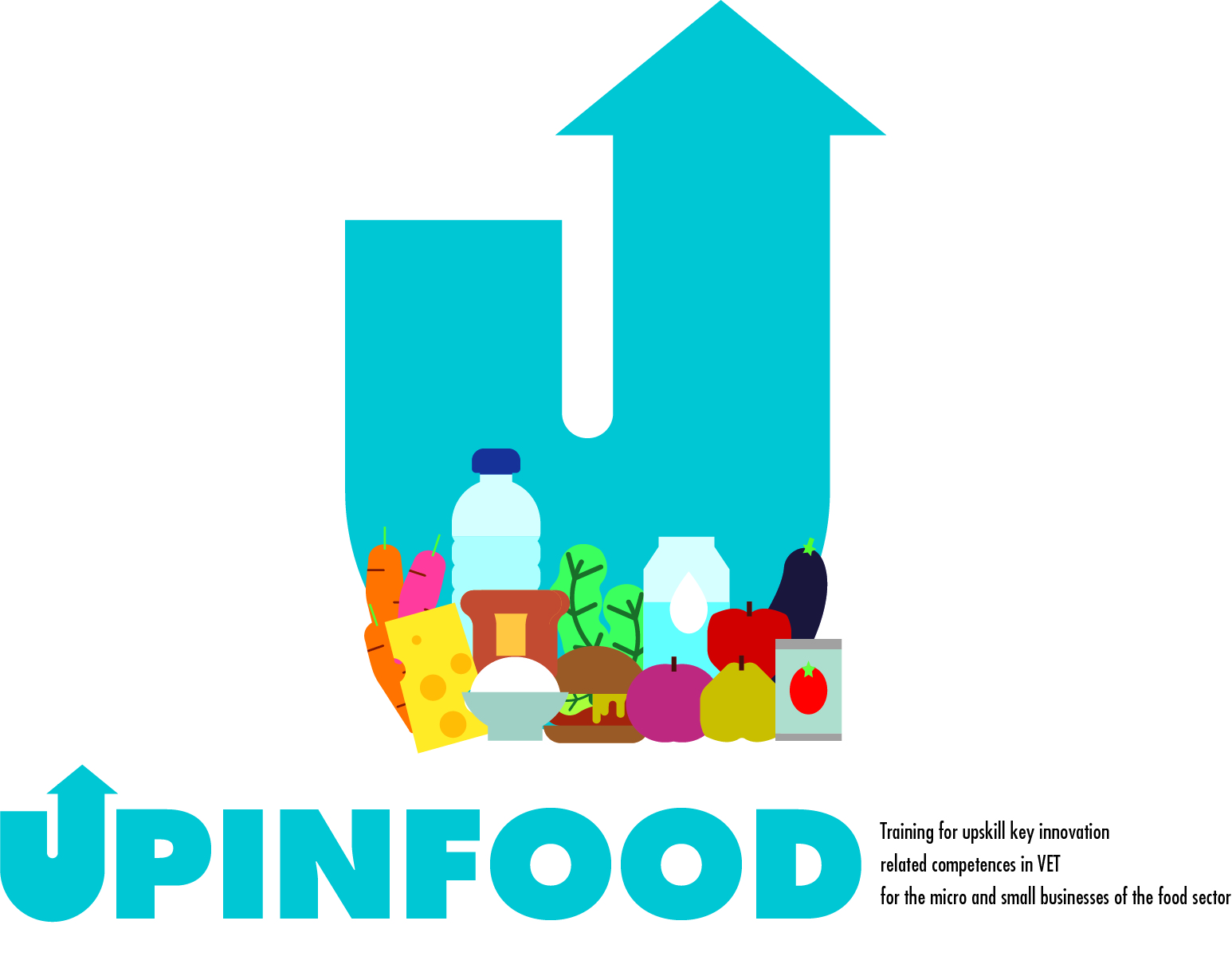
UPINFOOD - Training for upskill key innovation related competences in VET for the micro and small businesses of the food sector
Implementation period: 01.12.2022 - 30.11.2024
UPINFOOD is a project aimed at accompanying the necessary transformation of the food supply chain toward more innovative and sustainable models thanks to quality VET education. The main objective of UPINFOOD project is to promote the transformation of the sector towards a new modernised vision of food that supplies nowadays demand in quality and healthy products while being sustainable, taking the most of new technologies and being a motor of innovation, thanks to education addressed to the key actors of this industry.
Read More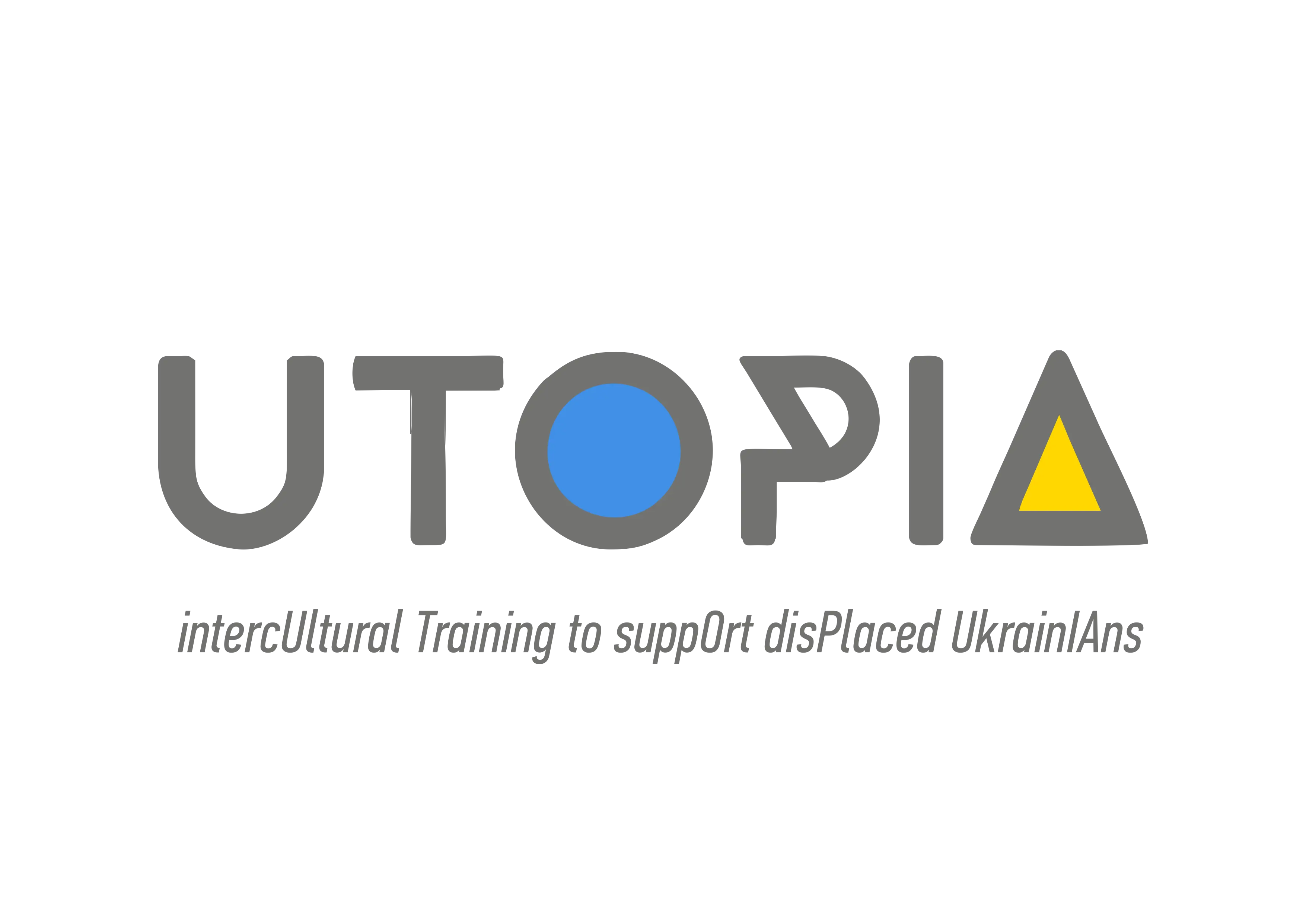
UTOPIA: intercUltural Training to suppOrt disPlaced UkrainIAns
Implementation period: 01.01.2024 - 30.06.2025
The UTOPIA project fosters a welcoming mindset among young locals towards Ukrainian refugees through intercultural dialogue facilitated by youth workers. Its objectives include enhancing support for young refugees, improving youth workers' skills, increasing refugee youth integration, and promoting the project's visibility and impact.
Read More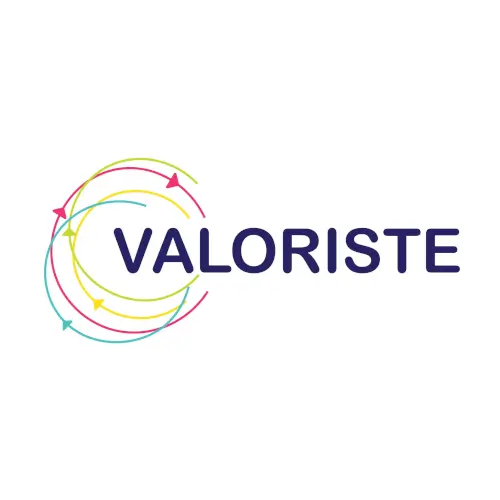
Valoriste
Implementation period: 01.11.2022 - 31.10.2024
The project aims to bring this innovative concept of VALORISTE agent to other European countries where it is not implemented. Another innovative aspect of the VALORISTE project is also the voluntary and community approaches. On one hand, it aims to value individuals from socially vulnerable groups who will perform these tasks voluntarily, hopefully giving shape to their own entrepreneurial projects in this area. On the other hand, these agents can contribute to their communities and be recognised for that, contributing to their better social integration.
Read More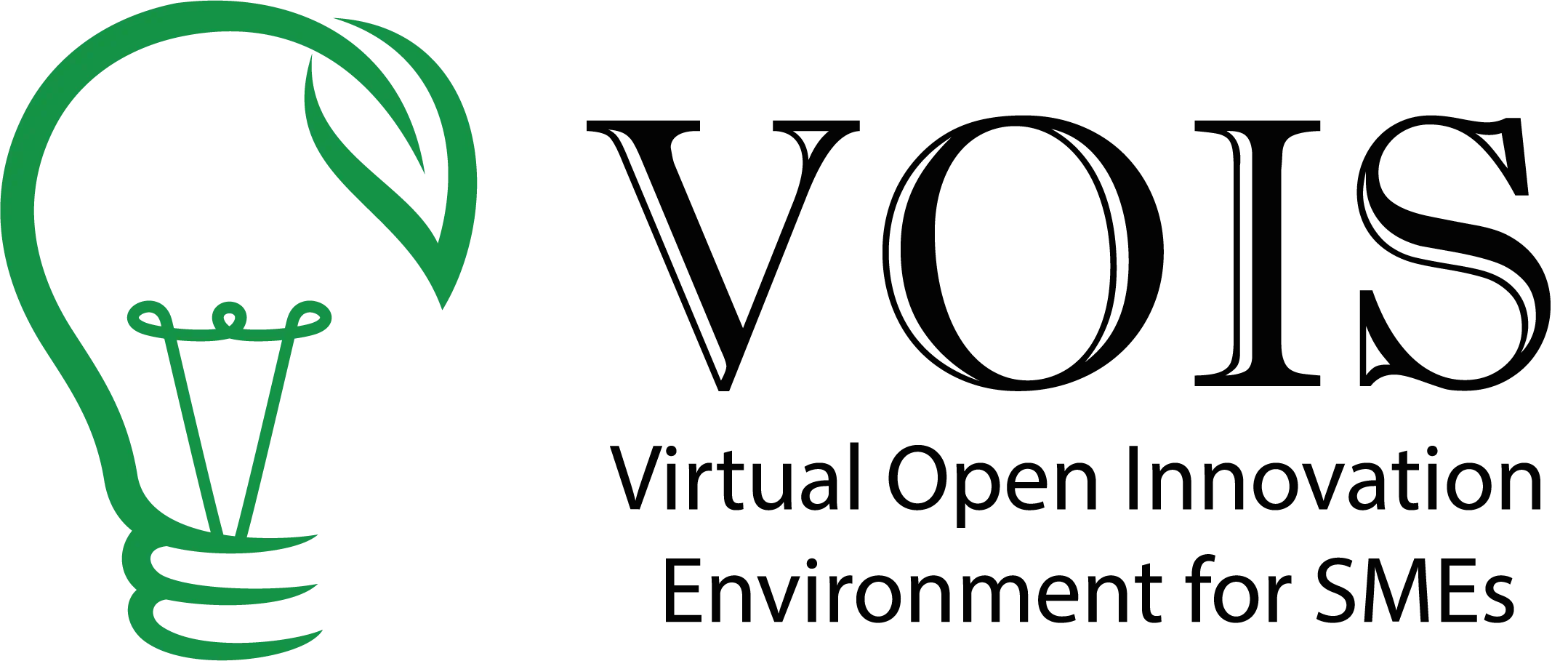
VOIS – Virtual Open Innovation Environment for SMEs
Implementation period: 01.01.2022 – 30.06.2024
Factors such as changing market conditions, digitalisation and the emergence of the Internet of Things, require from SMEs the reinvention of their value proposition to secure their survival which is often threatened by a lack of capability to innovate and compete on the global market. Currently, open innovation (OI) competencies are rare in SMEs and, if present, are usually limited to high-tech sectors. The VOIS partnership has developed a comprehensive Virtual Open Innovation Environment allowing SMEs to effectively improve their OI competencies and their ability to implement open innovation in their firms. To this end, the Virtual OI Environment proposes 3 specific areas with opportunities for SMEs to enhance their competencies: Area 1 – Organisational Area, Area 2 – Individual Development Area and Area 3 – Open Innovation Repository. The main project result consists in an Integrated Virtual Open Innovation Environment with a methodology and tools for capacitating SME managers in Agro-Food and Bioeconomy sectors to engage and benefit from open innovation by following a comprehensive modular development programme (more details in section: Results).
Read More